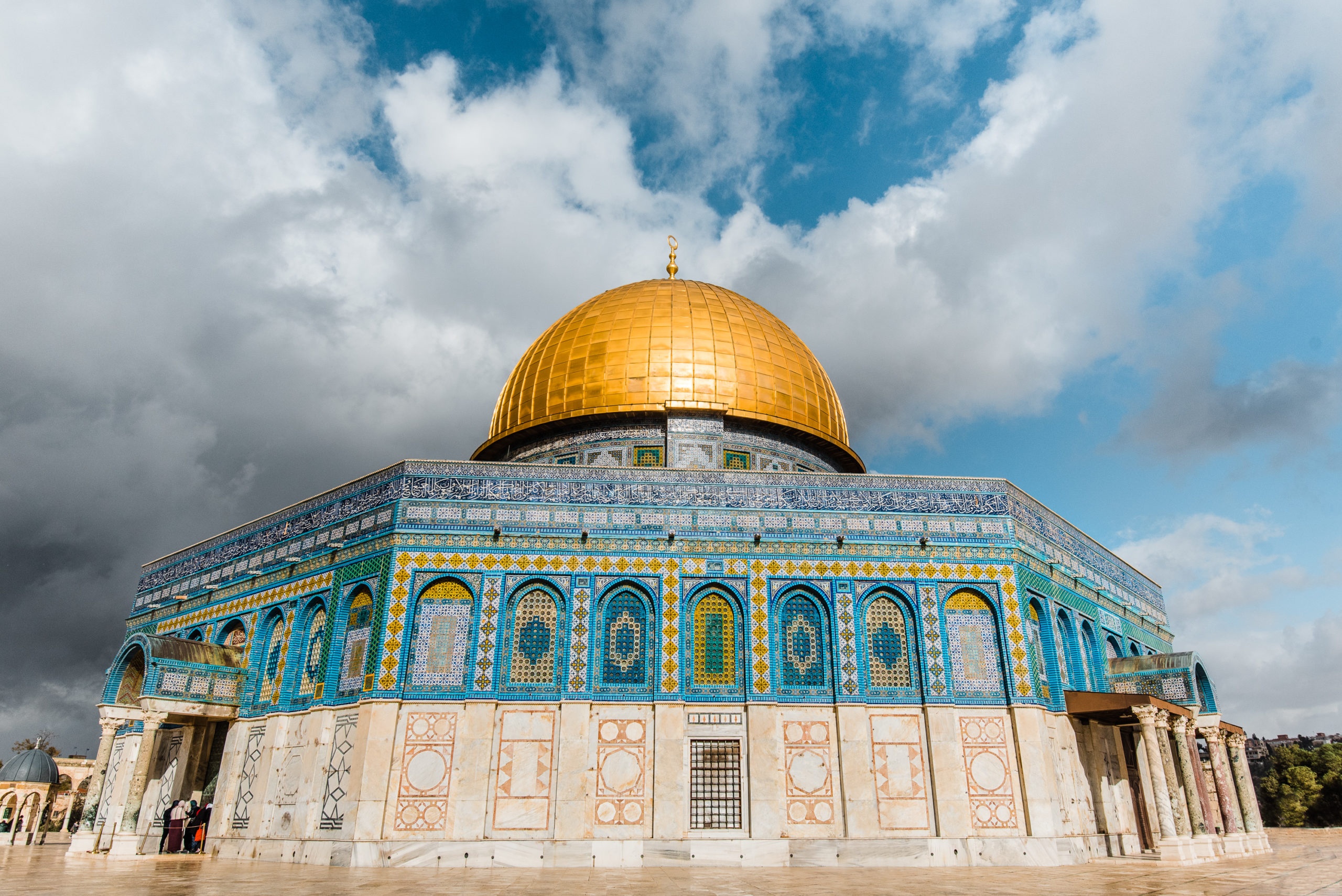
Travel Guide to Israel: 8 Days in Israel
February 5, 2020
Every year, my family takes a trip for Christmas. This year, we went to Rome, Israel and Jordan and I was in charge of planning the whole trip. We spent 8 days touring Israel on our own with almost no guided tours.
This blog will focus on Israel: where we went, what to do, where we stayed, and how to celebrate Christmas in Israel.
Here is what we did and how I planned the trip! First, a few things you should know:
Itinerary:
Day 1: Fly to Tel Aviv and drive to Jerusalem
Day 2: Tour of Old City, tour of Bethlehem for Christmas Eve
Day 3: Sleep in. Mount of Zion and Mount of Olives
Day 4: Temple Mount, City of David
Day 5: Day Trip to Masada, Swim in the Dead Sea
Day 6: Ein Gedi National Park, Qumran National Park, Drive to Nazareth
Day 7: Galilee Region: Capernaum, Church of Multiplication, Mount Arbel
Day 8: Bet She’arim National Park, Drive to Tel Aviv
*After Day 8 we took a 3 day trip to Jordan, which is a separate blog post*
Getting Around
We rented a car for the duration of our trip because we wanted the freedom to drive around the country and take some day trips from Jerusalem. Driving was easy, the signs were in English, and the roads were well-marked and in good shape. If you are just going to be in Jerusalem, you don’t need a car. You can walk to most sites and you really can’t drive a car through the Old City. If you fly into the airport in Tel Aviv, you can take a shuttle or taxi to Jerusalem.
Where to Stay
We mostly stayed in Airbnbs. Here is where we stayed in each location:
Jerusalem Airbnb
In Jerusalem, we stayed in an Airbnb outside of Old City on Jaffa Street. The location was great because we were right off the main street and could walk to Old City. The light rail goes through Jaffa Street as well.
Galilee Airbnb
This is a house in Kiryat-Tiv’on, which is west of Nazareth.
Abraham Hostel in Tel Aviv:
I cannot recommend this hostel enough. Stay here!
If you are booking an Airbnb, watch for extra costs. Most of the places we stayed charged an extra fee per night per person.
National Parks
There are so many amazing national parks in Israel! I recommend getting a national park pass. You can choose between a few different pass options that give you admission to 3, 6, or all Israel National Parks. The City of David, Masada, and En Gedi are all national parks, so if you are going to see those 3, it’s worth it to get a pass. We purchased the 6 park pass, and used up all six parks. We purchased our pass from the Abraham Hostel in Jerusalem. You can also purchase a park pass at the Tel Aviv airport, but their options were limited when we tried.
Note: From our experience, many of the national parks will close entrance about an hour before their listed closing time. If you are visiting a national park in Israel, plan to get there well before closing time.
SIM cards
Get yourself a SIM card while in Israel! Before this trip I had been using portable wifi hotspots while traveling. I couldn’t find a good wifi hotspot option for Israel, so I went with a SIM card and it was great. We used www.simtoisrael.com and had the SIM cards delivered to our USA address before we even left.
Shabbat
If you are going to Israel, you need to know a little about Shabbat. Shabbat is the day of Jewish rest, which begins at sundown on Friday and ends at sundown on Saturday. Many Jewish people do not work during this time, which means that many restaurants, shops, and businesses are closed during Shabbat. Plan your activities accordingly! This website has lots of helpful information about Shabbat.
Now onto the itinerary!
Day 1: Fly to Tel Aviv and drive to Jerusalem
The Ben Gurion Airport in Tel Aviv is the main international airport in Israel. We rented a car from a rental car company at the airport and drove to Jerusalem (about an hour drive). On the way, we stopped for dinner in a town called Modi’in, which is a very non-touristy town. We ate at a cool restaurant called פדריק. The staff were excited to speak with Americans, and the food was great! Right across the street is a bulk Israeli grocery store. We had lots of fun walking around and stocking up on tea, dried fruit, and candy. Then we continued on to Jerusalem for the night.
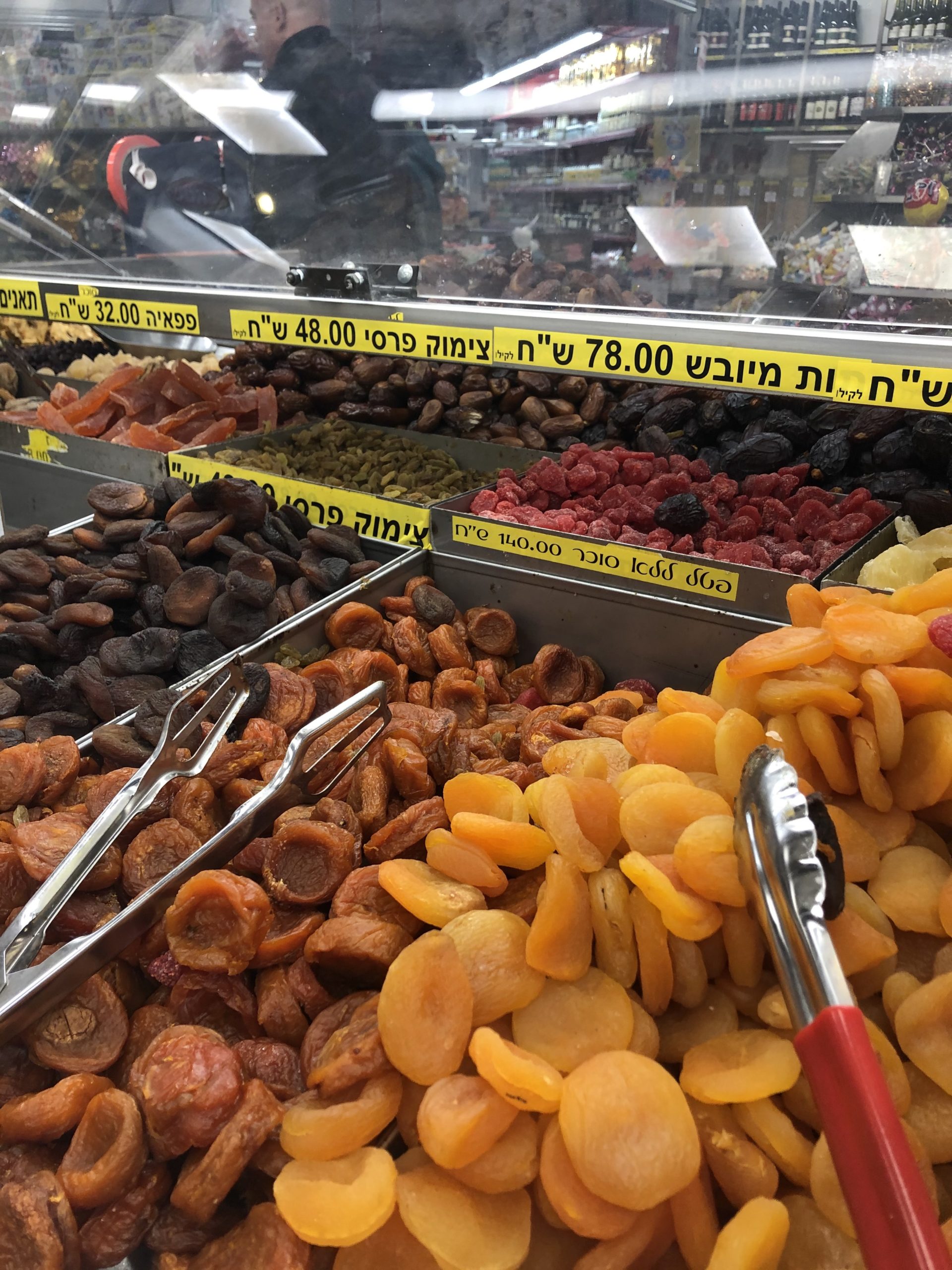
A bulk food market in Modi’in, Israel.
Day 2: Jerusalem: Mahane Yehuda Market, Old City, and Bethlehem for Christmas Eve
Mahane Yehuda Market
We started Day 2 at the Mahane Yehuda Market in Jerusalem, a busy street market also known as “The Shuk”. There are lots of vendors selling fruit, teas, sweets, and other goods. You can easily walk to the market from Jaffa Street or from the Old City. We bought some fruit and tea then ate lunch at a little place that served seasoned eggplant in a pita.
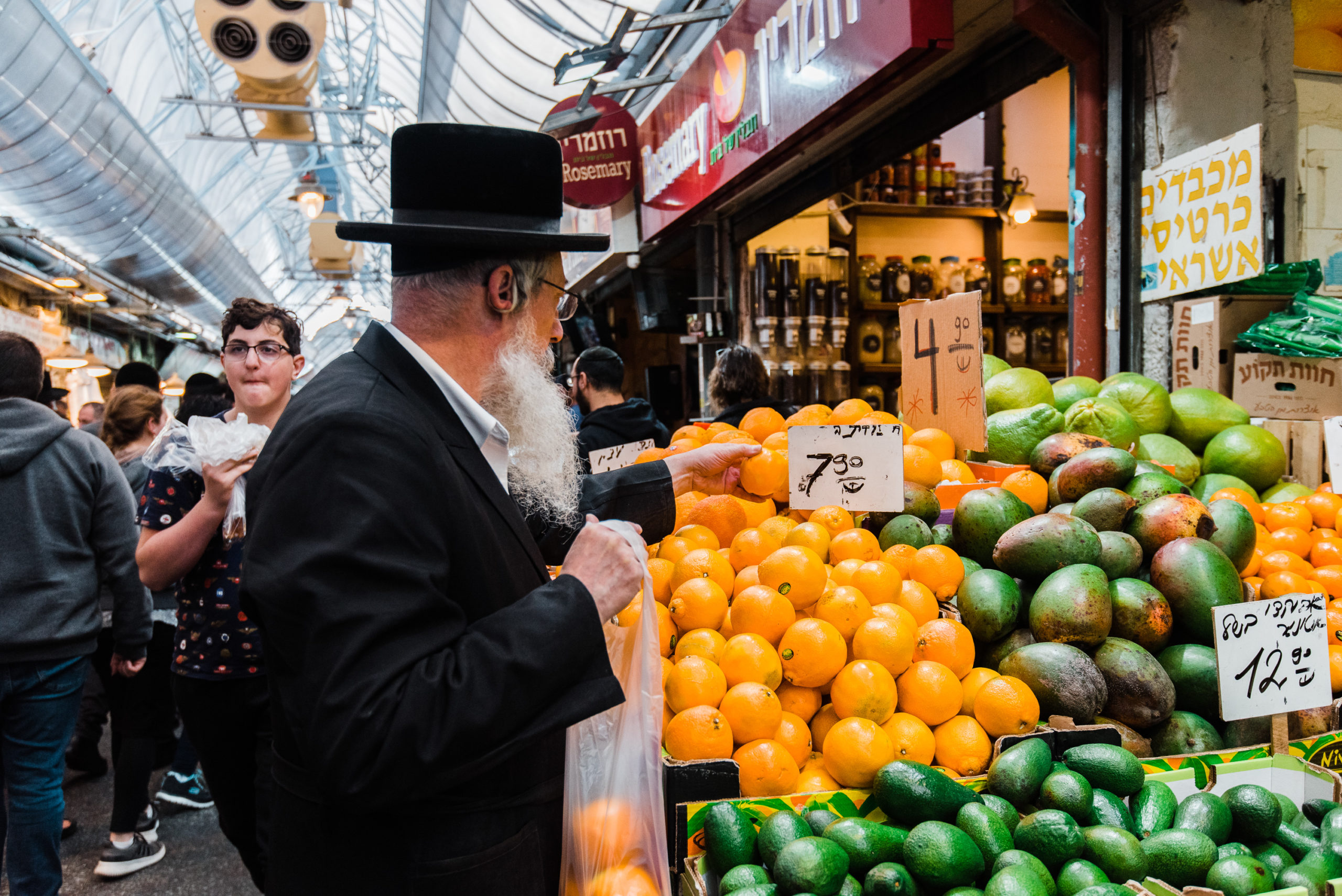
A man shopping for fruit at the Mahane Yehuda Market in Jerusalem
One of our favorite things to buy in Israel was dried fruit tea. There are lots of different flavors, and lots of stands sell it throughout Jerusalem. You take the small pieces of dried fruit and add them to hot water to create a delicious tea. We ended most nights with hot fruit team. Yummm.
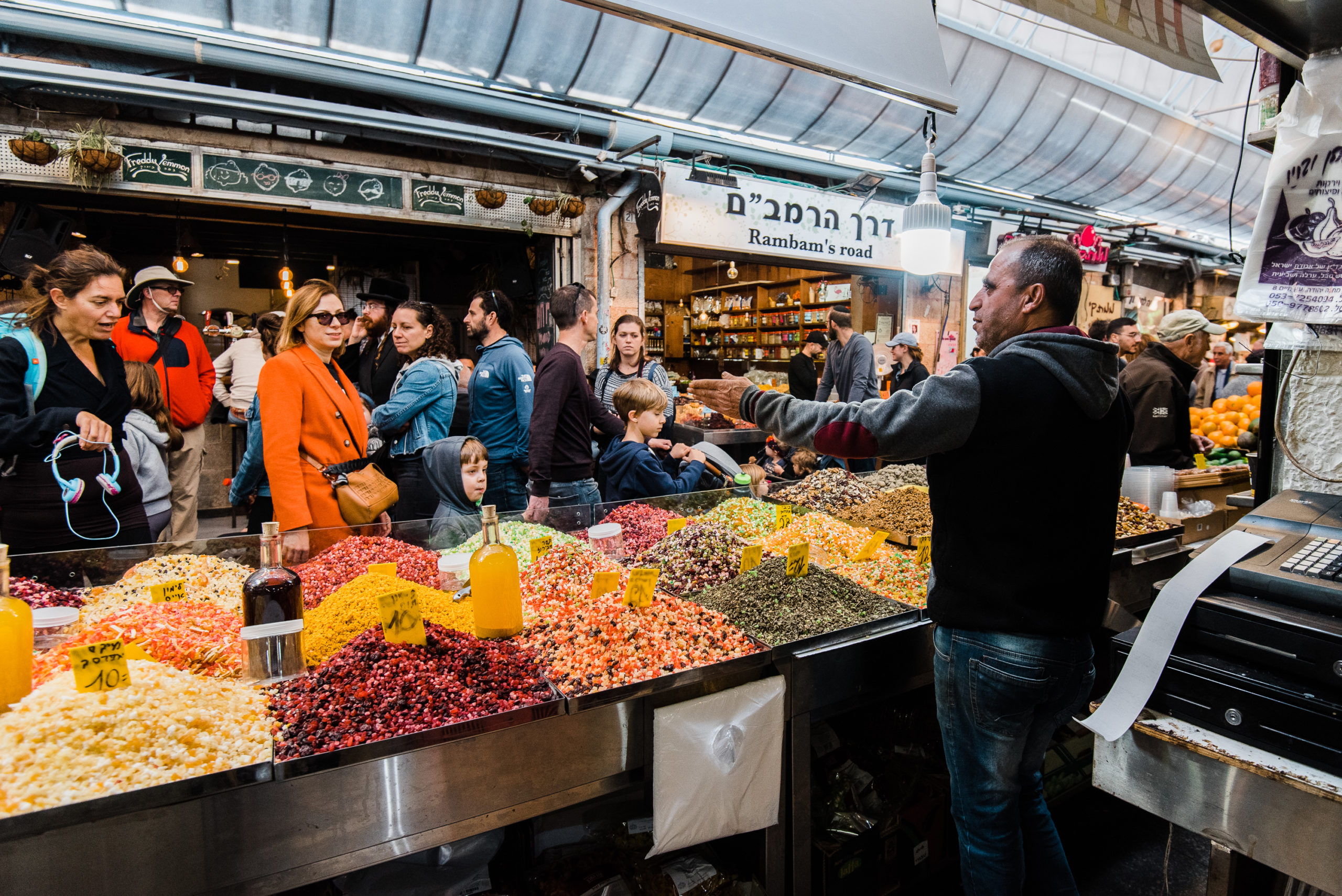
A vendor selling dried fruit tea at the Mahane Yehuda Market in Jerusalem
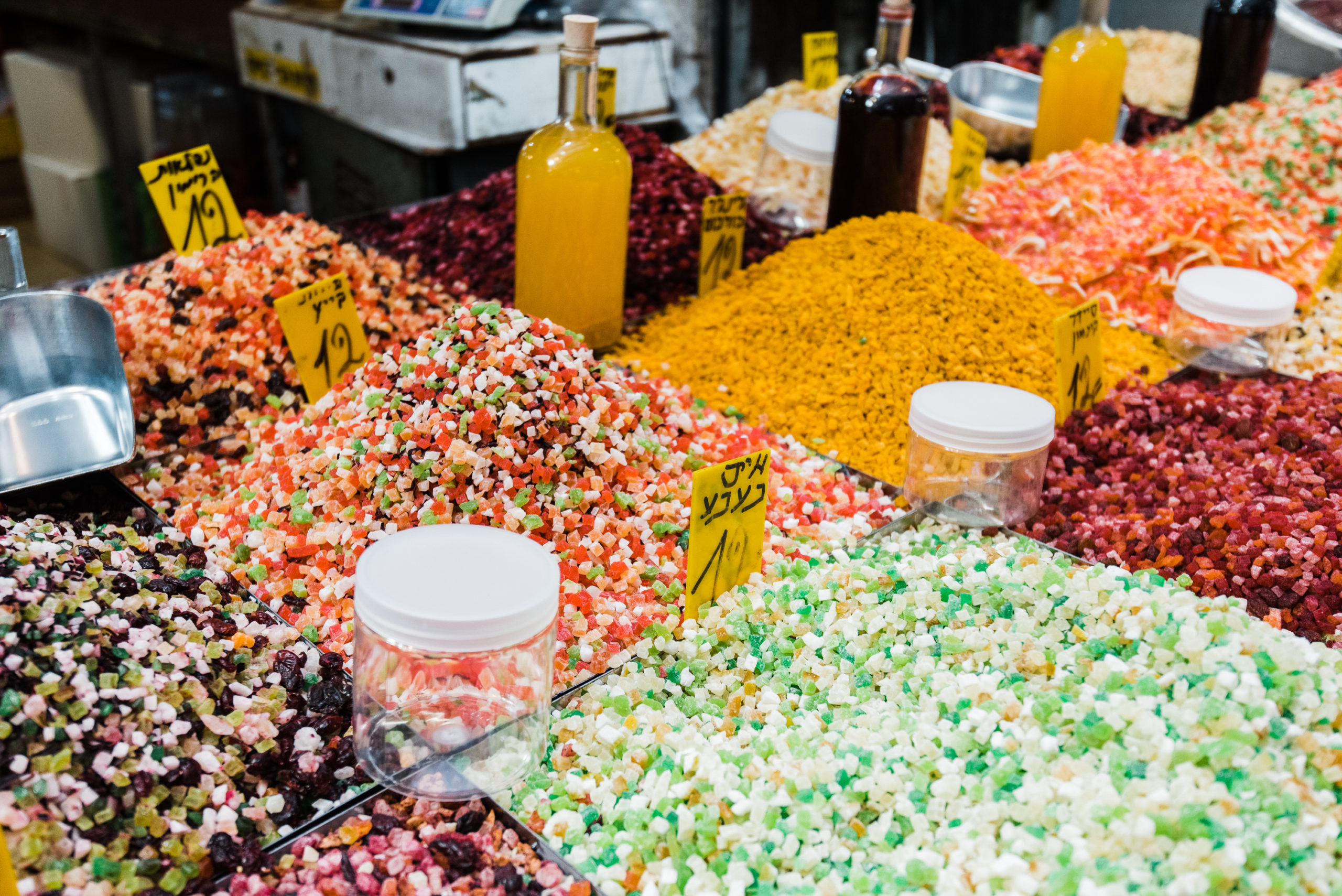
Fruit tea at the Mahane Yehuda Market in Jerusalem. We LOVED these fruit teas.
The donuts in Israel are also excellent and plentiful.
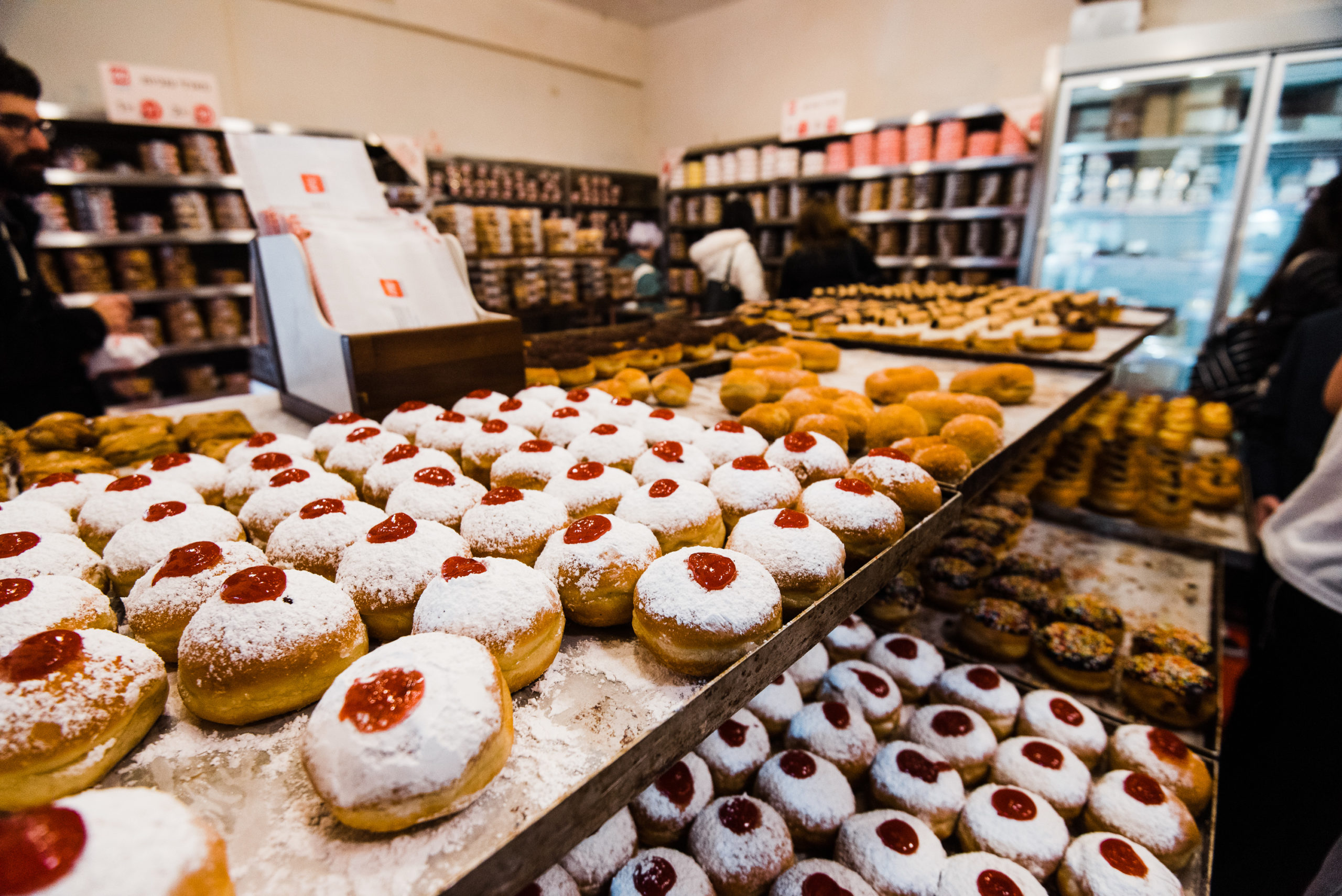
Donut shop in the Mahane Yehuda Market in Jerusalem
The Old City
The Old City is what most people come to Jerusalem to see! It is a walled area within the modern city of Jerusalem and is home to several super significant religious sites for Christianity, Judaism, and Islam. The Old City is divided into 4 sections: The Jewish Quarter, The Armenian Quarter, The Christian Quarter, and The Muslim Quarter. The walled area is entered by one of seven entry gates with the Jaffa Gate being the most popular for tourists.
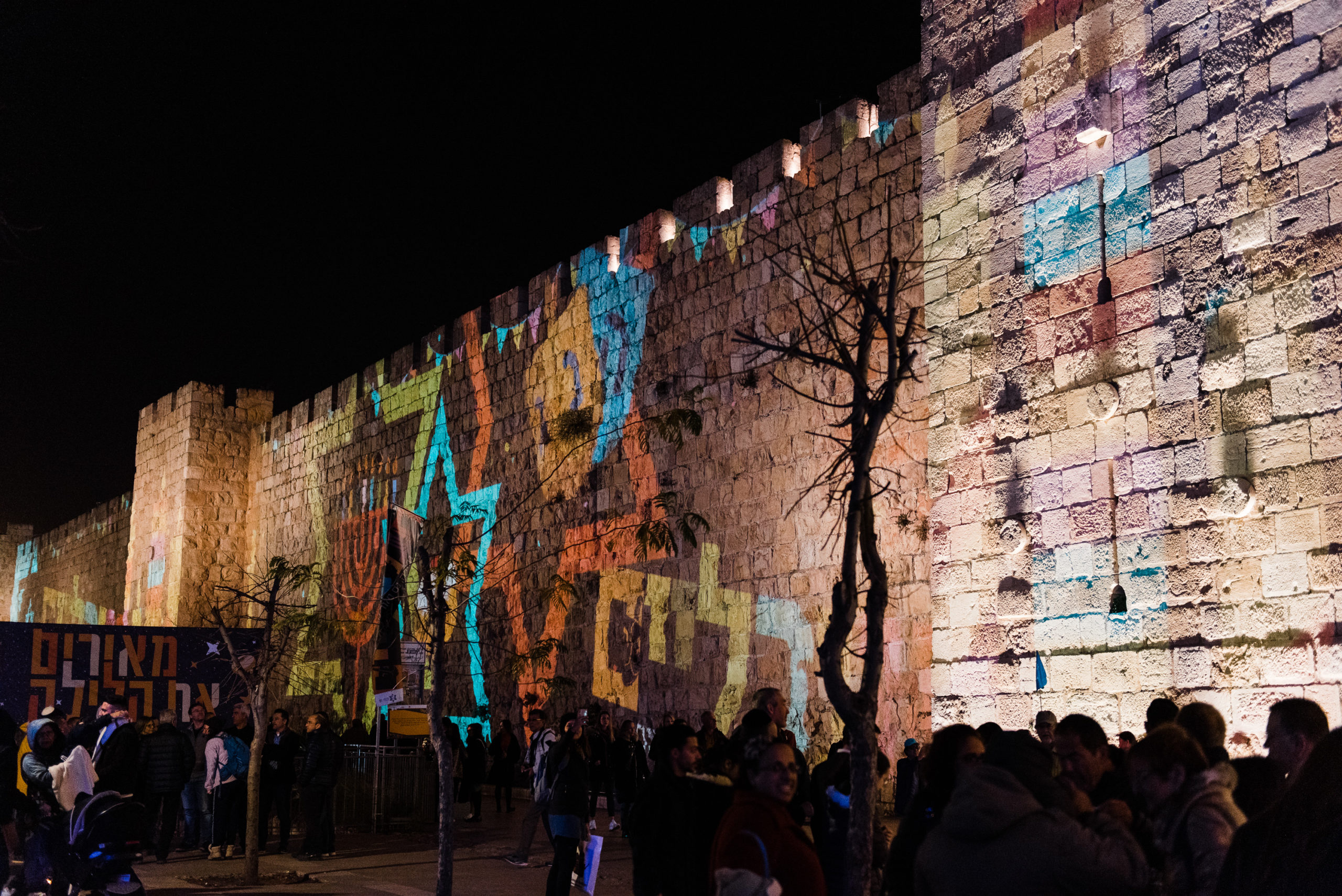
Jaffa Gate at night on Christmas Eve in Jerusalem
This part of Jerusalem is incredible and packed with history, culture, and religious significance. We wandered through Old City on our own quite a bit, but we also took a guided tour of the area with Tourist Israel. The group was big, but the guide did a great job. I would recommend taking a guided tour, but also wandering through the streets on your own.
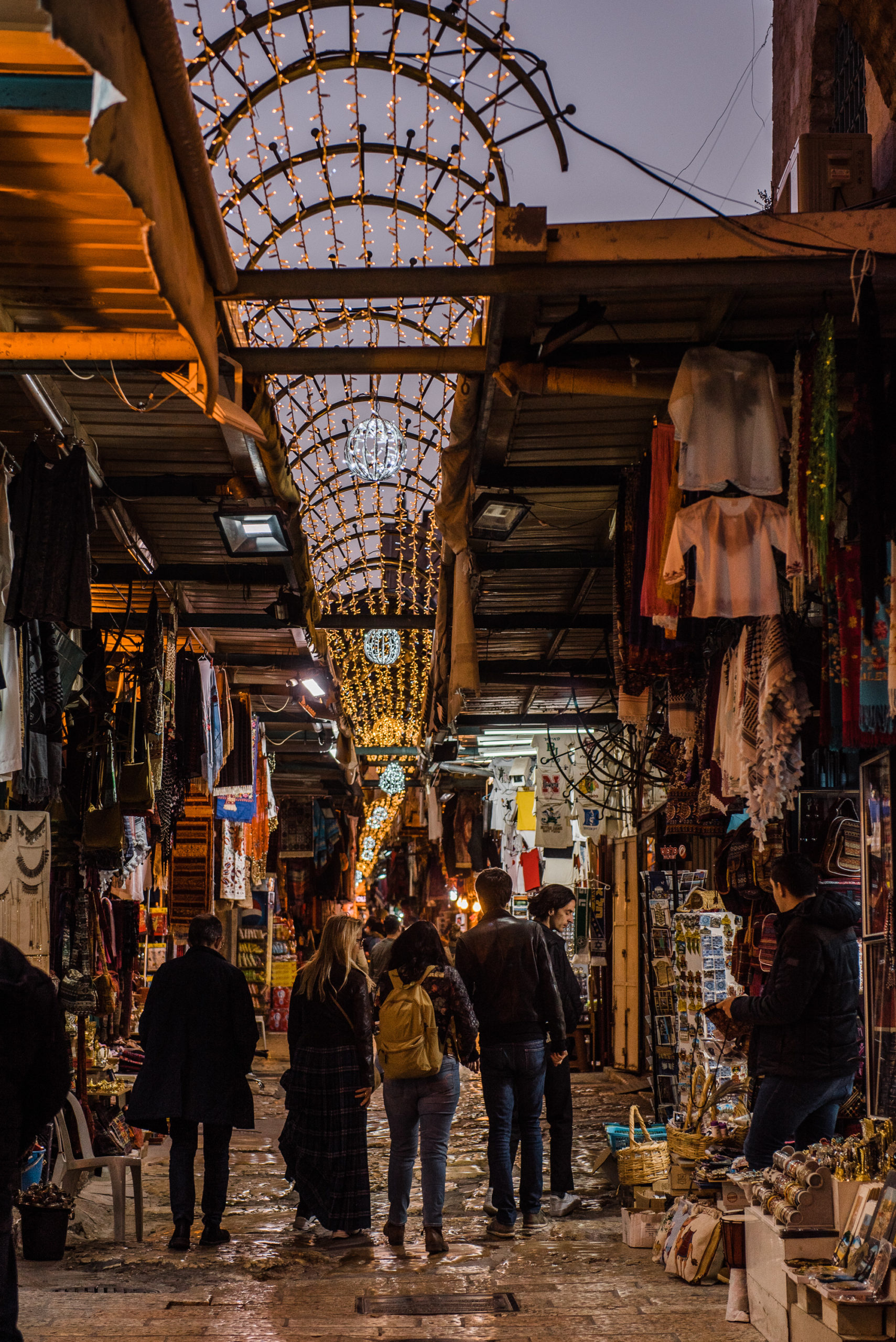
Wanding the narrow streets of The Old City in Jerusalem is a magical experience.
Church of the Holy Sepulchre
This Church of the Holy Sepulchre is located in the Christian Quarter of the Old City and contains some of the holiest sites for Christianity including the place where Jesus was crucified and the location of Jesus’ tomb.
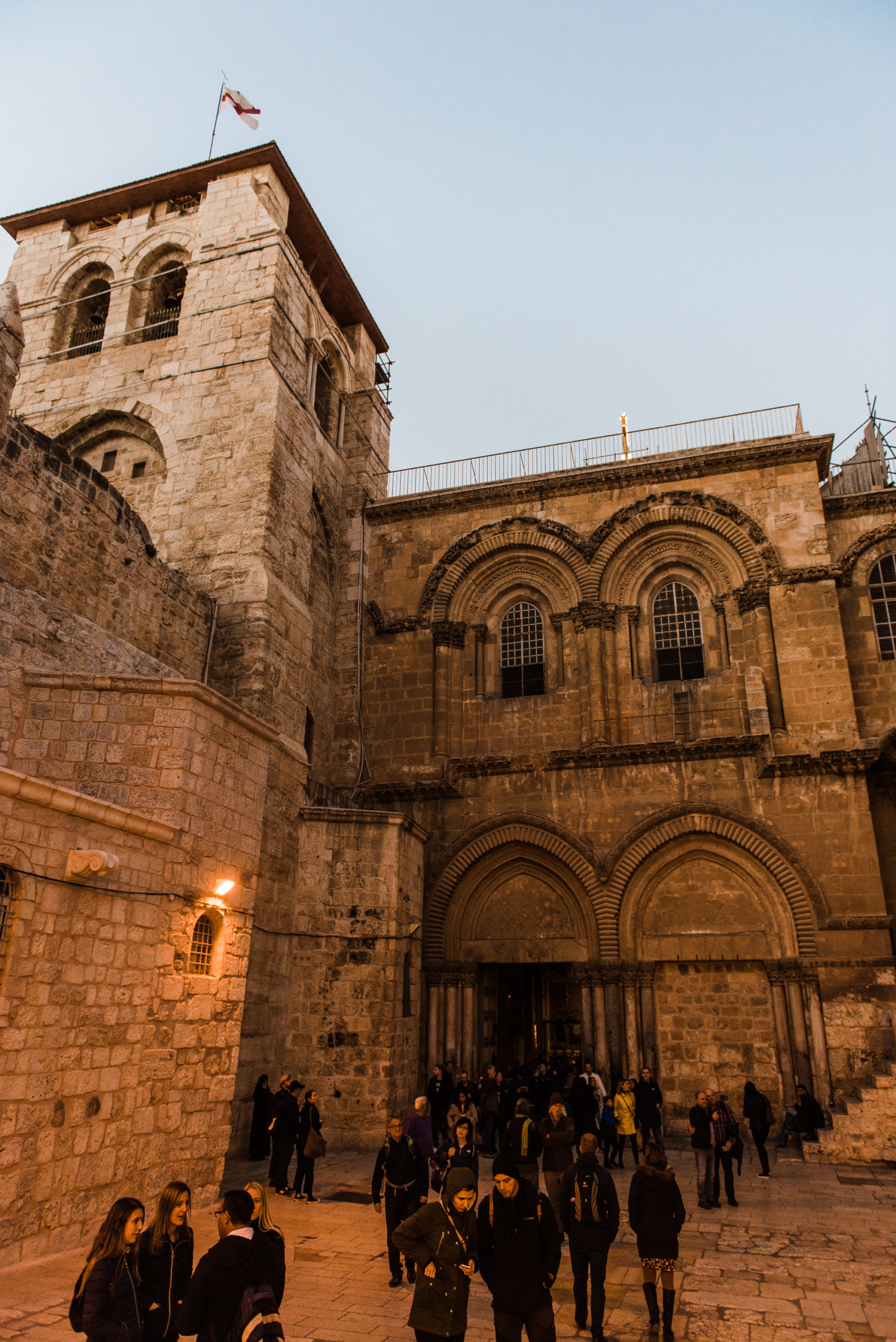
Church of the Holy Sepulchre in The Old City of Jerusalem
This is the site where it is believed that Jesus was crucified-also known as Calvary or Golgotha. The church was literally built around the mount where the crucifixion took place, and you can see the actual rock under the glass on either side of the cross.
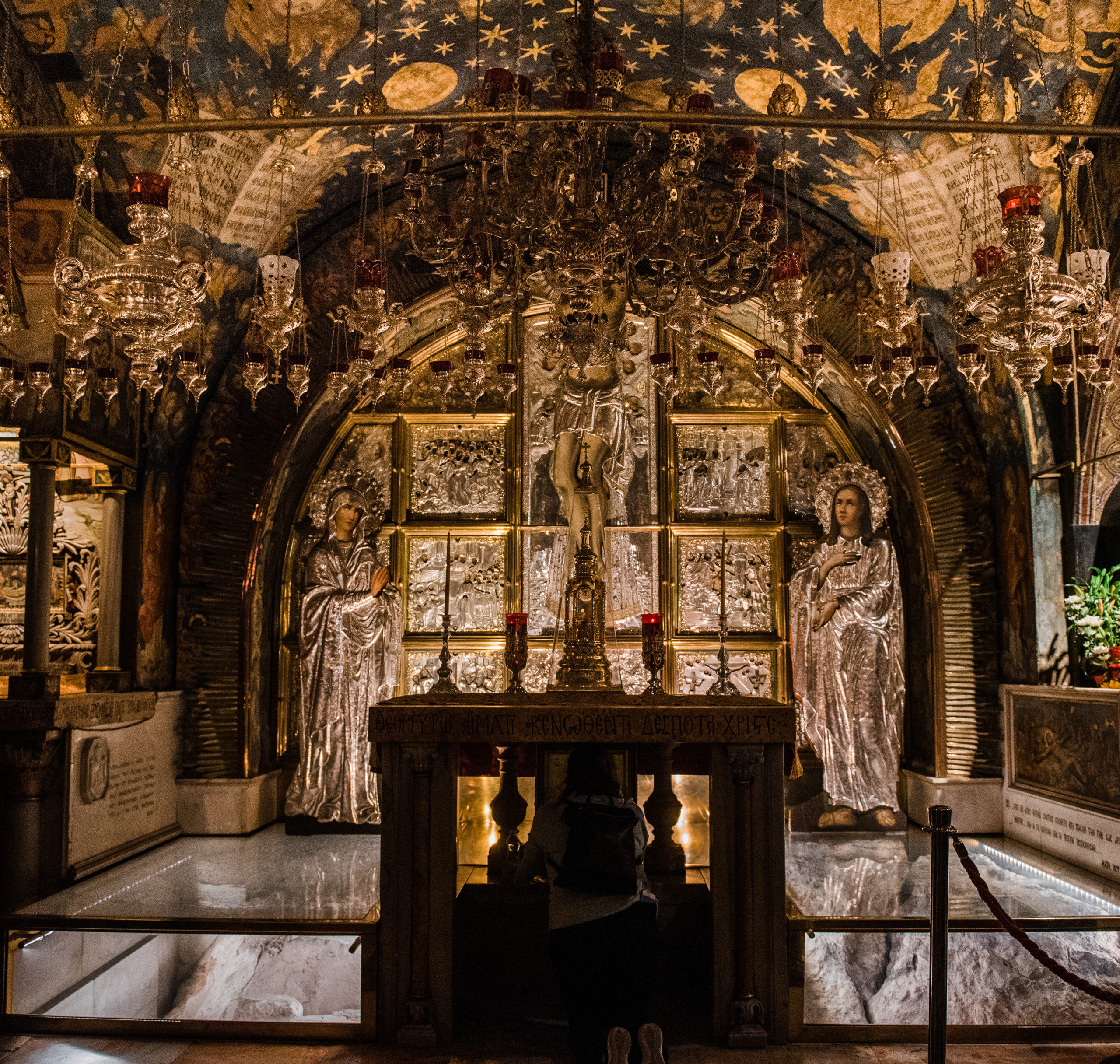
Golgotha: The site where it is believed that Jesus was crucified
This is where it is believed Jesus was buried and resurrected. This chapel was built around the site of the tomb.
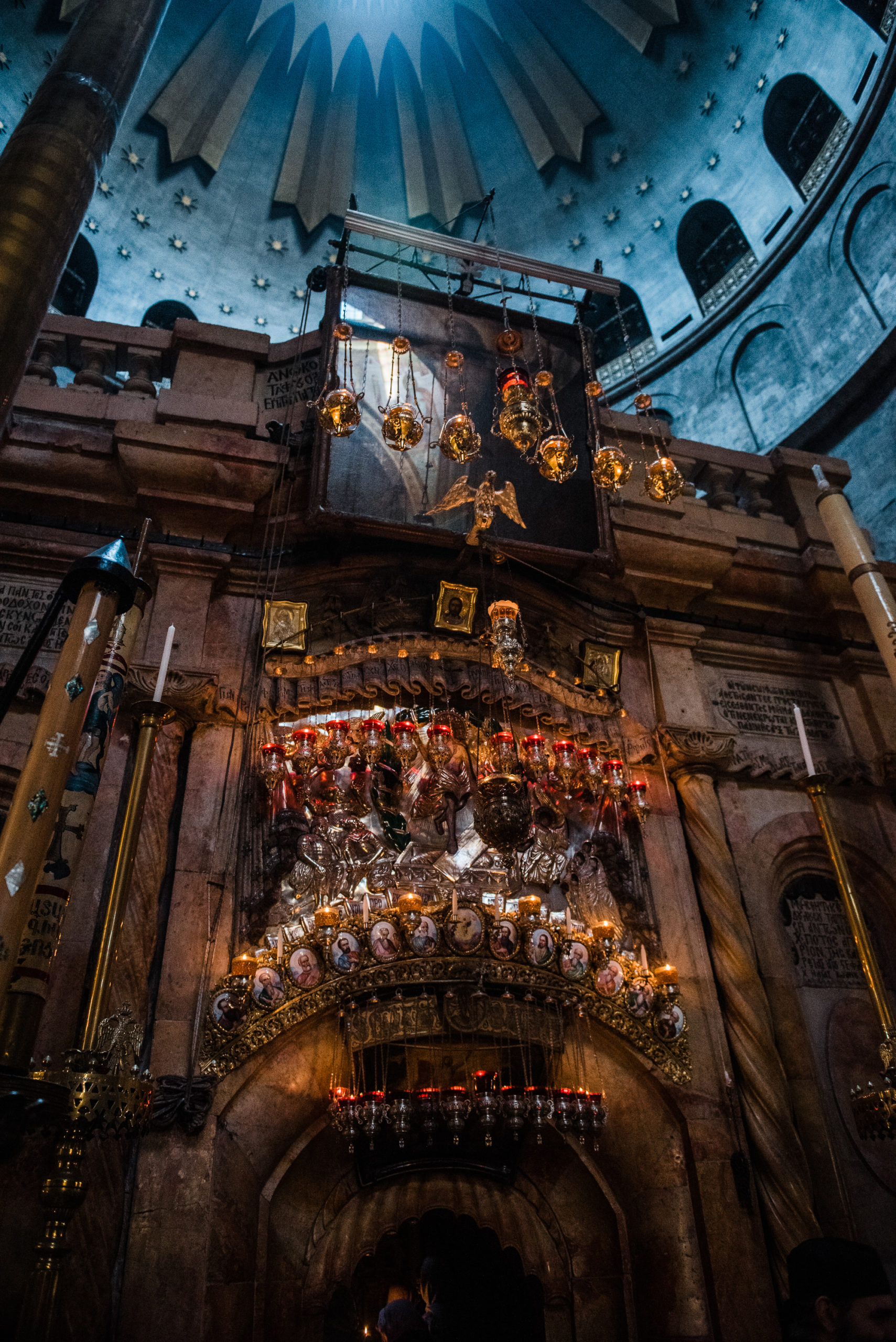
The site where it is believed Jesus was buried and resurrected
The Stone of Anointing, where it is believed Jesus’ body was rubbed with oil and prepared for burial. Today, people touch the stone and rub items on the stone hoping to absorb some of the oil that was once used on the body.
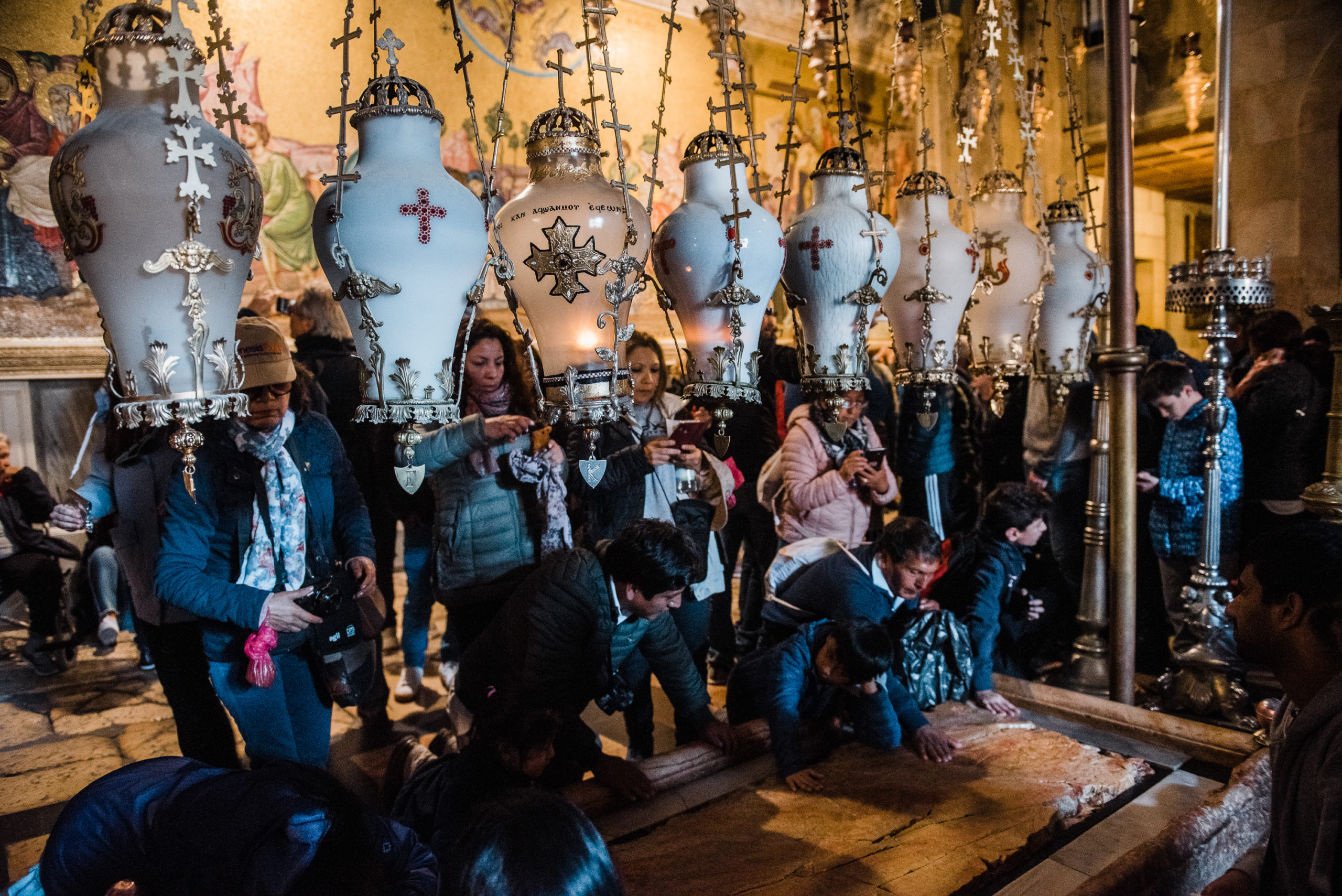
The Stone of Anointing, where it is believed Jesus’ body was rubbed with oil and prepared for burial.
Western Wall
The Western Wall is the last remaining wall of the ancient Jewish Temple in Jerusalem. It is considered the holiest place where Jews are permitted to pray. Today, people of any faith are allowed to visit the wall and pray. Visitors are split separated by gender, and you’ll see people of all ages reading and praying at the wall. It’s an amazing experience to be there and take it in.
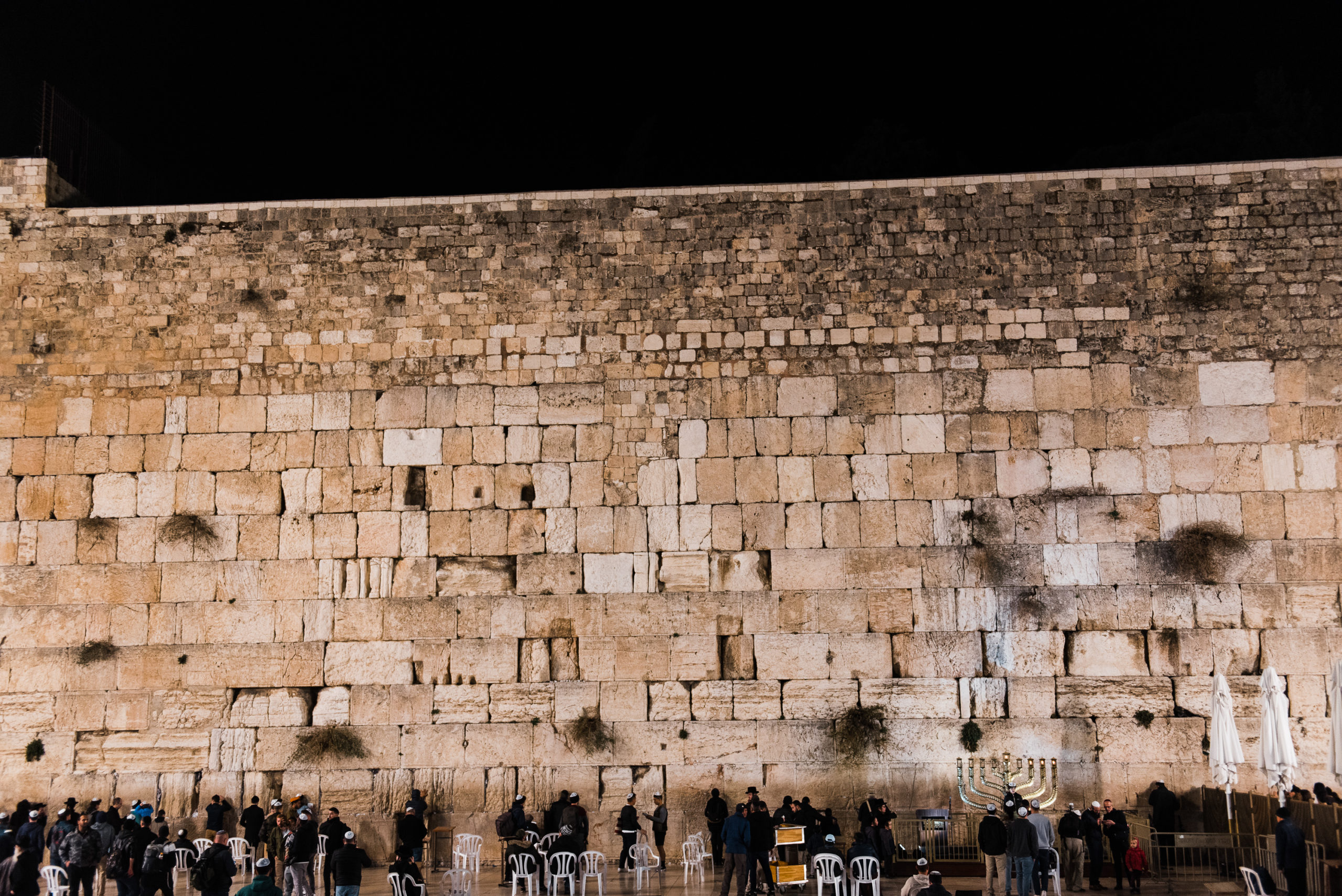
The Western Wall in the Old City of Jerusalem
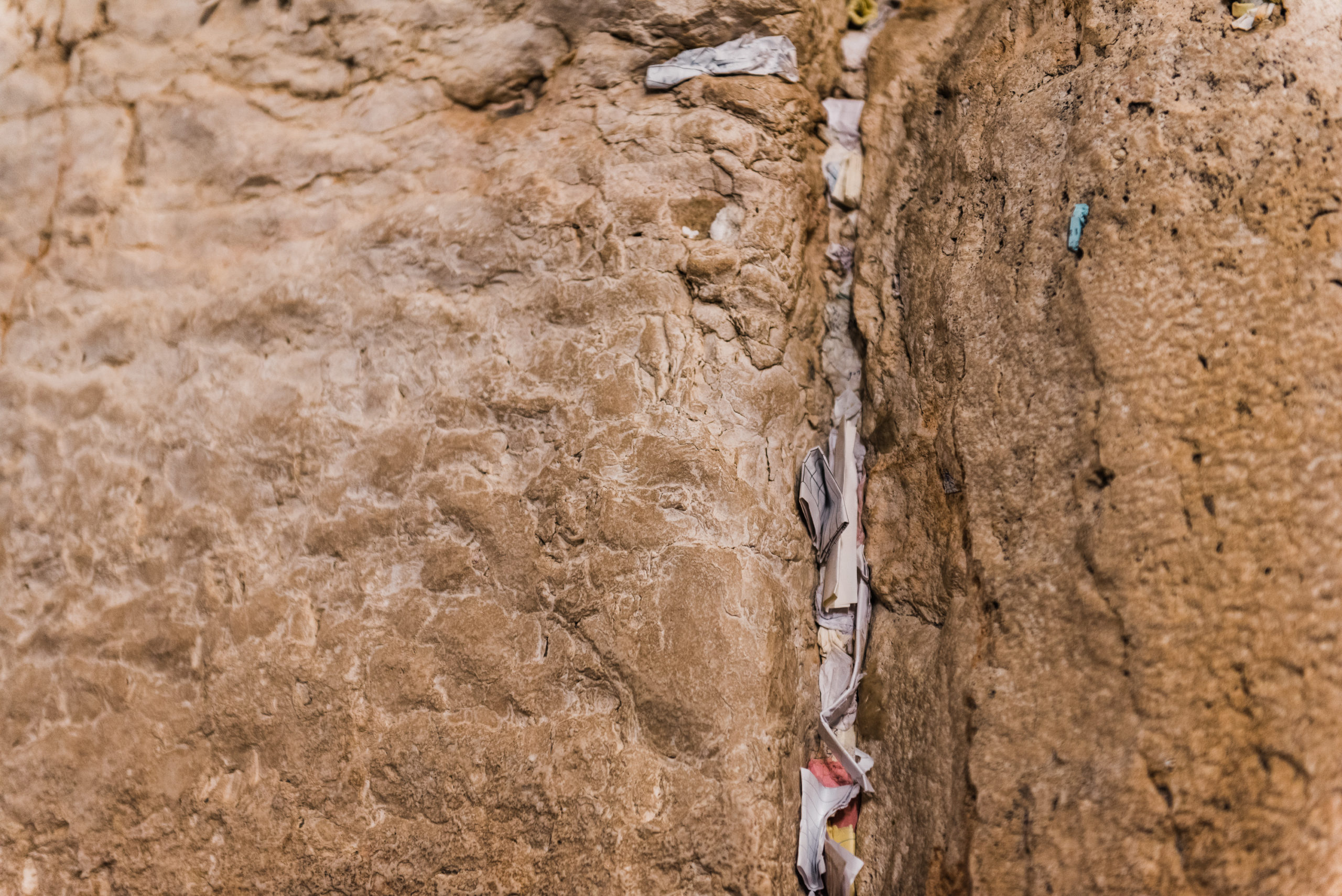
People will write letters and prayers and stick them in the cracks of the Western Wall.
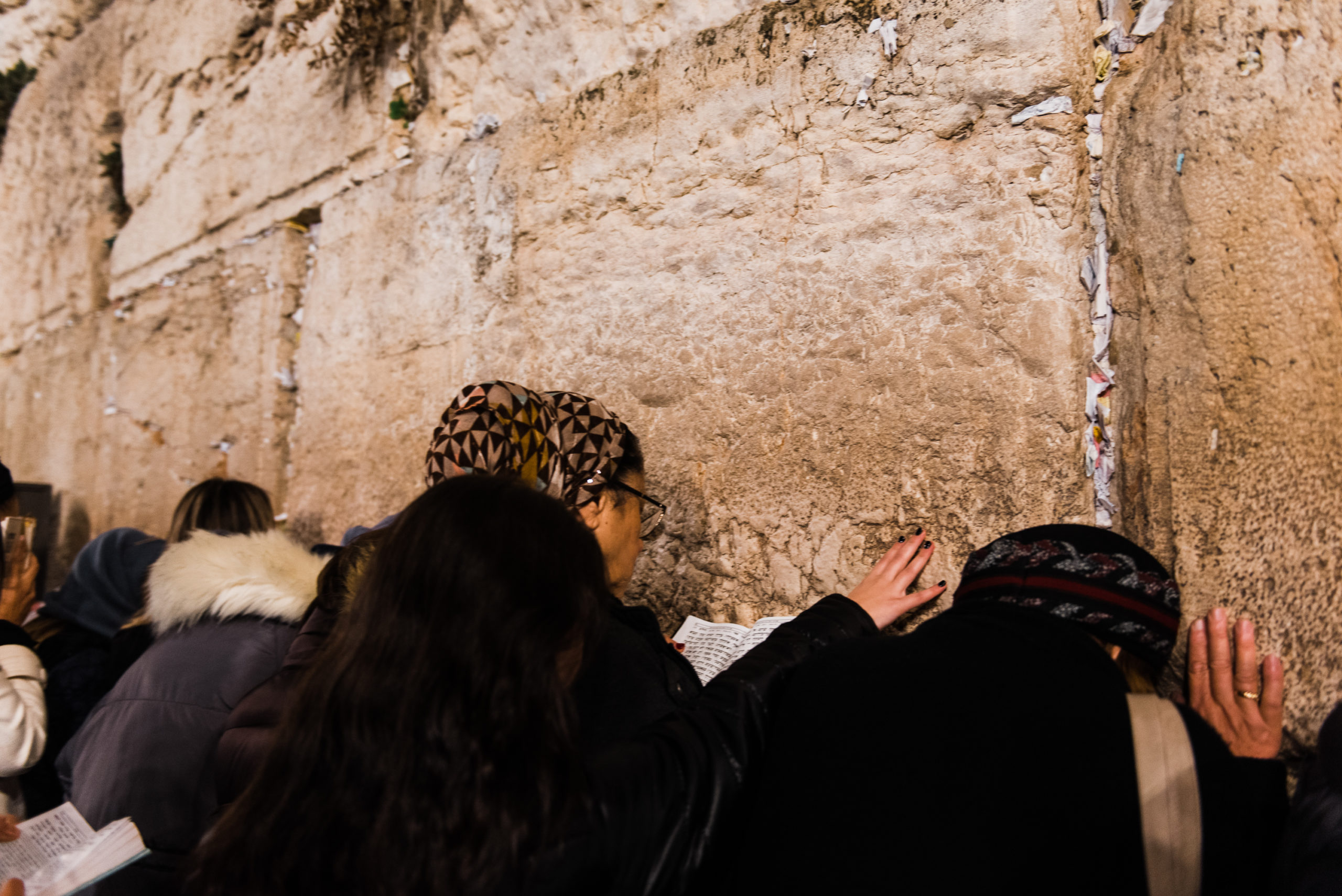
People praying at the Western Wall in the Old City of Jerusalem
More sites from Old City
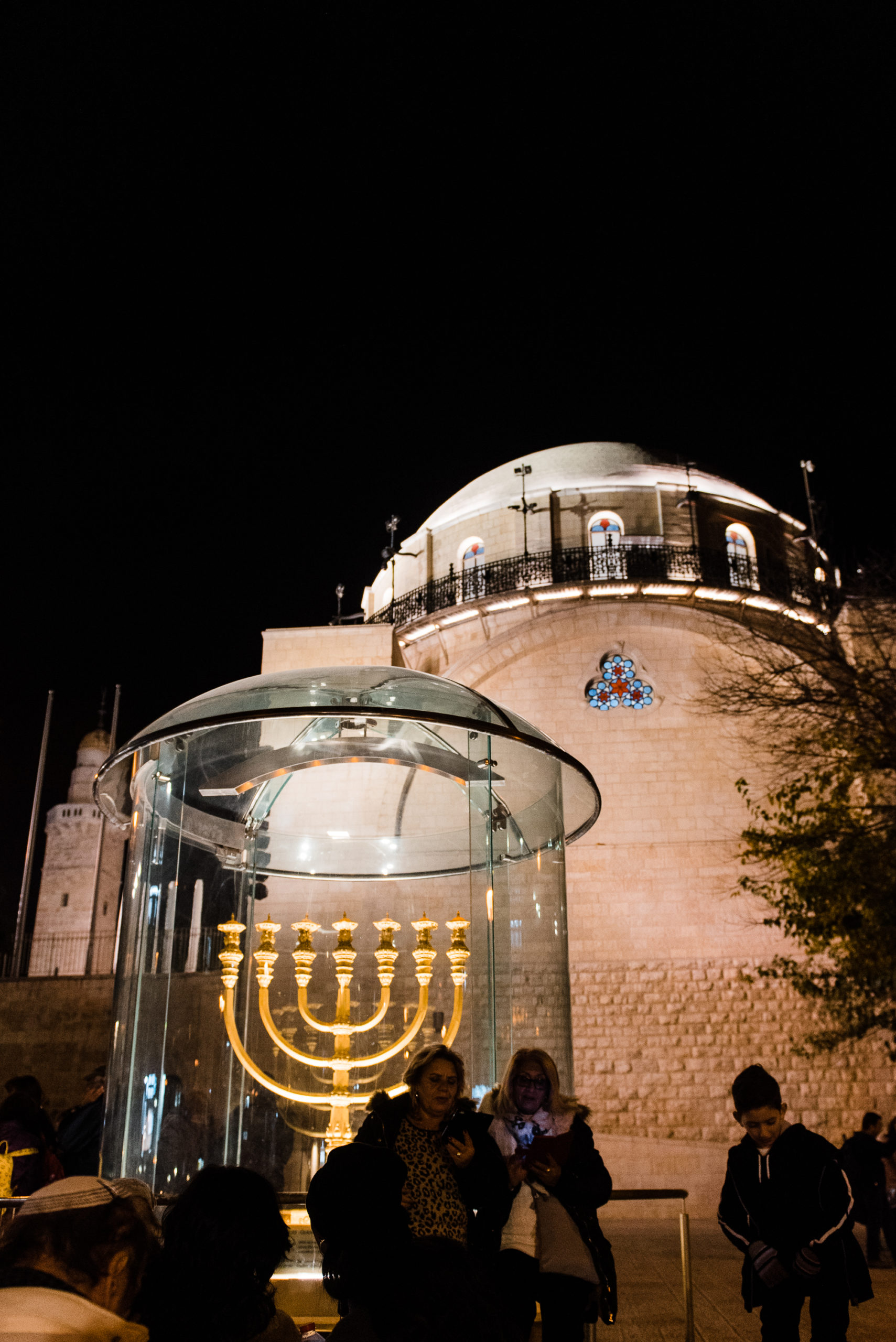
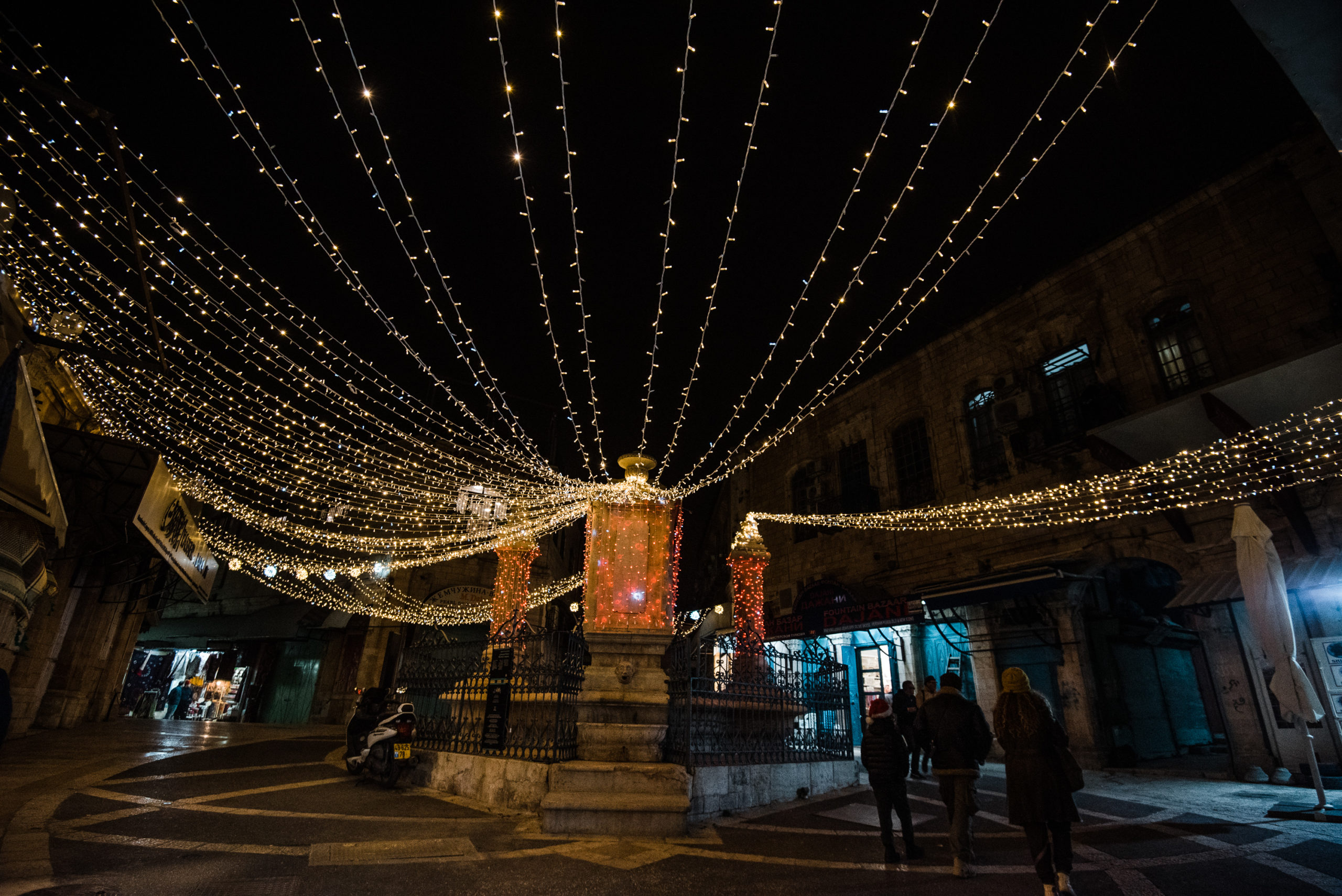
Midnight Mass in the City of Bethlehem for Christmas Eve
Let me start by saying I do NOT recommend going to Bethlehem for midnight mass on Christmas Eve.
Since Bethlehem is controlled by Palestine, you cannot drive an Israeli rental car into Bethlehem. For this reason, we took a special midnight mass tour to Bethlehem through Tourist Israel. The tour company didn’t do a very good job, but it’s just not worth going to Bethlehem for Christmas eve in general. There is really nothing to see on Christmas Eve, and your time would be better spent staying in Jerusalem. There is a midnight mass in Manger Square, but there is no sound and only one small tv broadcasting the mass. We saw Manger Square and about 15 minutes of the mass before we headed back to Jerusalem.
If you want to see Bethlehem, I think your best bet is to take a taxi from Jerusalem to Bethlehem or take a tour on a regular day. there are other cool things to see in Bethlehem, but midnight mass on Christmas Eve is not one of them.
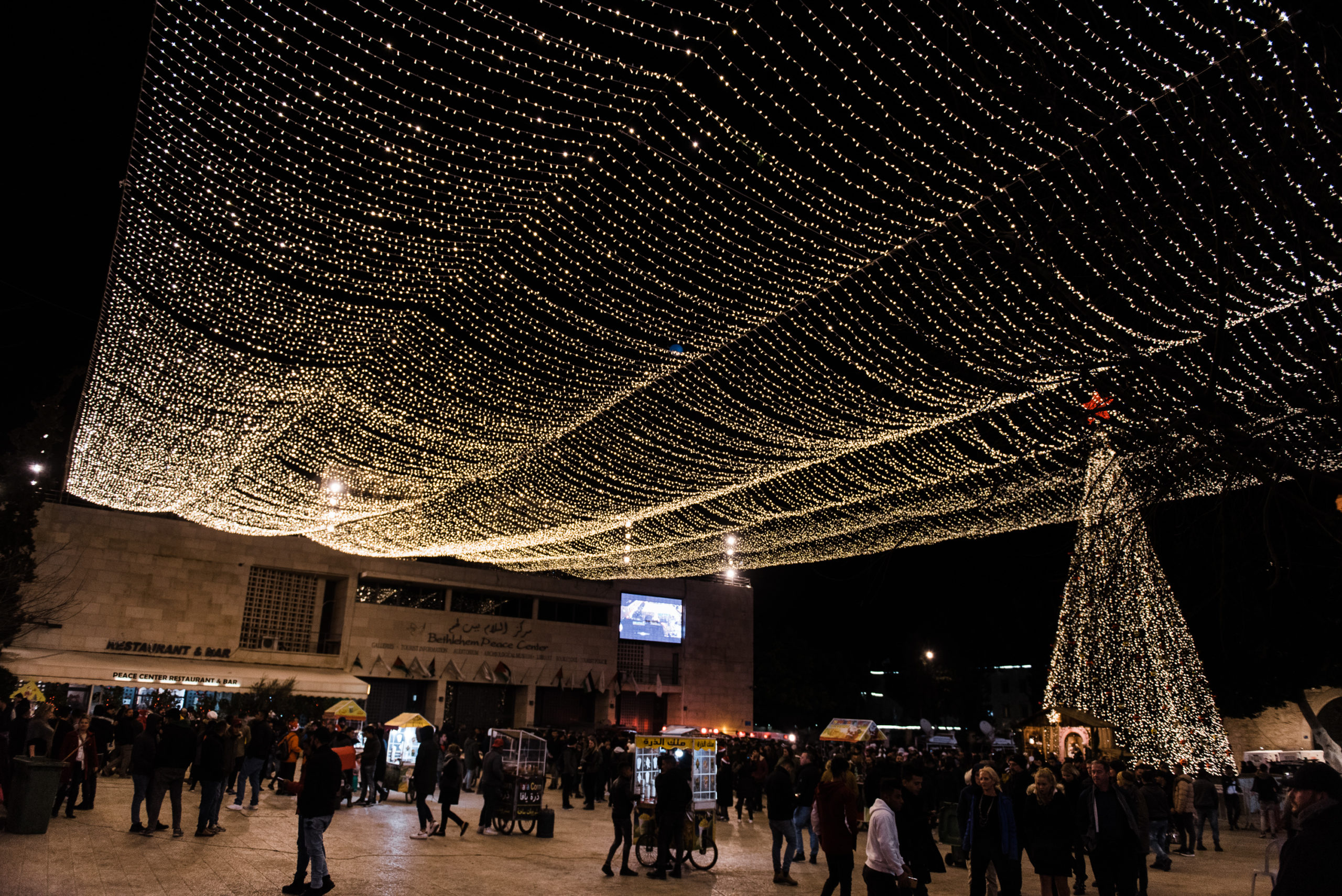
Manger Square in Bethlehem on Christmas Eve
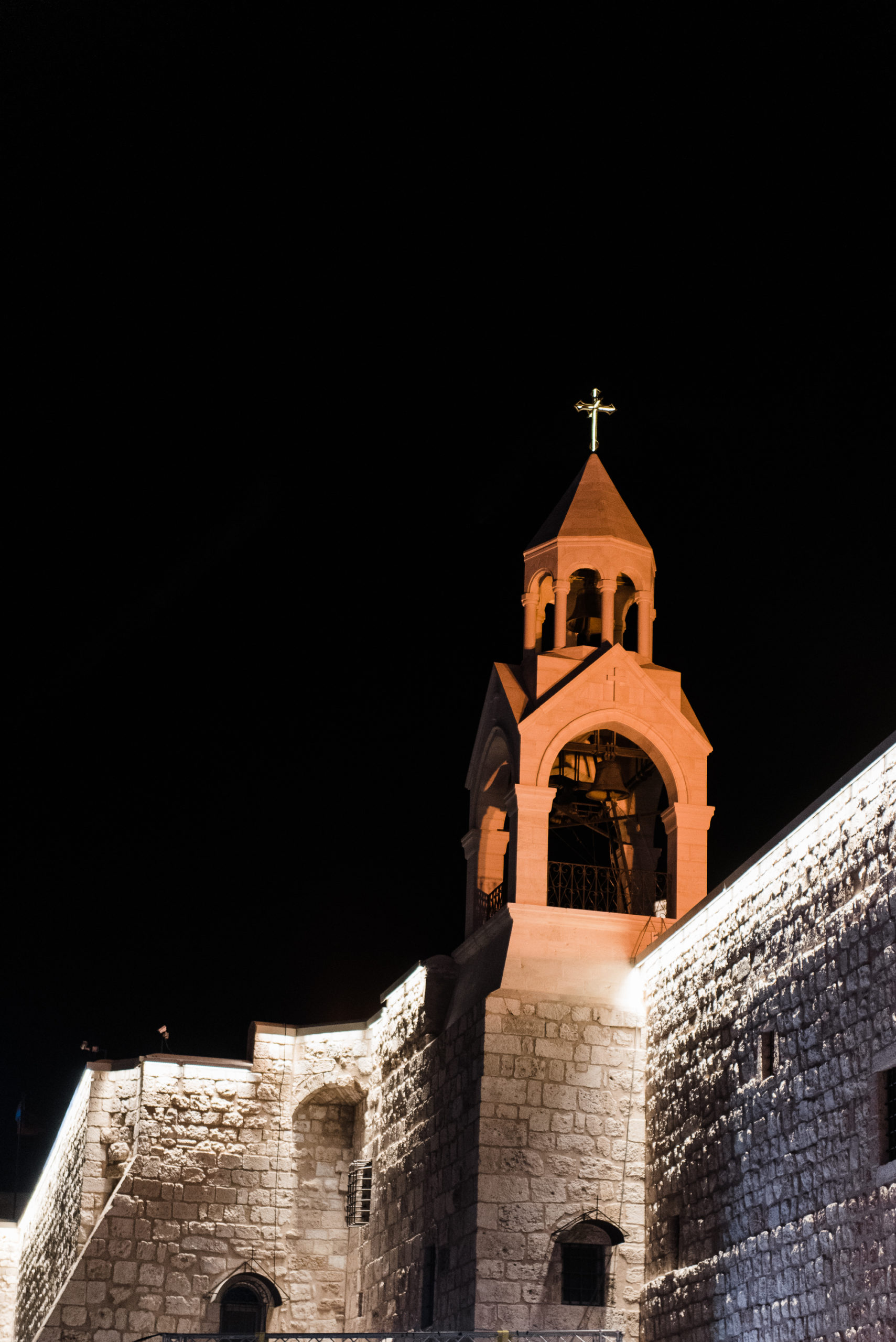
Church of the Nativity in Bethlehem
Day 3: Mount Zion and Mount of Olives
Mount Zion
After being up late the night before, we slept in and relaxed for a bit on day 3. Then we headed back toward Old City to see Mount Zion, which has more religious and historic sites. Mount Zion is located just outside of Old City, and we easily walked there from Jaffa Gate.
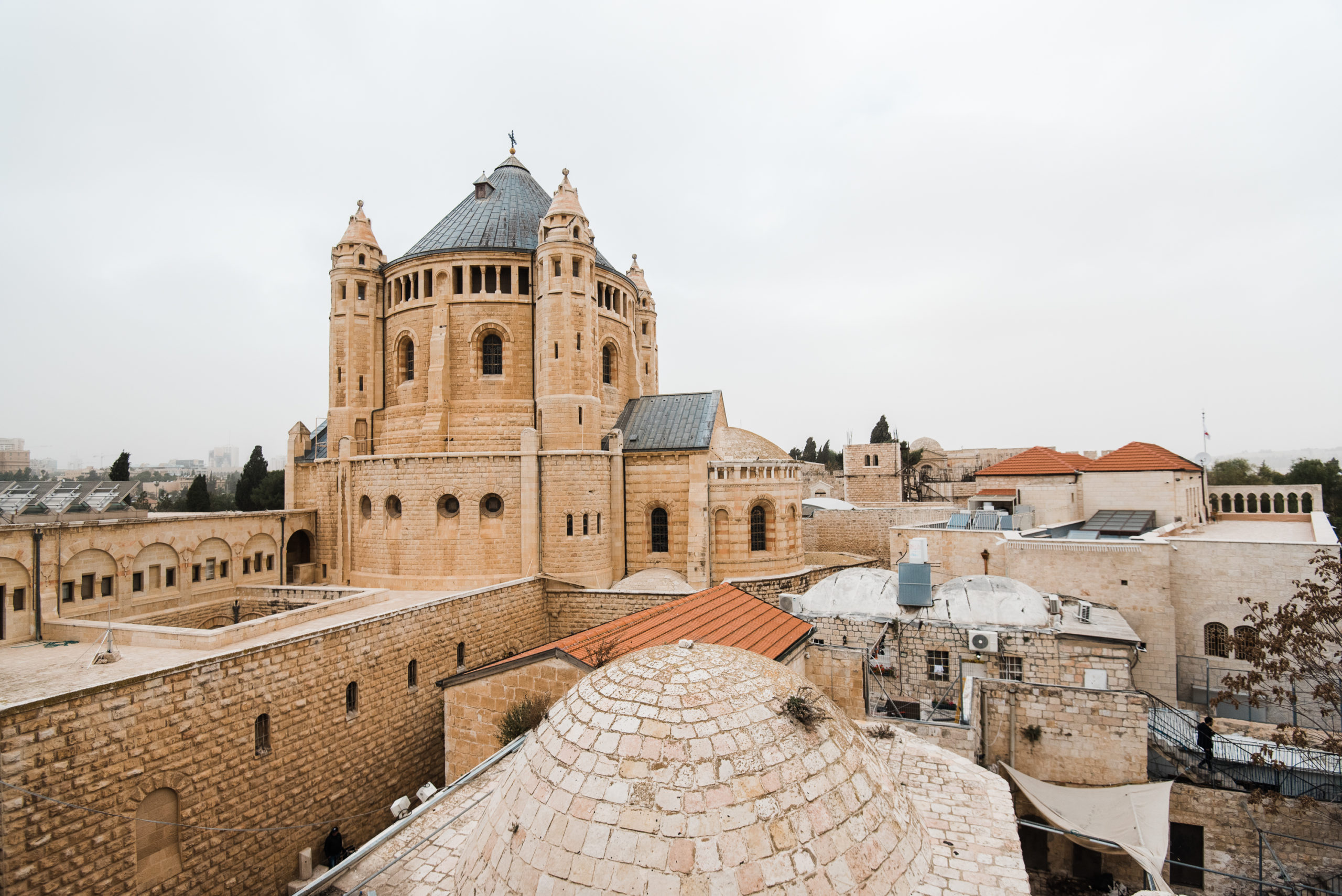
Dormition Abbey at Mount Zion
Dormition Abbey
Dormition Abbey is an ancient monastery at Mount Zion and is believed to be the place where the Virgin Mary died. It’s a beautiful structure, and you can go inside to see the stunning interior and the crypt.
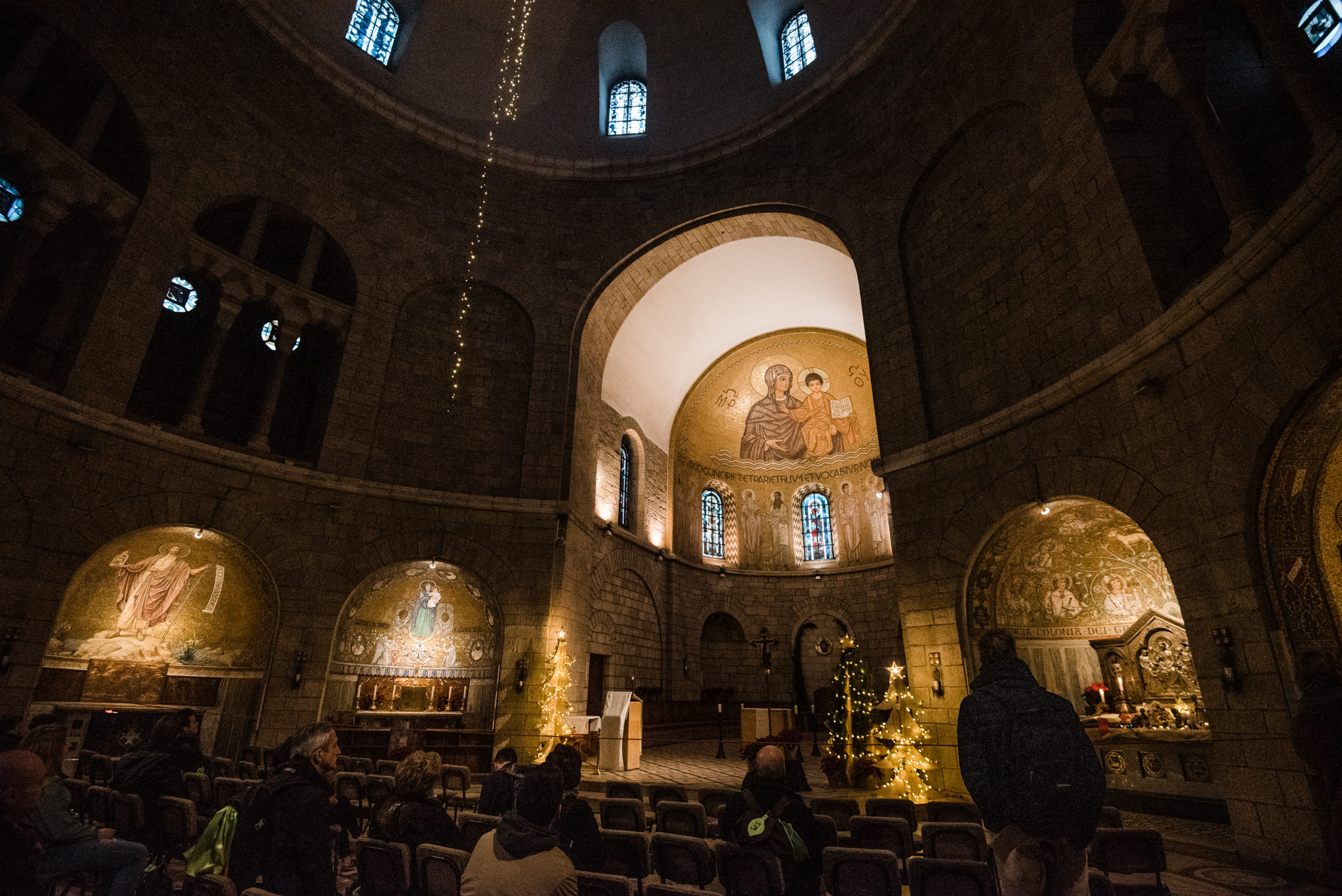
Inside Dormition Abbey at Mount Zion
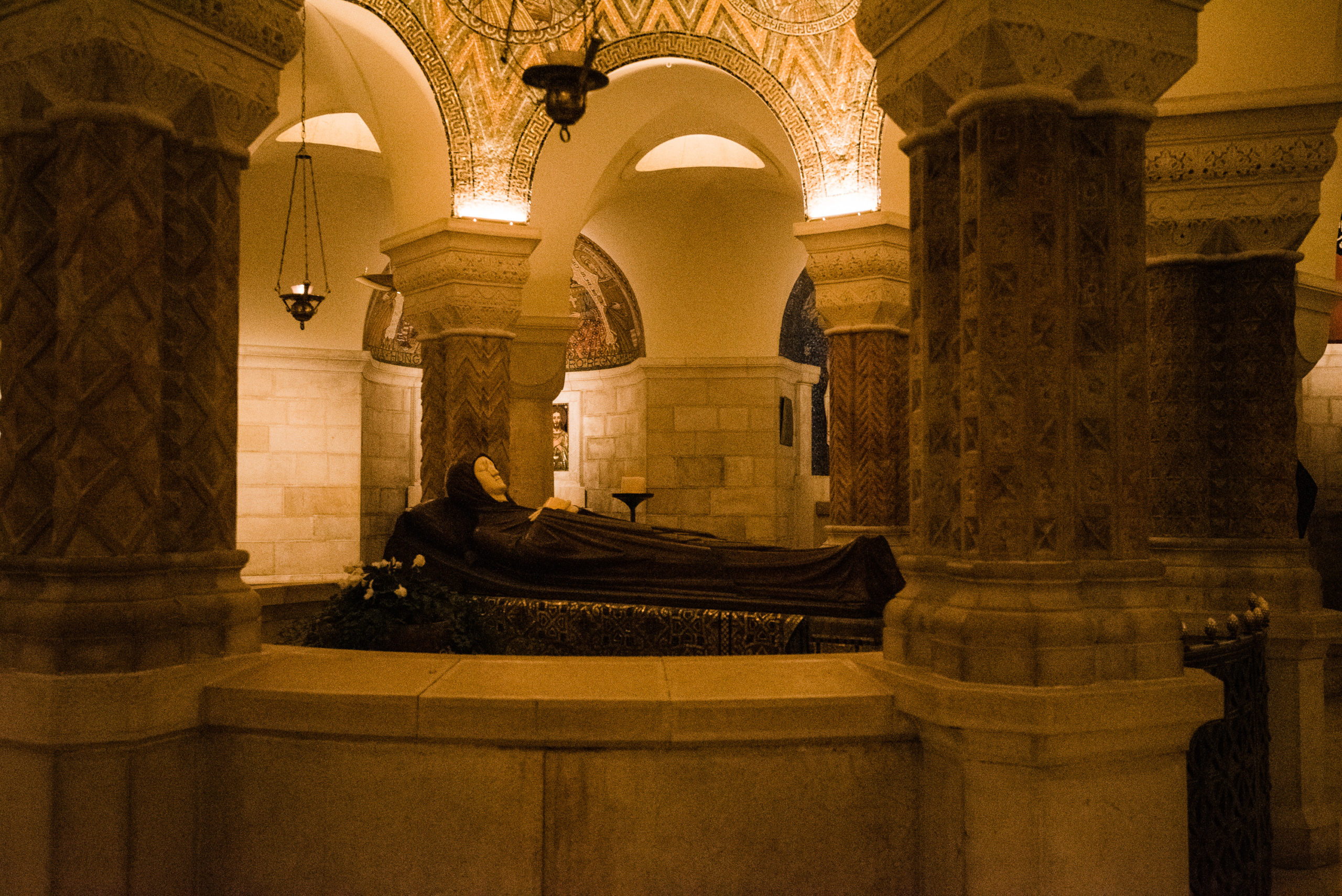
The crypt in the Dormition Abbey where it is believed the Virgin Mary died.
Mount of Olives
Mount of Olives is another Biblically important site just outside of the Old City. We didn’t exactly do Mount of Olives the best way, but we saw it! After Mount Zion, we walked through Old City to Damascus Gate and caught a bus to the top of Mount of Olives. The bus was easy and cheap and took us right to the top where Chapel of the Ascension is. The chapel is believed to be the place where Jesus ascended into heaven after his resurrection. There is a small fee to enter the chapel area.
From the chapel, we walked down a steep hill to the Garden of Gethsemane, where Jesus was arrested. The garden is beautiful and is also the site of The Church of All Nations, also known as the Church or Basilica of the Agony, where Jesus prayed before his arrest.
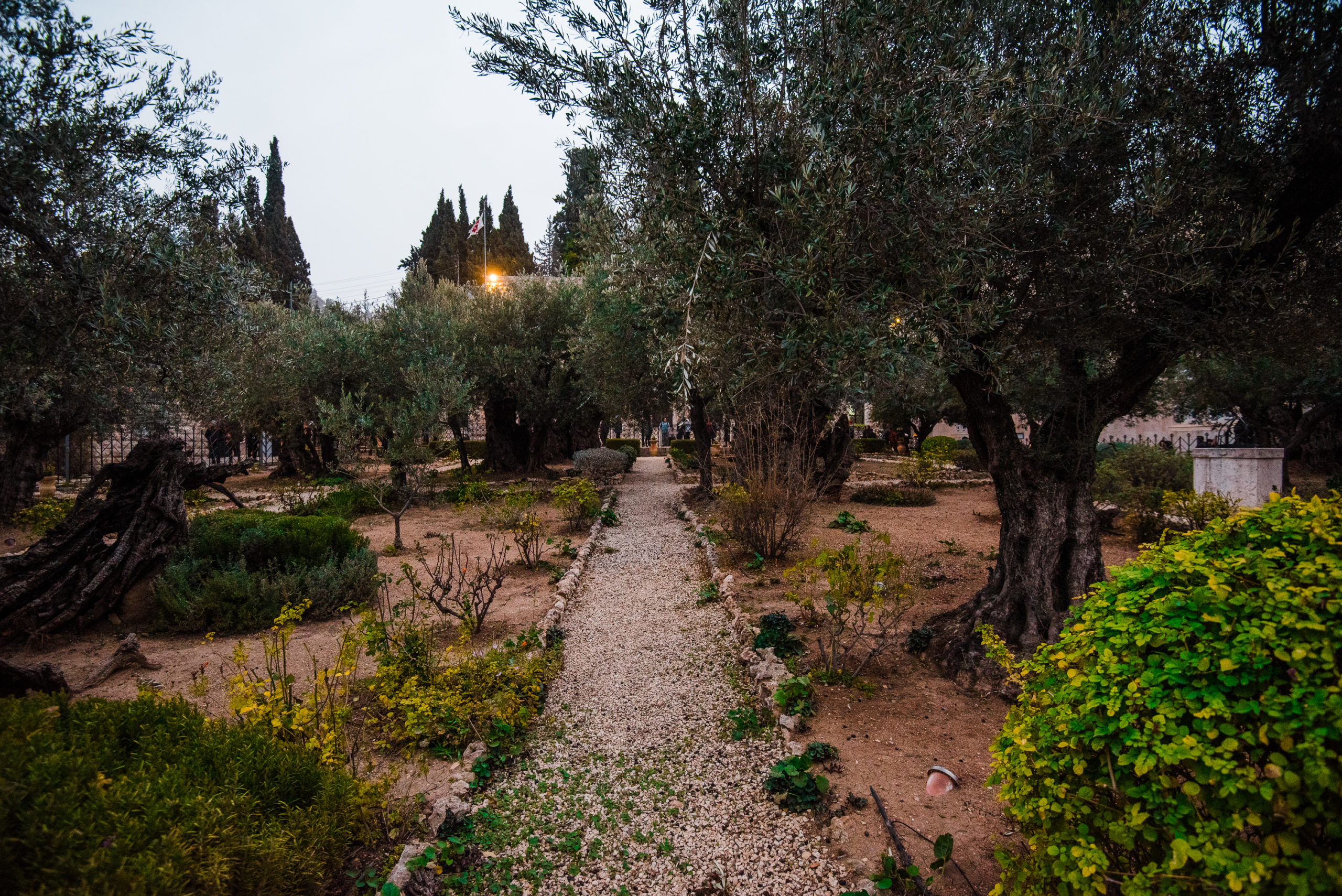
Garden of Gethsemane
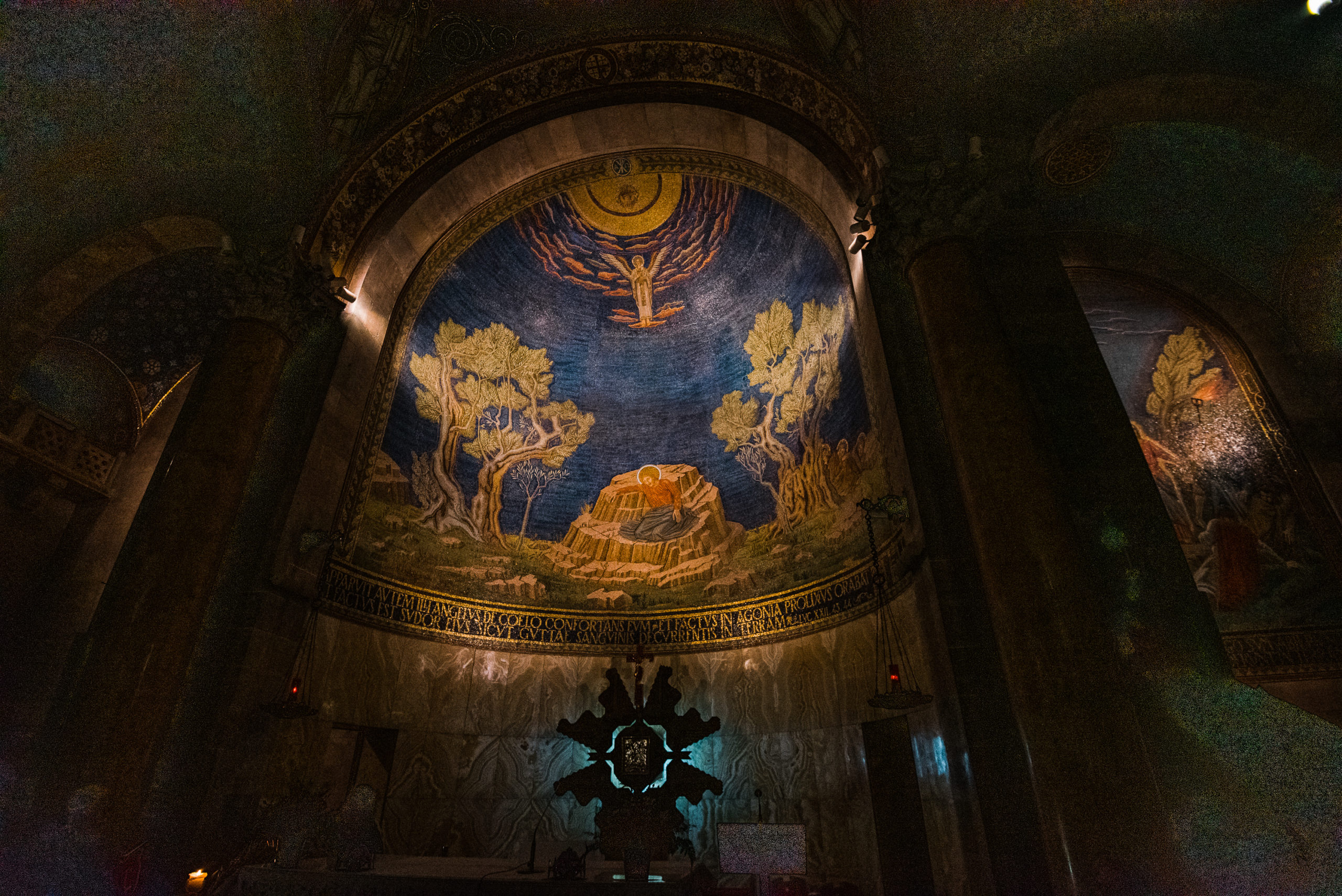
Inside the Church of All Nations, also known as the Church or Basilica of the Agony, where Jesus prayed before his arrest.
Day 4: Jerusalem: Temple Mount and City of David
Dome of the Rock at Temple Mount
I was so excited to see Temple Mount. Not only is it absolutely stunning, but this place is a sacred site for Judaism, Christianity, AND Islam. In Judaism, it is believed that here God gathered the dust to create the first man. In Christianity, it is believed that Dome of the Rock is where Abraham almost sacrificed his son Isaac. In Islam, it is believed that this is where Muhammad ascended into heaven.
IMPORTANT: There are only certain times of day when Temple Mount is open for non-Muslims. We didn’t know this and were turned away the first time we tried to visit. There is usually a morning time slot and an afternoon time, and the guards will kick you out of the area as soon as opening hours are over. We went during the last 15 minutes of the afternoon timeslot and had no trouble getting in, but I’ve heard that lines can get long, so it is best to go first thing in the morning. Find opening times here.

Dome of the Rock at Temple Mount in Jerusalem
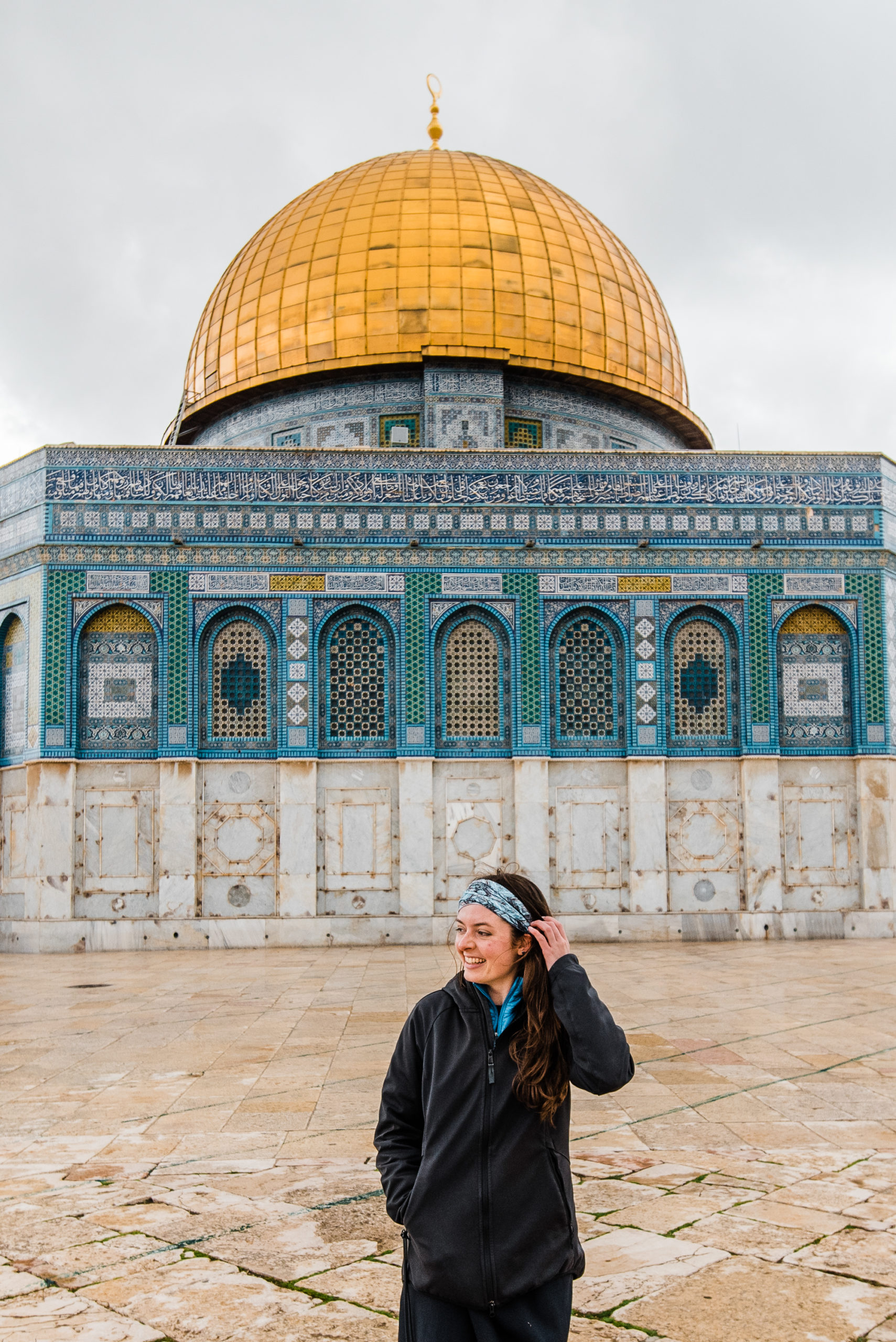
Dome of the Rock at Temple Mount in Jerusalem
This was one of my favorite things we did in Jerusalem! Jerusalem is said to have begun about 3,000 years ago when King David “conquered a narrow hill south of today’s Old City, making it the capital and spiritual center of Israel“. Today the area is a National Park that includes ruins of David’s original palace. It’s amazing.
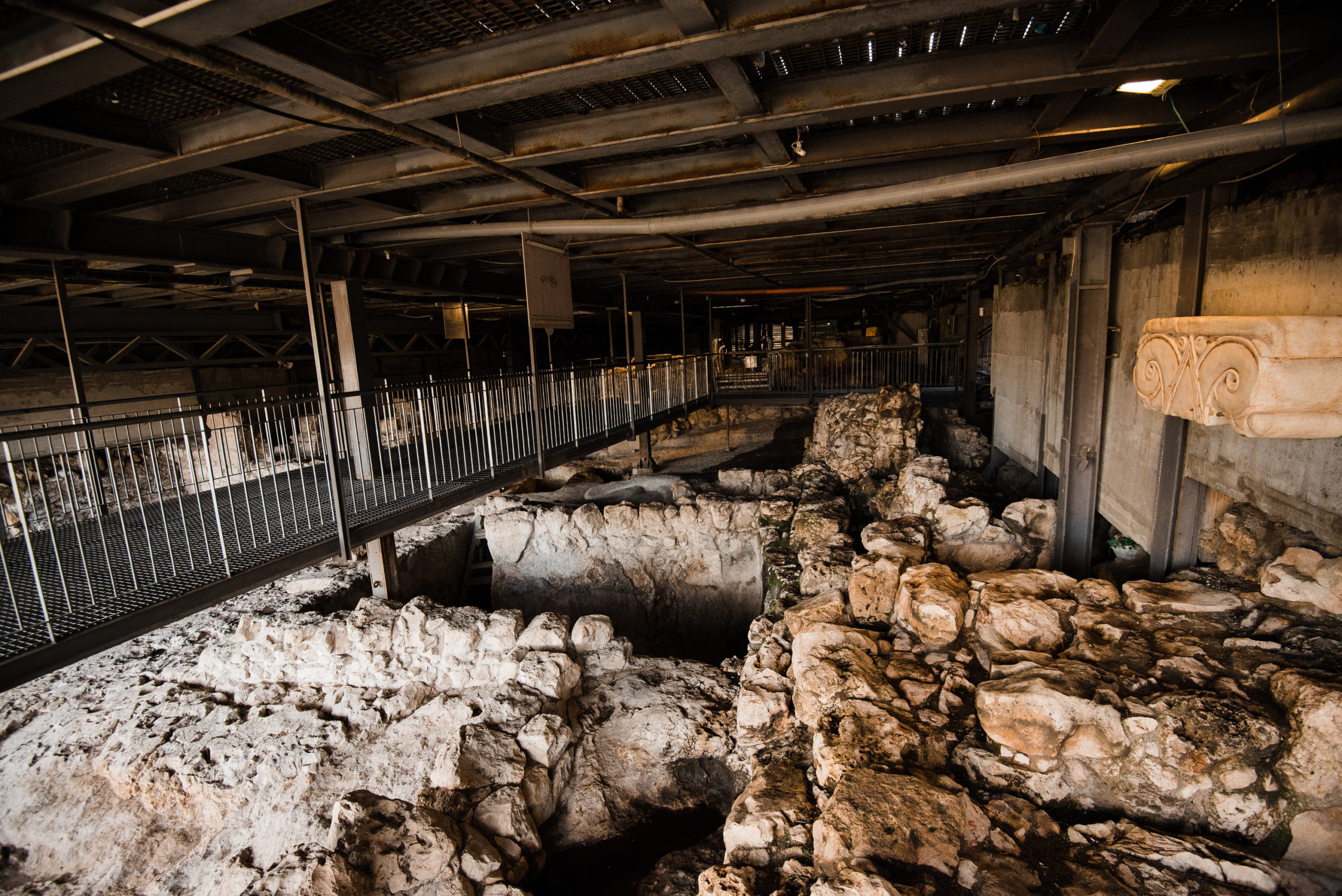
Ruins of King David’s palace
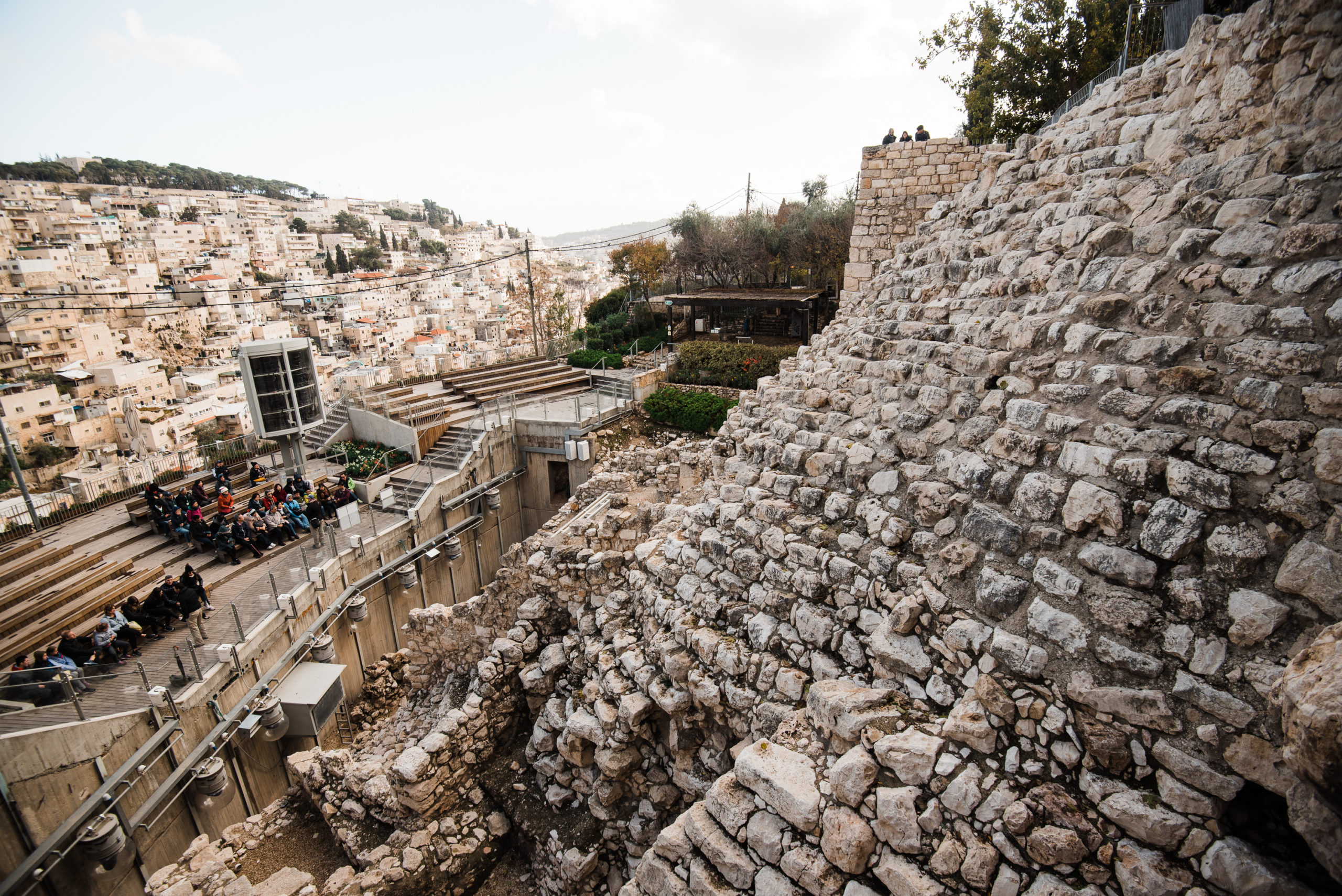
Ruins of the ancient city in the City of David
One of the coolest things about the City of David is the Siloam Tunnel also known as Hezekiah’s Tunnel, which is a water channel that was carved beneath the City of David. The tunnel still exists, and you can walk through it if you’re willing to get your feet wet!
The tunnel is pitch black and covered with water that ranges from ankle-deep to thigh-deep. It takes about 20-30 minutes to walk the length of the tunnel and it was such an amazing experience. There is also a shorter, dry option of Hezekiah’s Tunnel, but the wet option is way more fun.
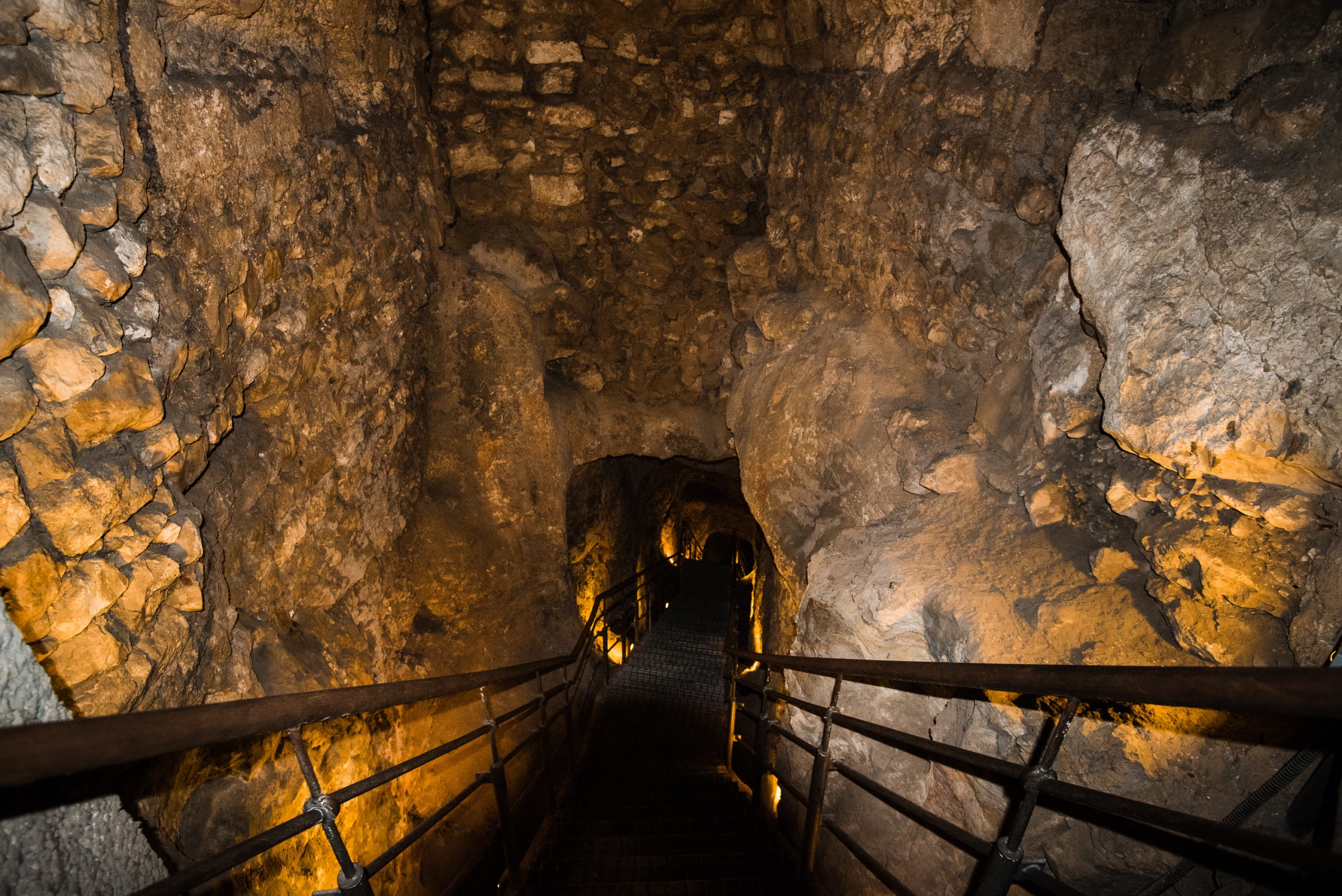
Steps descending into the Siloam Tunnel
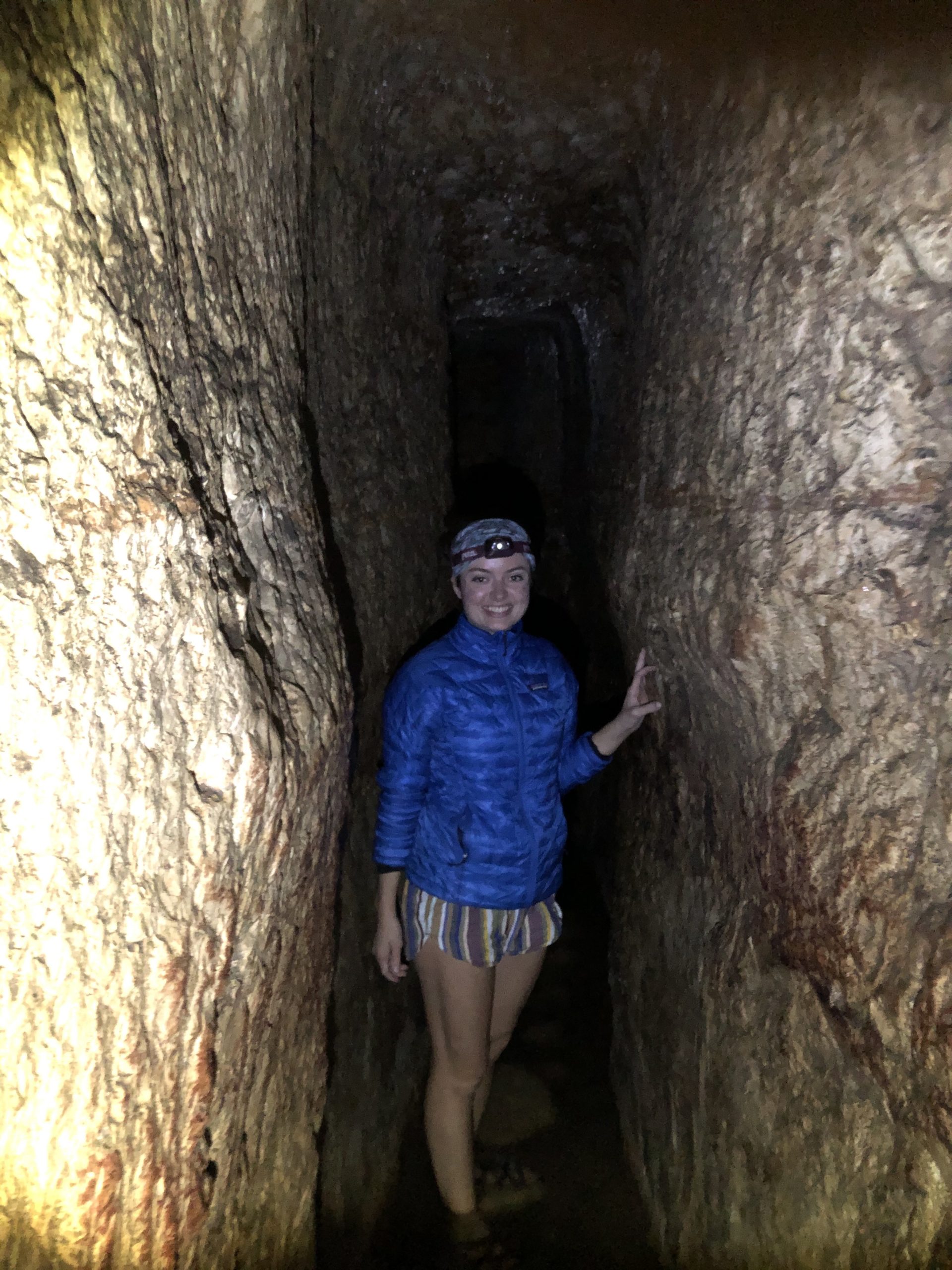
Walking through Hezekiah’s Tunnel
Day 5: Day Trip from Jerusalem: Masada National Park and the Dead Sea
Masada is only about an hour and a half drive from Jerusalem, making an easy day trip from the city. Located in the southern Judean Desert, Masada is a famous ancient fortress located on a large plateau overlooking the Dead Sea. Herod the Great built two palaces for himself on the plateau. Then, after Rome conquered Israel, the last of the rebels against Rome took refuge at Masada. The siege of Masada by Roman troops from 73 to 74 CE, at the end of the First Jewish–Roman War, ended in the mass suicide of the 960 rebels who were hiding there. Masada is an amazing site with so much history.
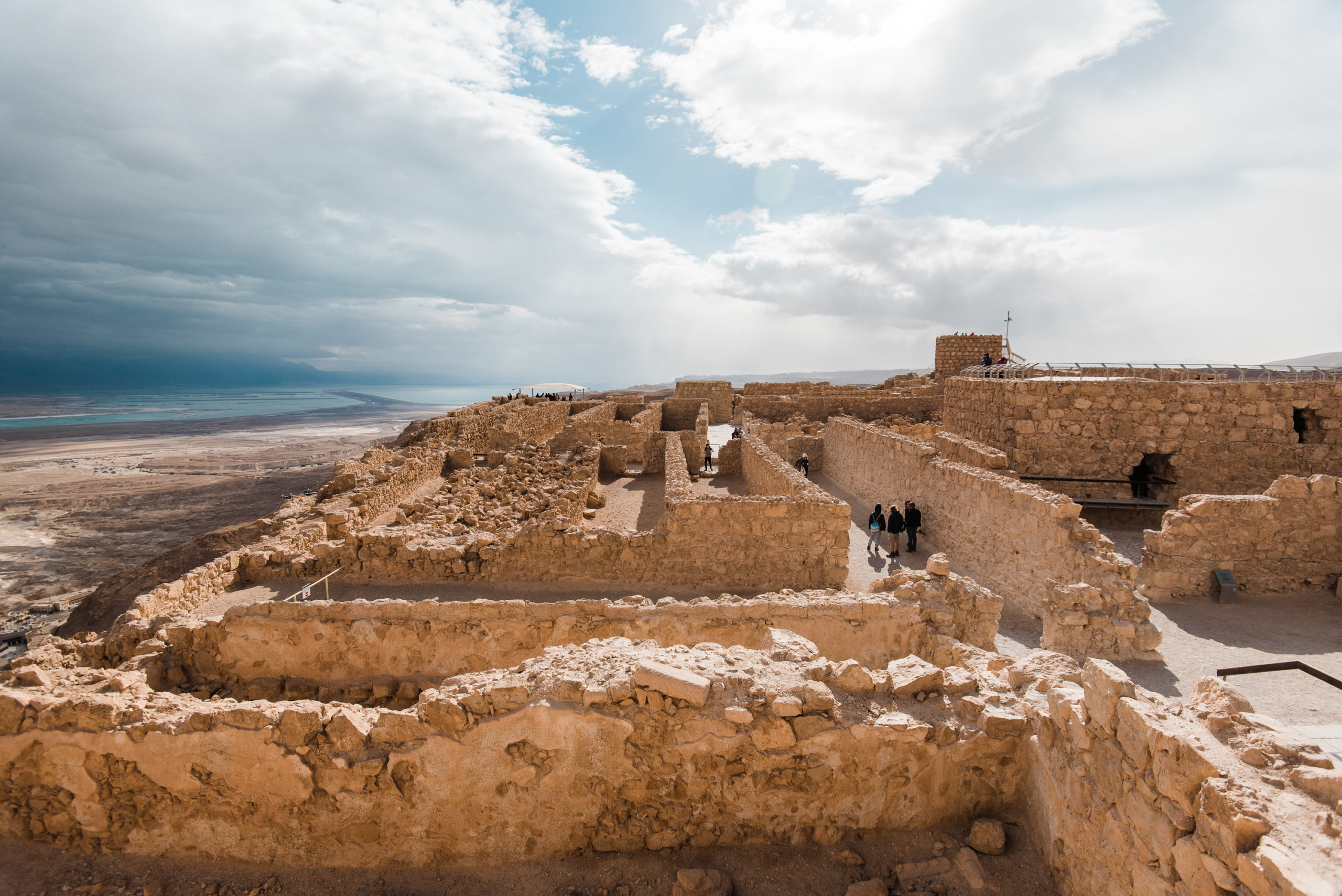
The ruins at Masada National Park
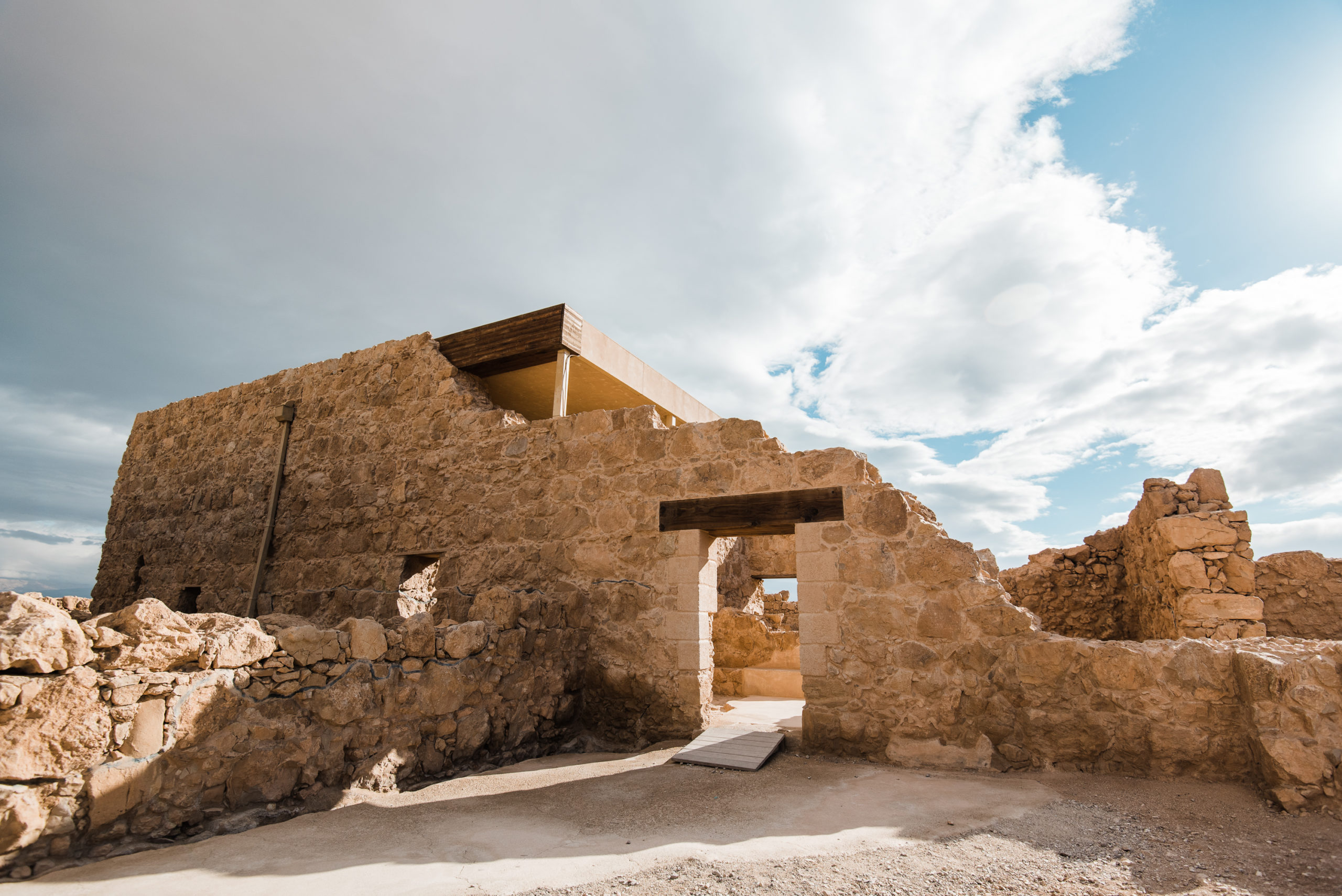
One of the palaces at Masada
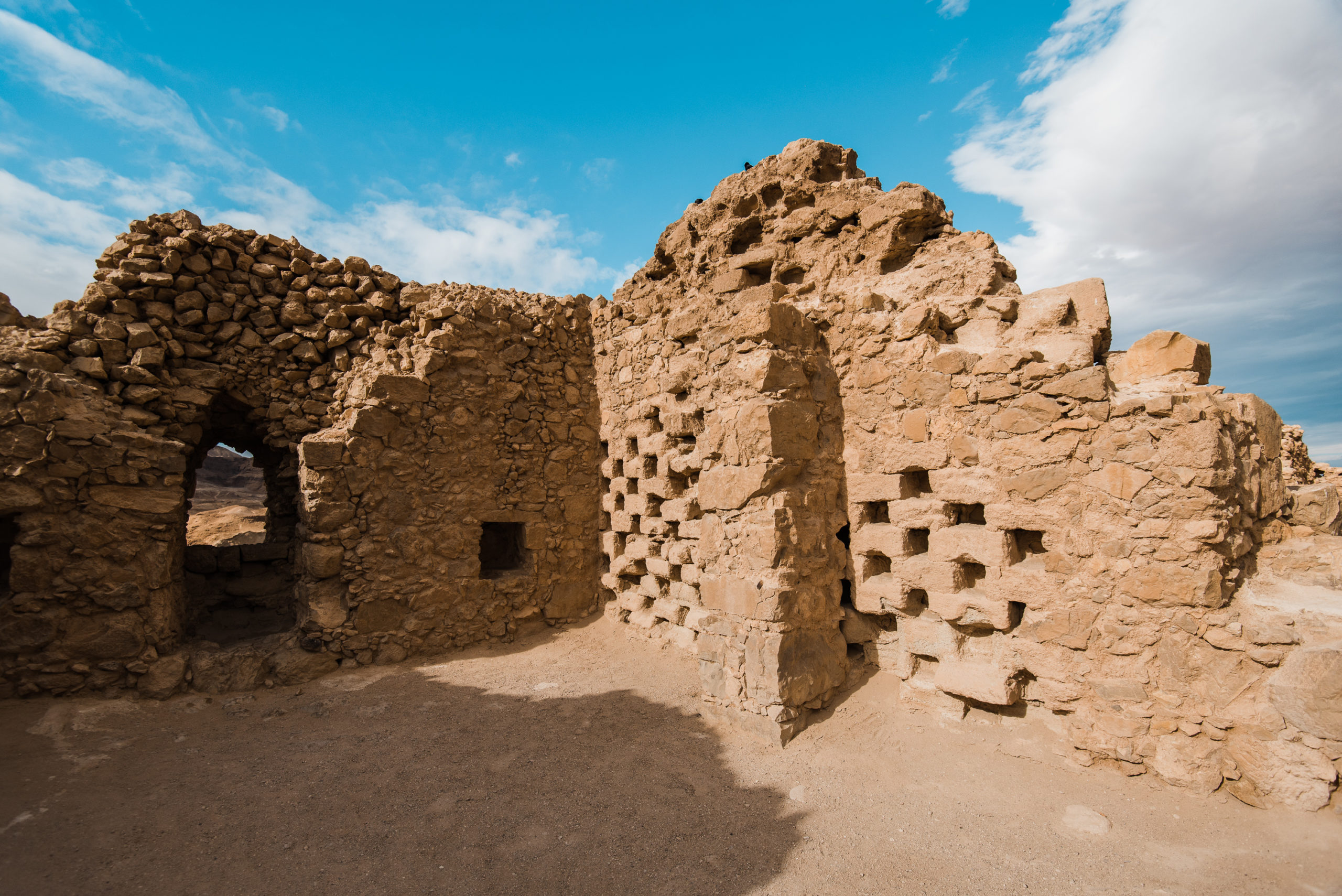
This structure was used to house pigeons! Each hole was home for a bird.
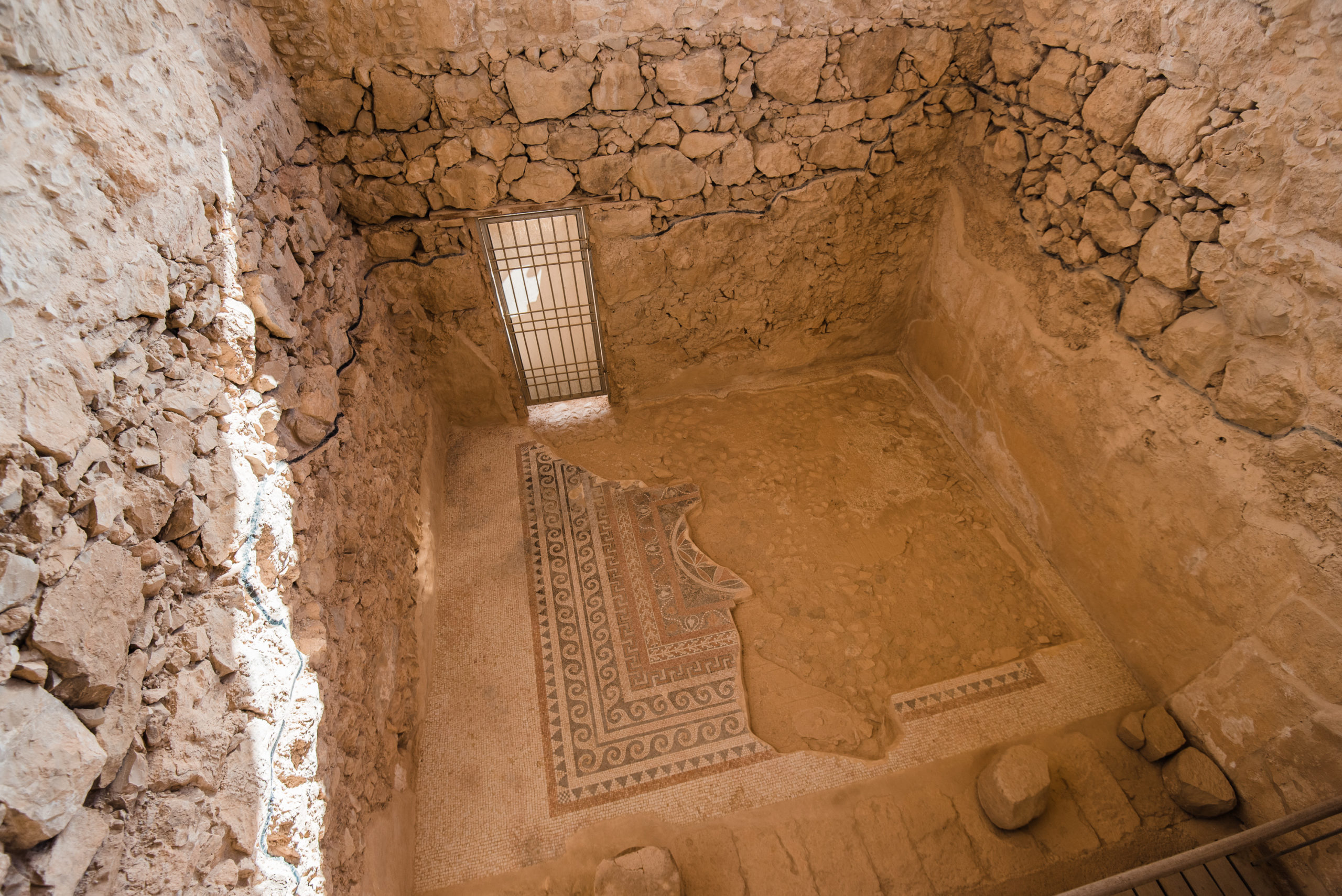
Ancient mosaics on the floor of one of the palaces
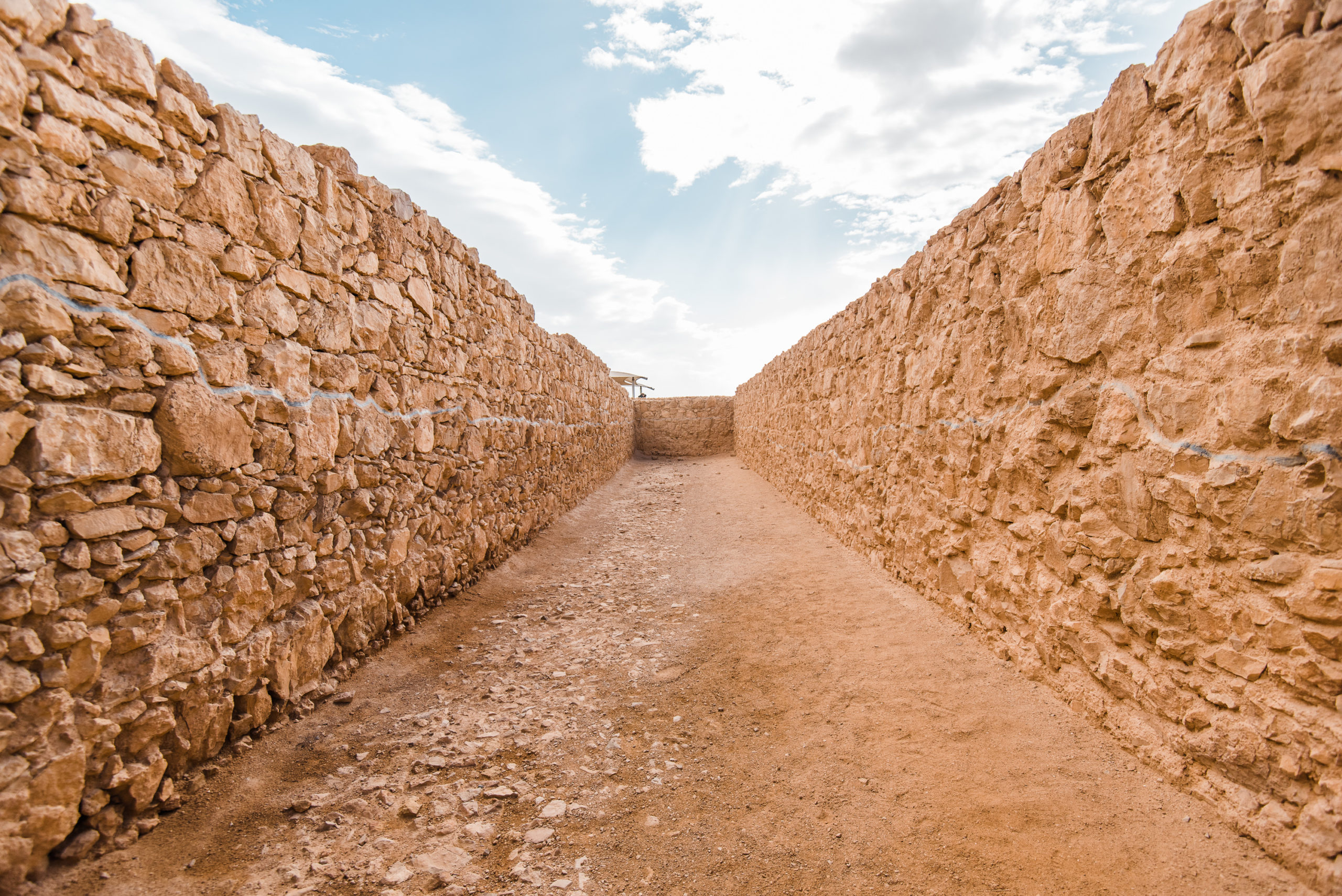
Storage units
You can easily drive to Masada, and then there are 2 ways to get up the massive plateau: hike of the Snake Path or take the cable car. We chose to take the cable car up and hike down. Good decision all around. There are great views from the path, but the trail is steep and it was much faster to take the cable car up.
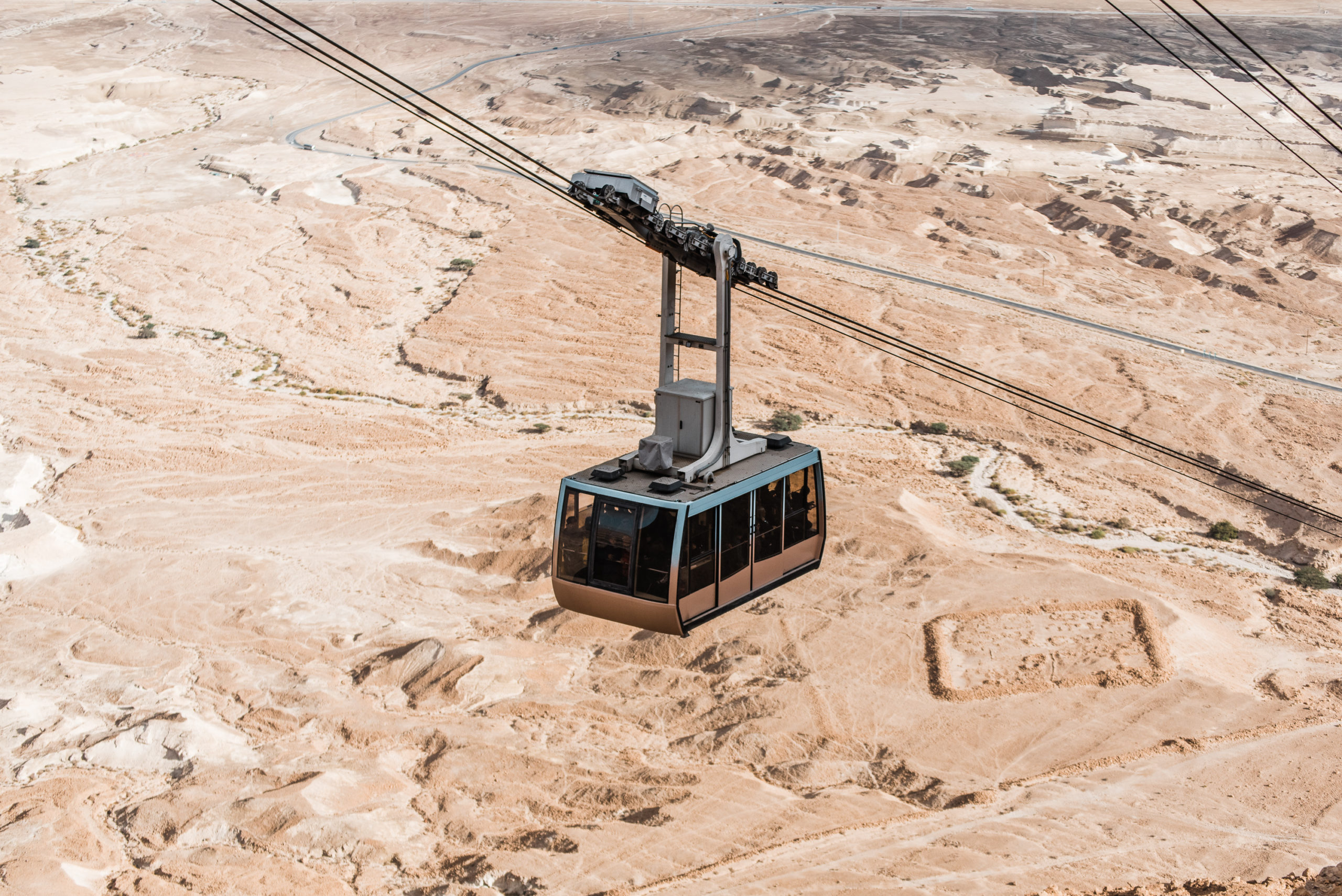
Cable car up to Masada
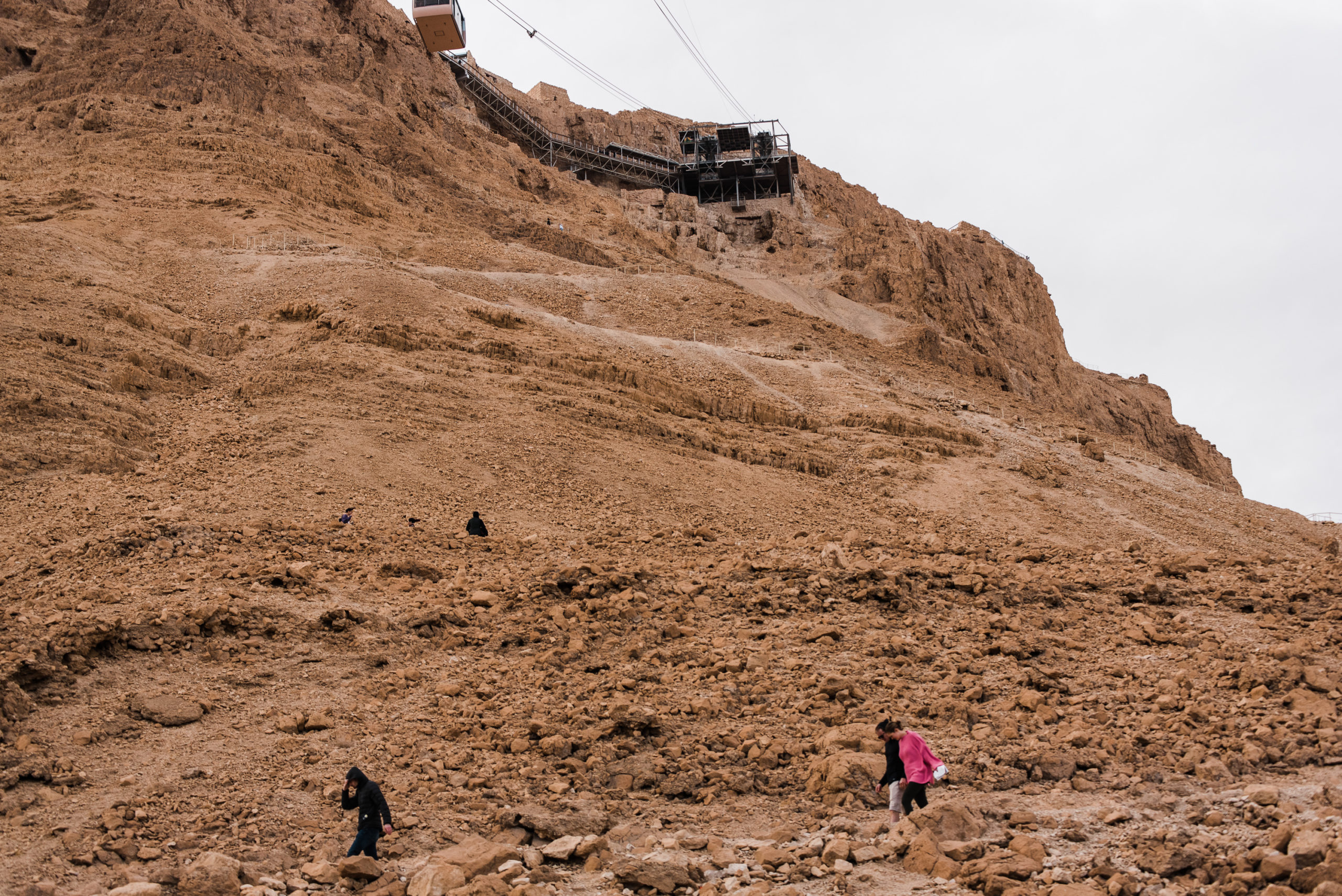
Snake Path up to Masada
Views from the Snake Path
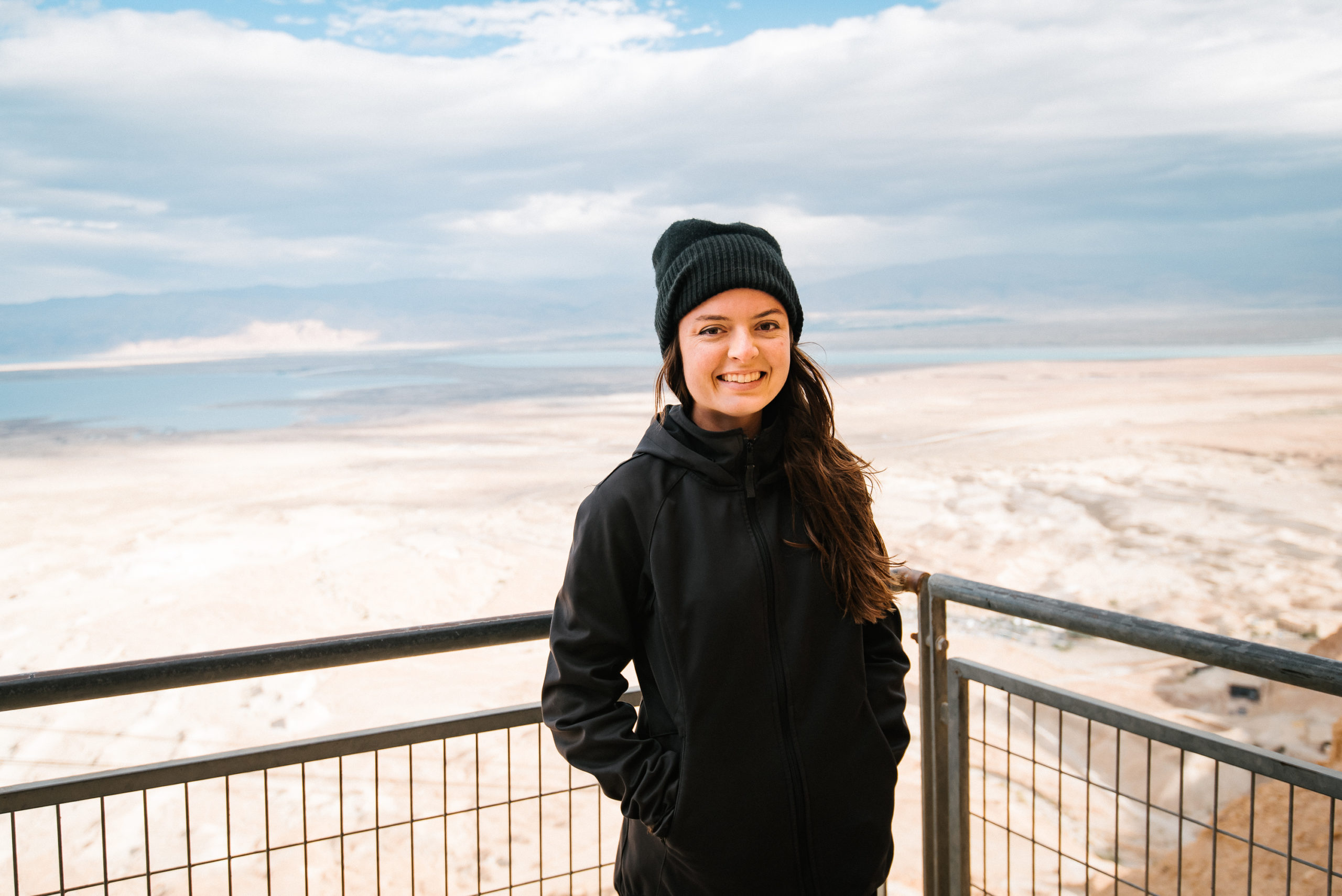
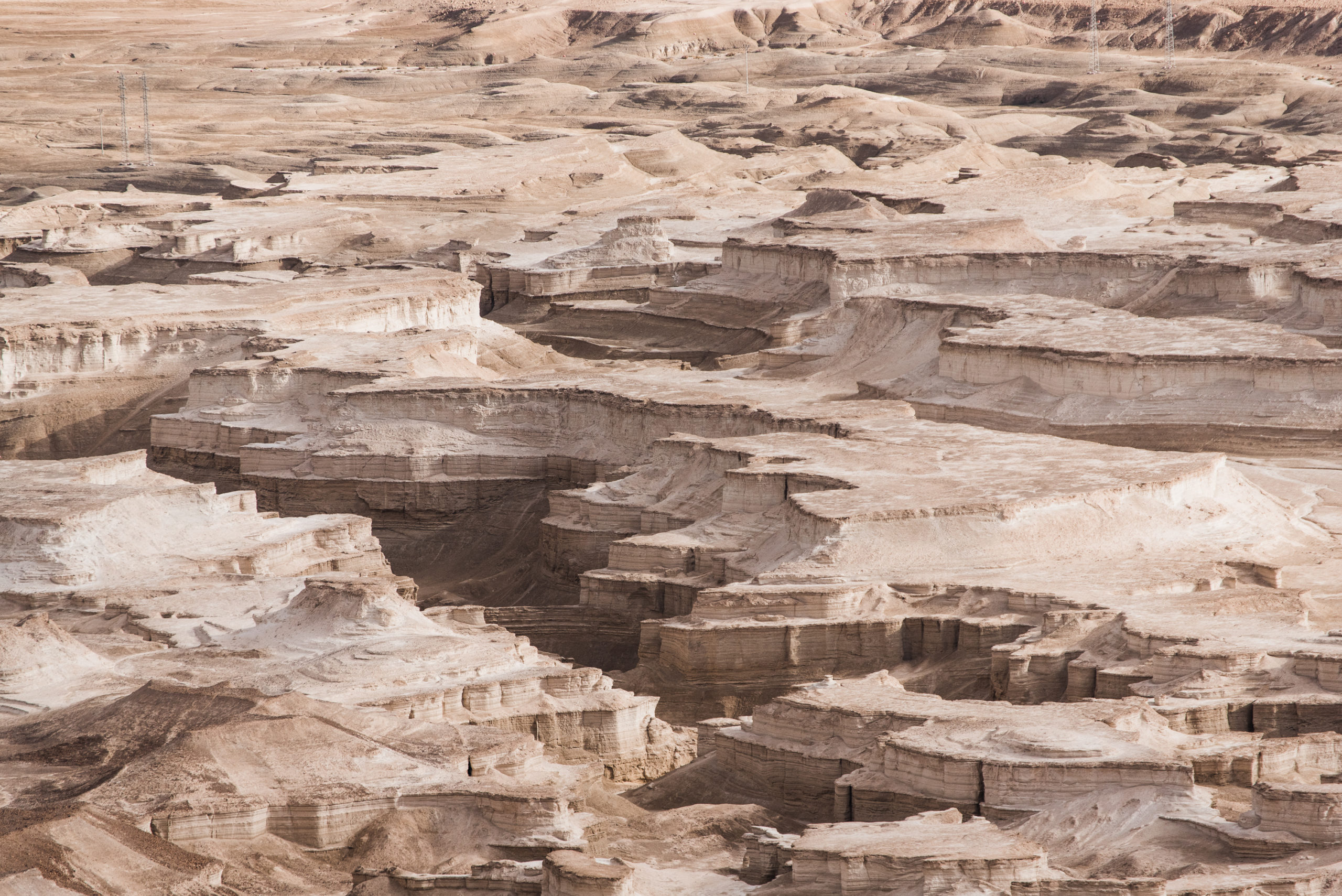
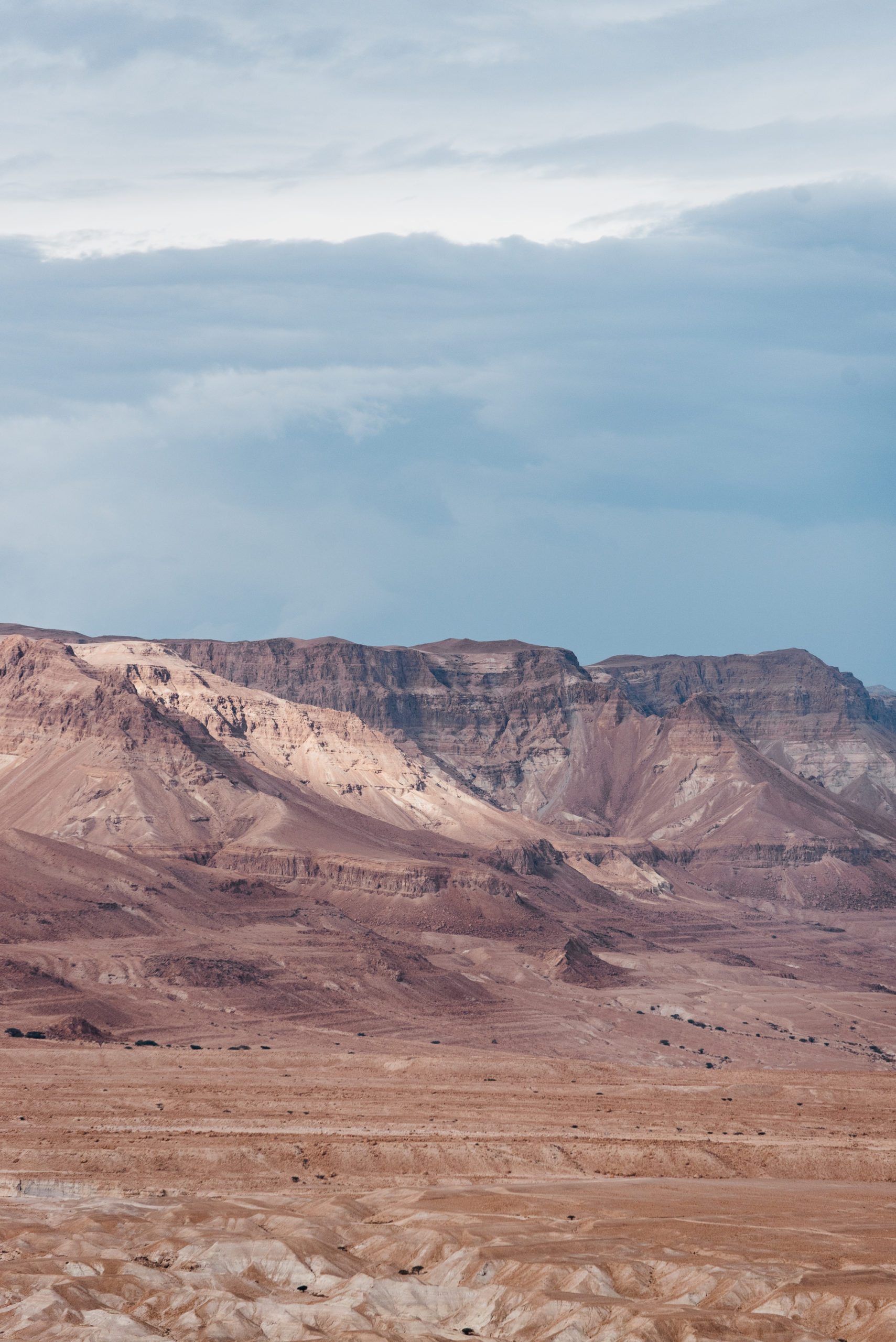
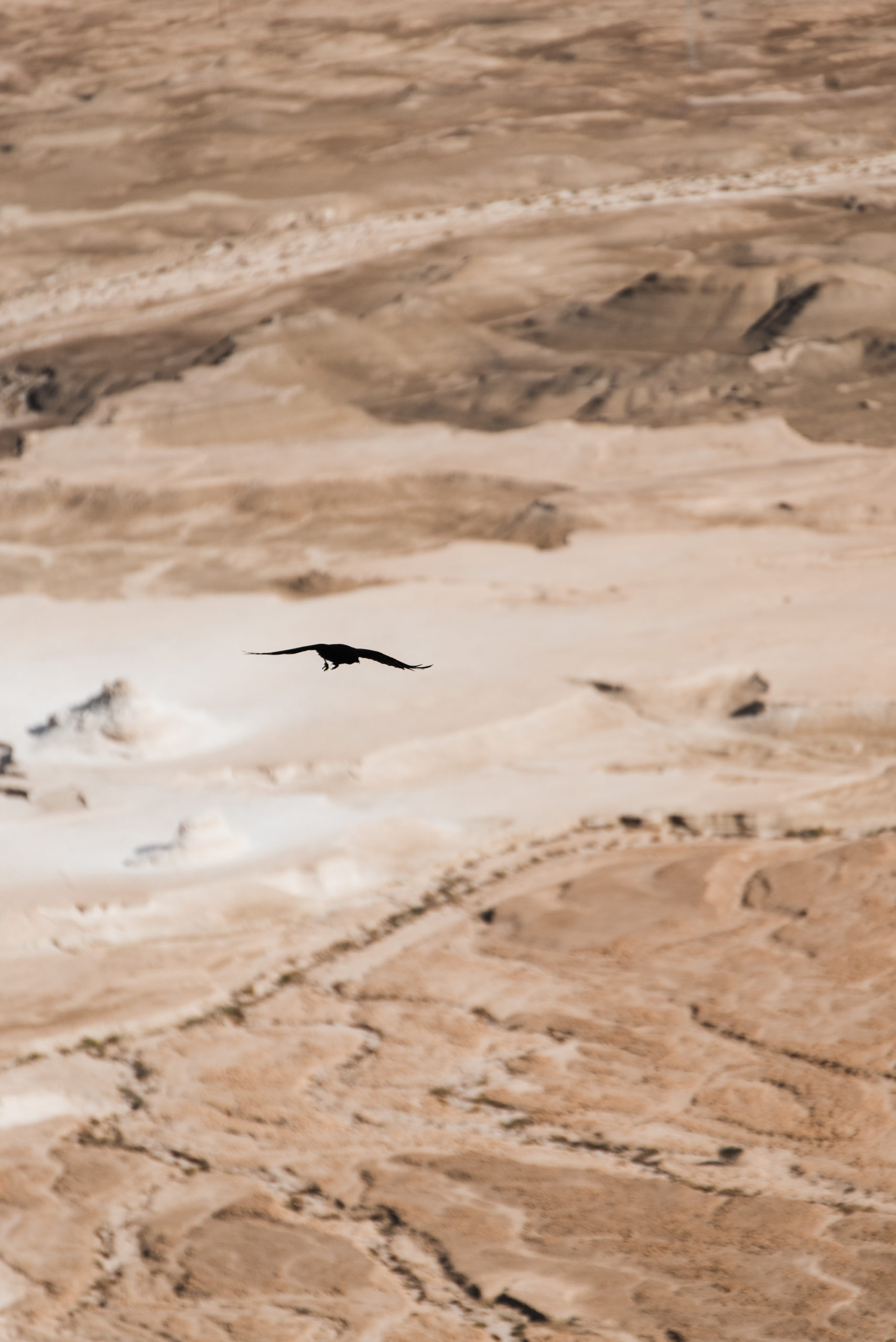
The Dead Sea
If you drive to Masada from Jerusalem, you will be driving right beside the Dead Sea for most of the journey. We stopped at Kalia Beach on our way back from Masada to take a swim in the Dead Sea. In this area, there really aren’t many places to just pull over on the side of the road to swim in the Dead Sea, so we opted to stop at a designated beach. Plus, if you go to an actual beach, there are usually showers. The beaches can be a bit expensive, but it was worth it to have the experience of swimming in the Dead Sea!

Swimming in the Dead Sea
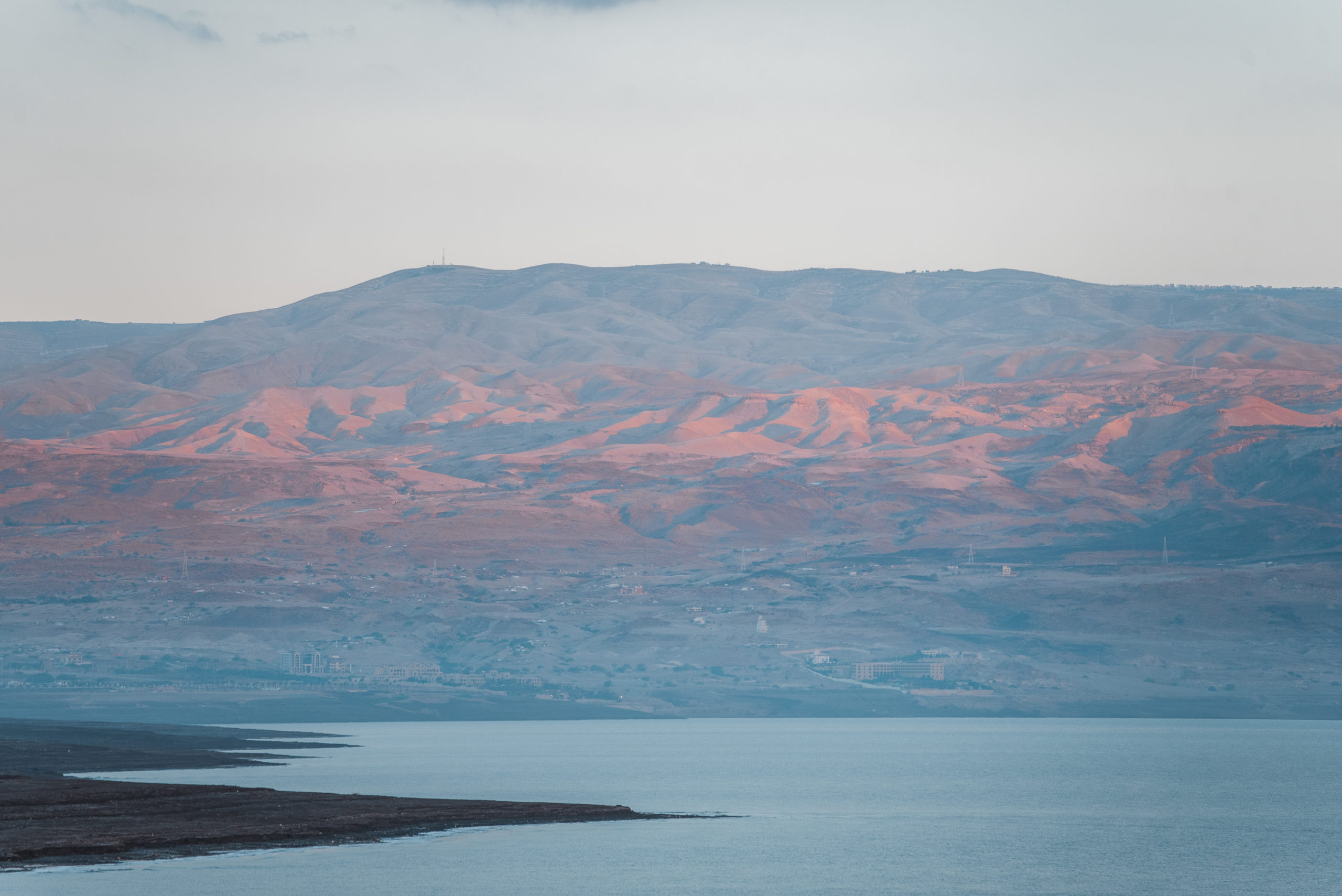
The Dead Sea at sunset at Kalia Beach
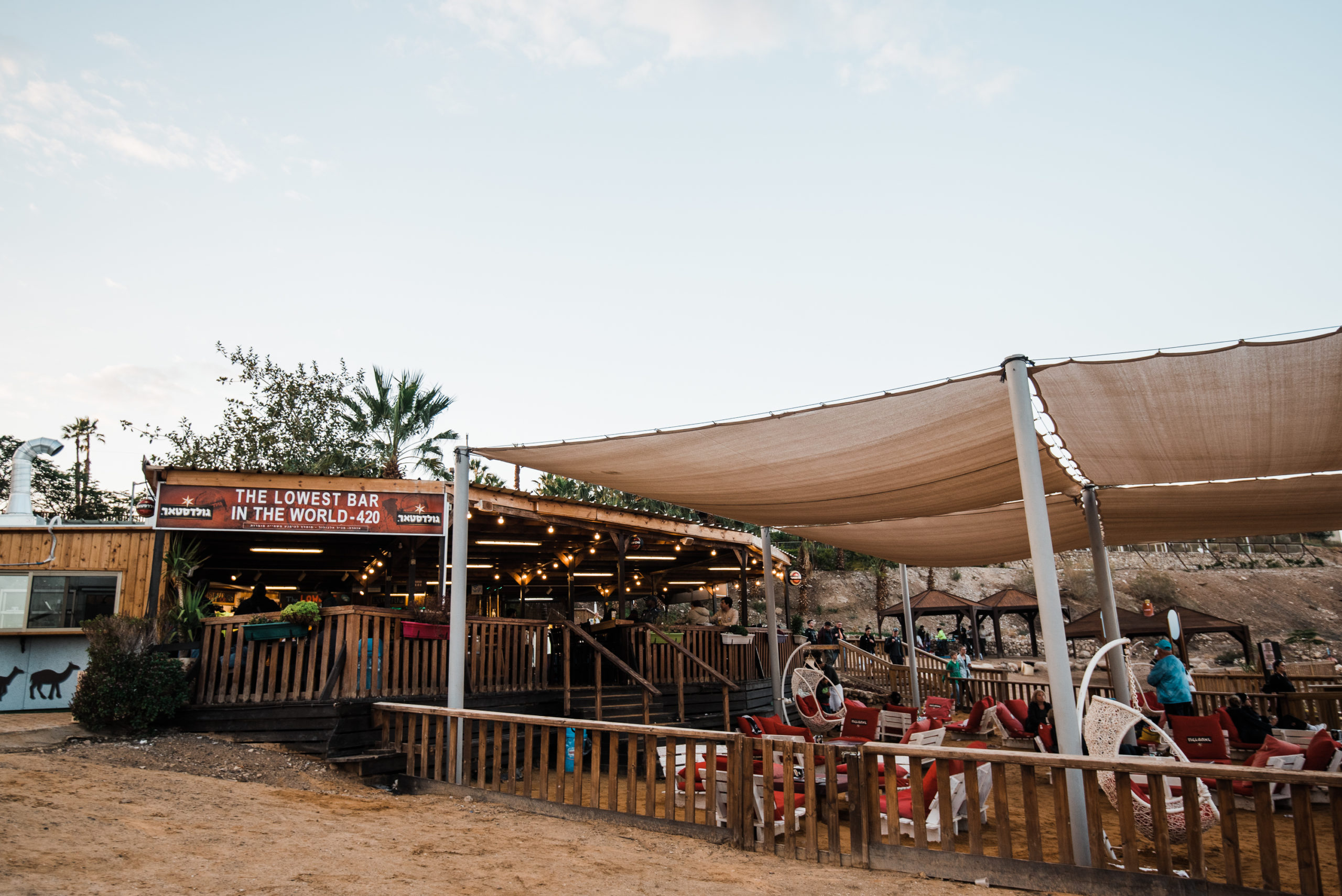
Kalia Beach
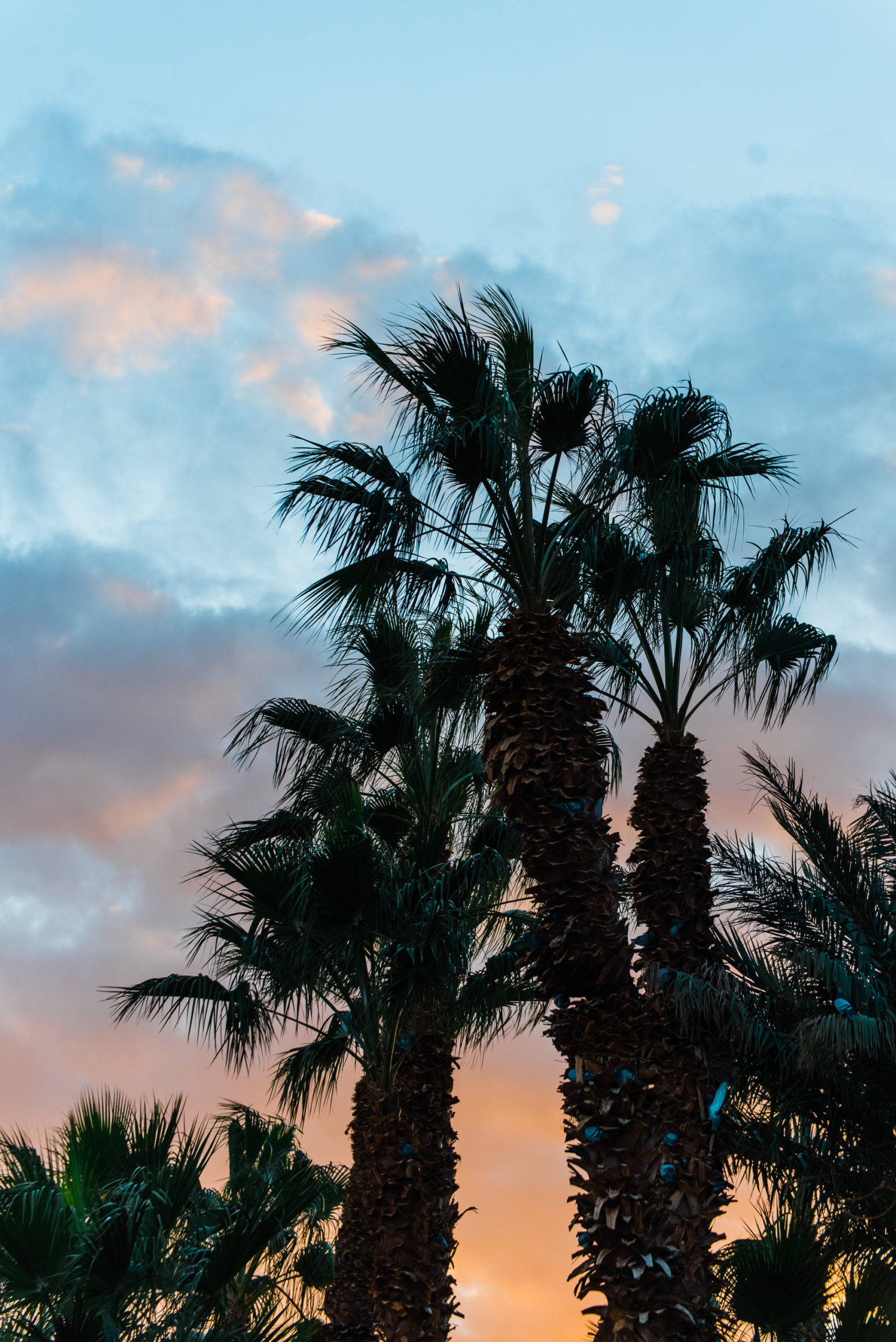
Sunset at Kalia Beach on the Dead Sea
Day 6: Qumran National Park, En Gedi National Park and Driving to Galilee Region
We could have planned this day a little better. It’s possible to do Masada, En Gedi National Park, AND swim in the Dead Sea all in one day. However, we didn’t feel like rushing, so we ended up doing En Gedi the same day we drove to the Galilee region, which doesn’t make much sense because En Gedi is south of Jerusalem and Galilee is north. We made it work though!
Qumran National Park is an easy 4o minute drive east of Jerusalem. It’s on the way to Masada and En Gedi National Park, so if you are visiting either one, plan to stop at Qumran on the way. This park was a bit of a spontaneous visit for us, but we are so glad we went!
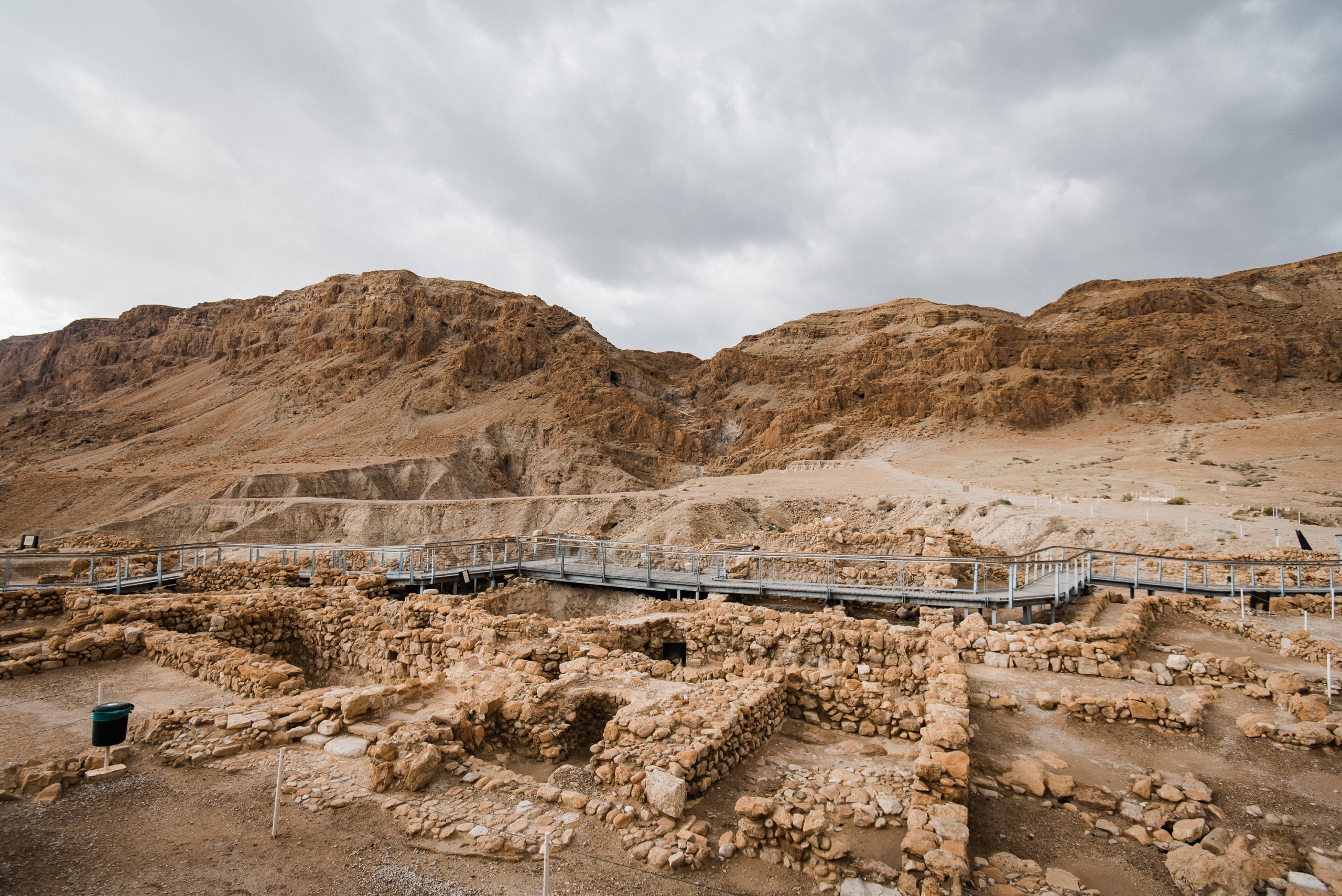
Ruins of Qumran
Qumran was established during the time period of 134-104BC. Archaeologists excavated multi-level structures, ritual baths, kilns and houses in the area. A community of people called the Essenes Jewish sect settled here, and from information found in the Dead Sea Scrolls scholars have managed to get a clear picture of the community’s way of life and beliefs. (Info from Tourist Israel).
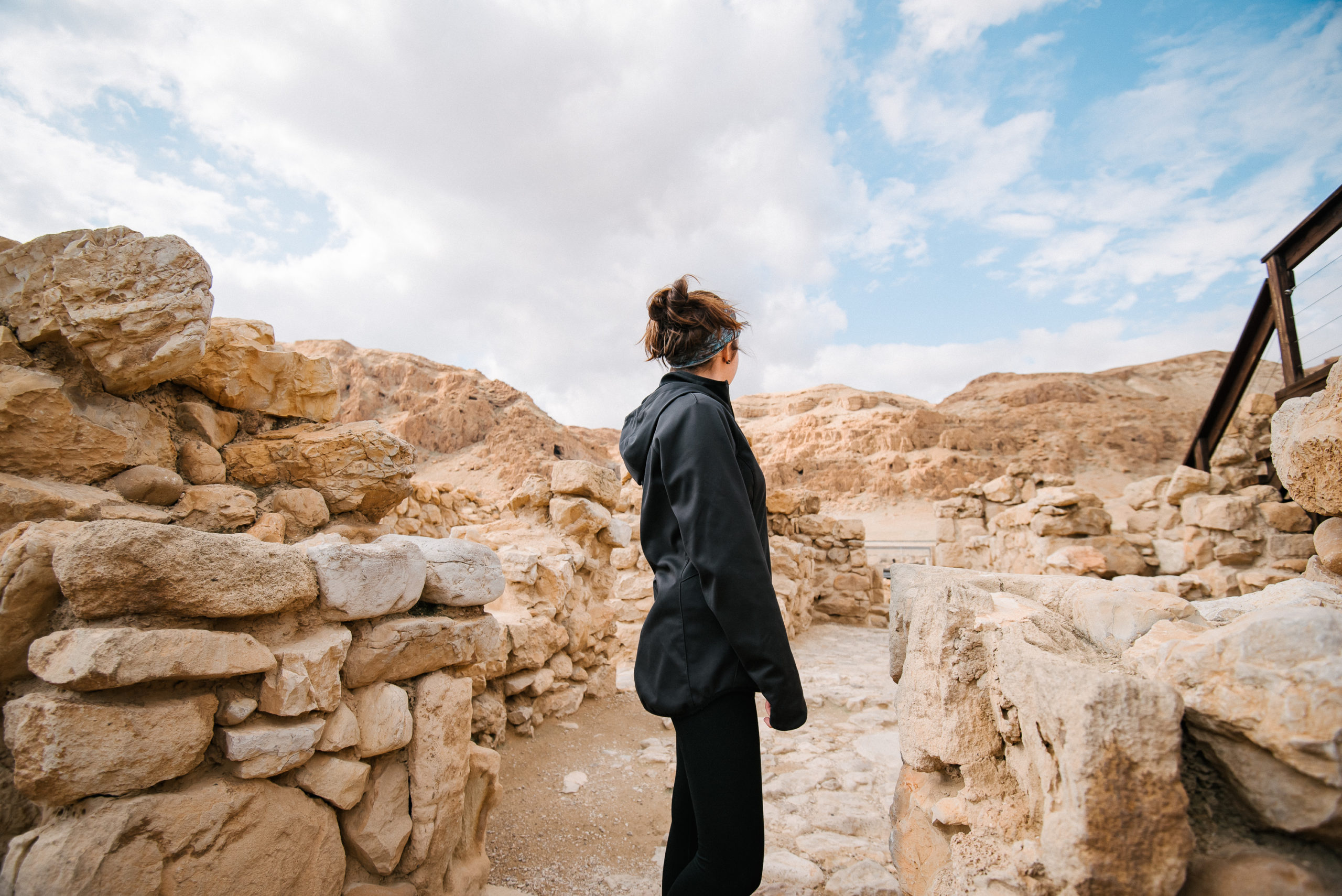
Walking through the ruins of Quaran National Park
Qumran National Park is known for being the settlement nearest to the Qumran Caves where the Dead Sea Scrolls were discovered. In 1947, local Bedouins (nomadic people) discovered a clay jar containing 7 scrolls in a cave about 1.5km from Qumran. Further exploration of the area uncovered a total of 972 texts, which included the oldest known existing copy of the Old Testament.
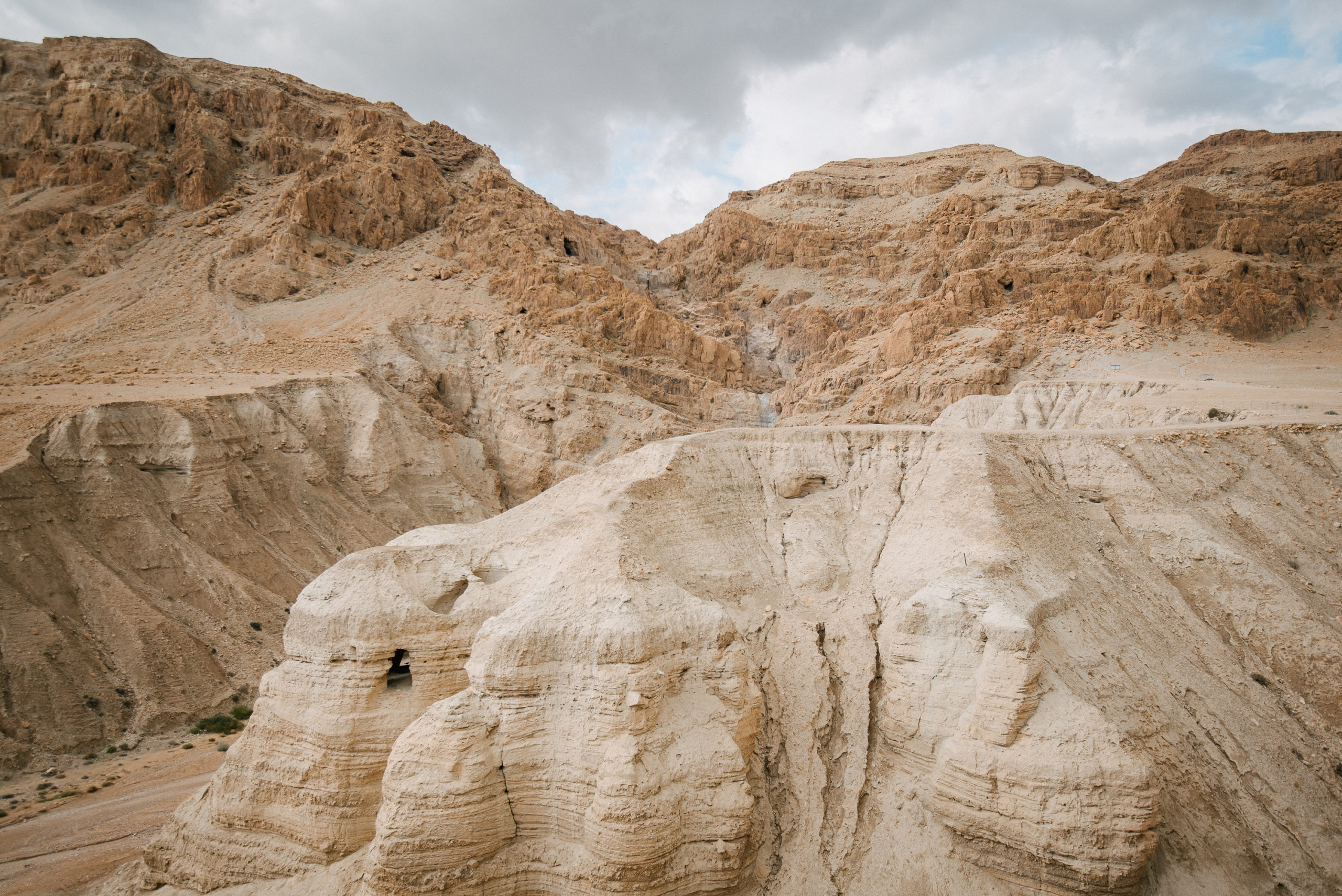
Caves at Qumran National Park
En Gedi is the biggest oasis in Israel with hiking trails, springs and waterfalls. The park was our main destination for the day, and it definitely worth visiting! You could spend a whole day hiking here, but we just did the David Waterfall Trail, which takes about an hour.The David Waterfall goes through the Wadi David (valley) and trail loops from the ticket office, to the waterfall, and back. You’ll see waterfalls, springs, epic desert views, and maybe even some wildlife!
NOTE: Entrance to En Gedi National Park ends one hour before the actual closing time. Plus, certain trails will start to close even earlier. Make sure you plan to arrive with plenty of time until the listed closing time!
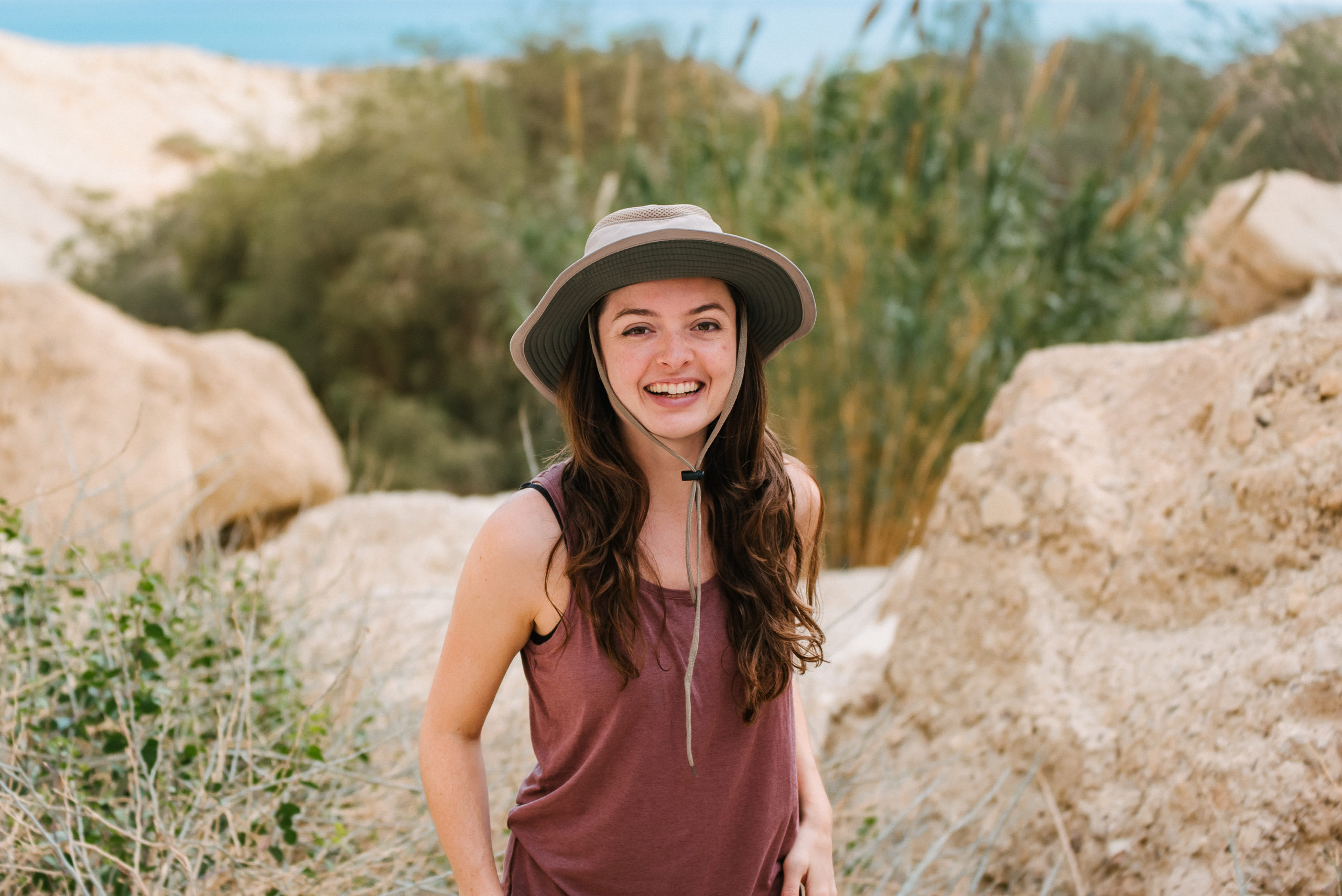
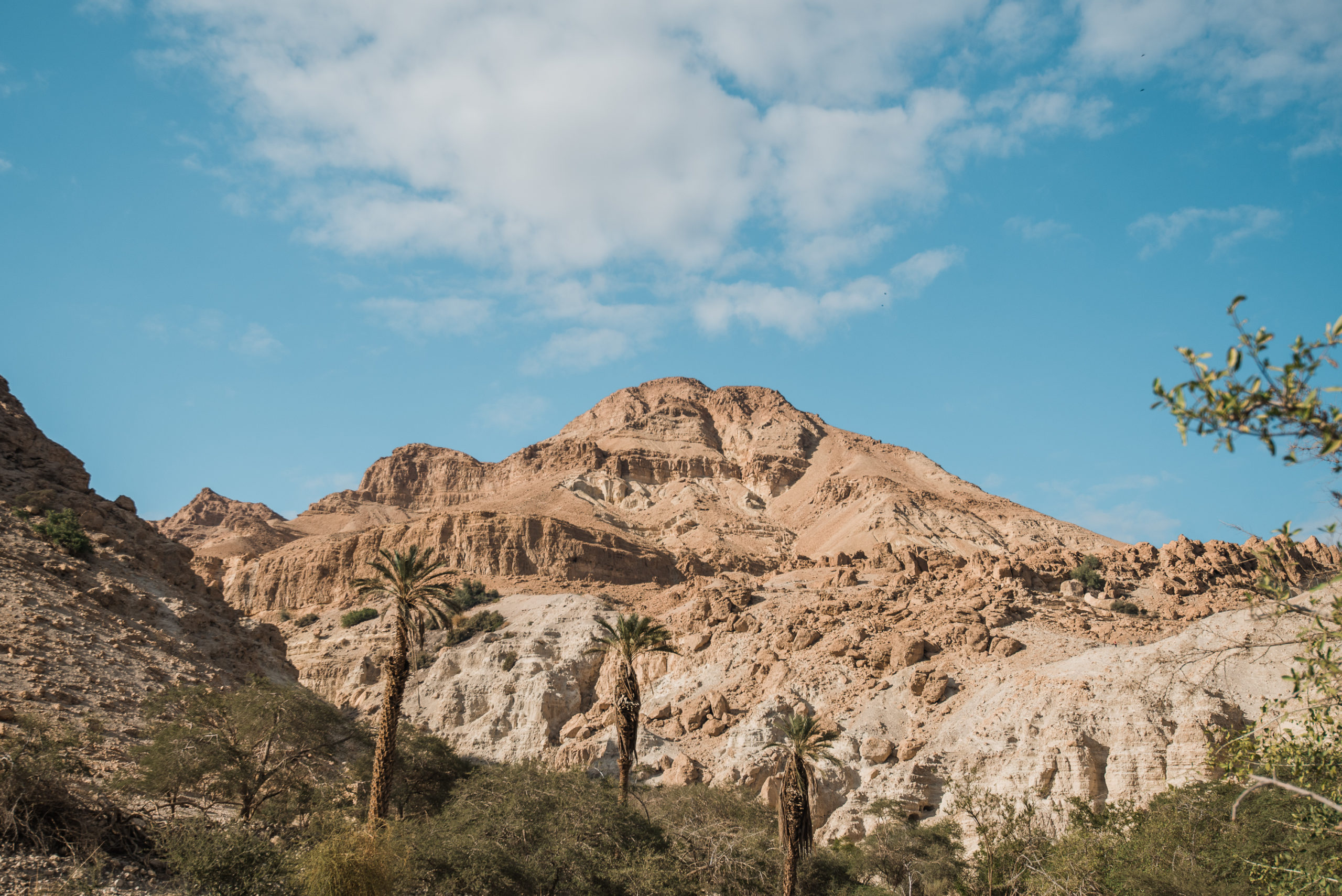
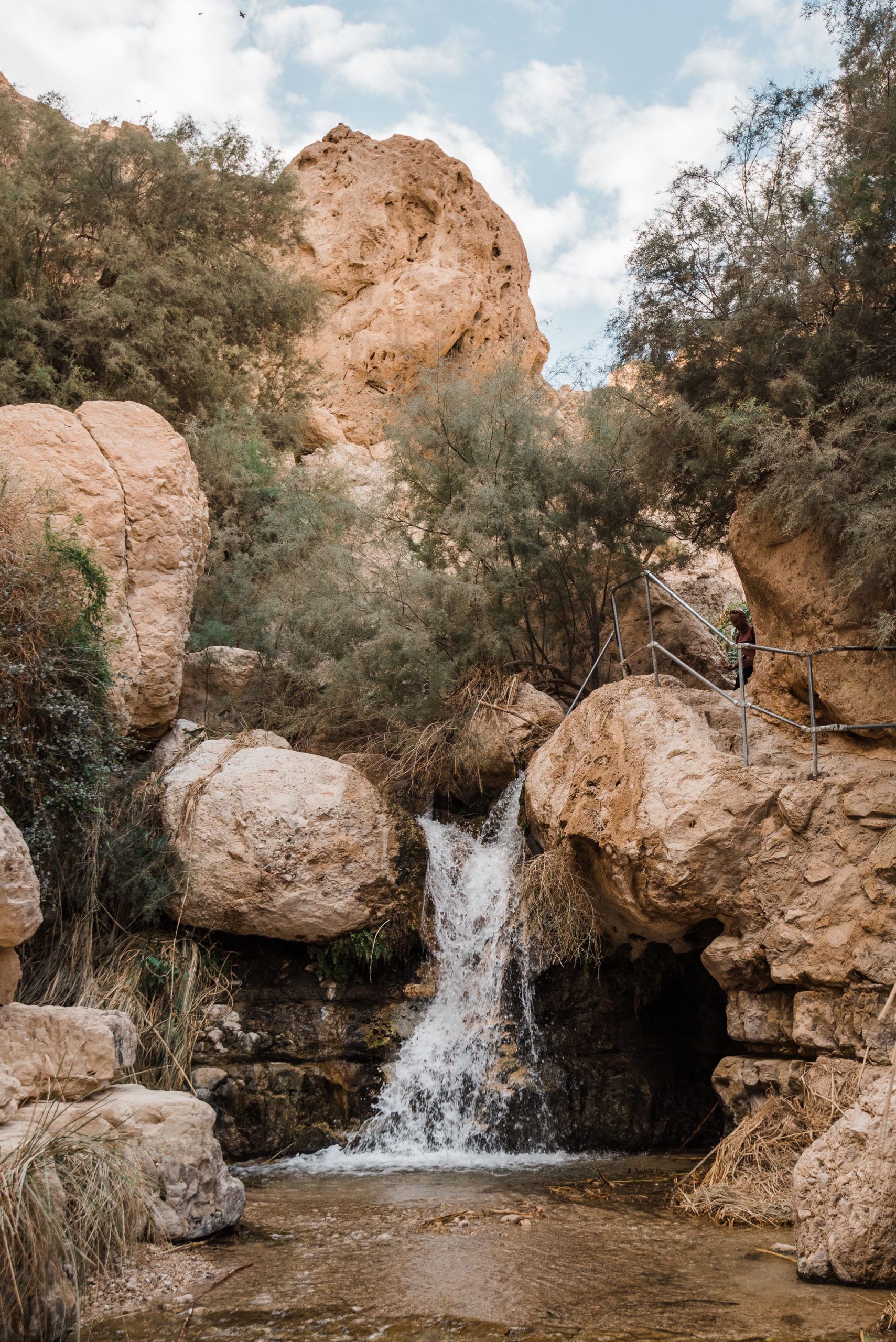
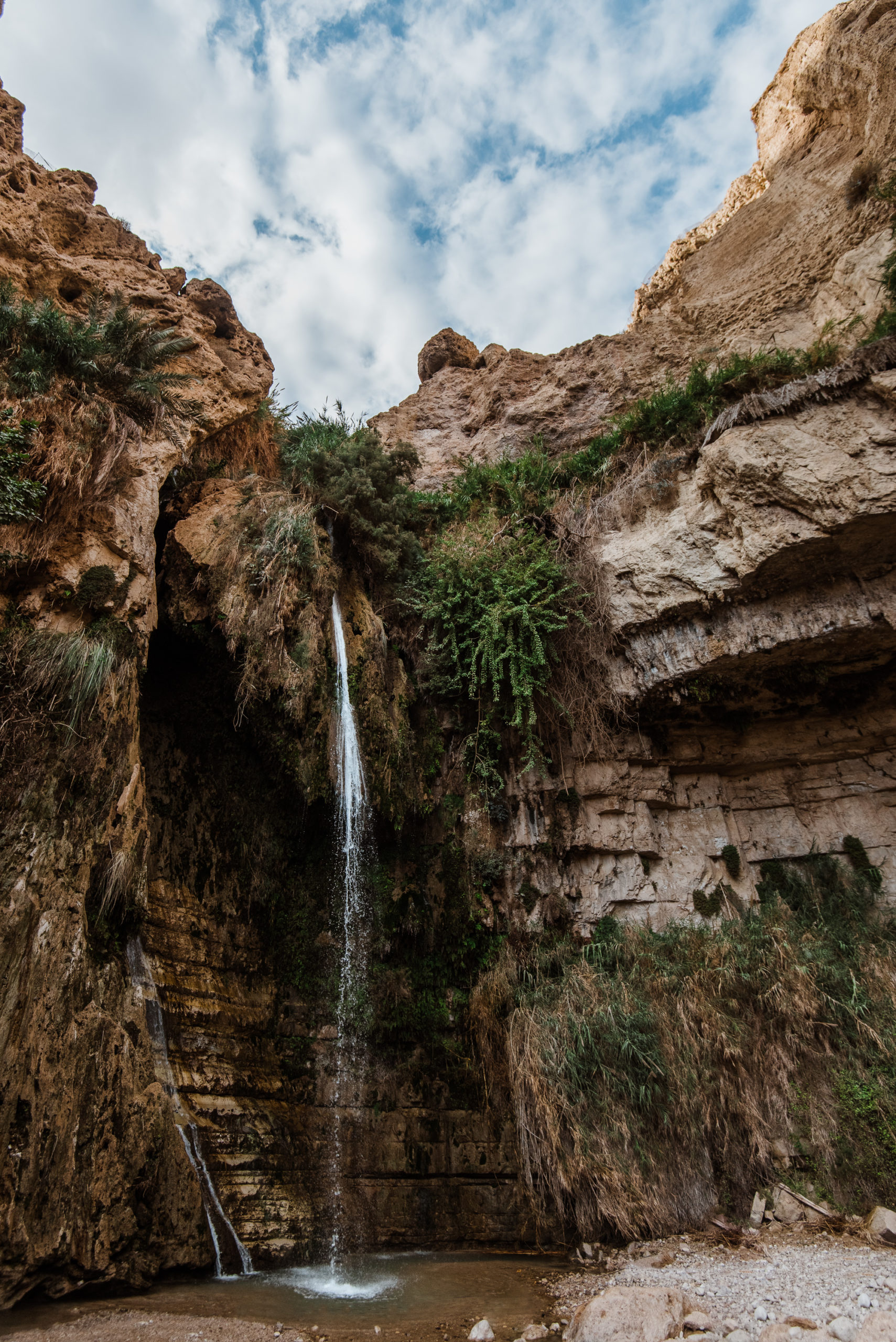
David Waterfall in En Gedi National Park
We also saw wild ibex and rock hyraxes.
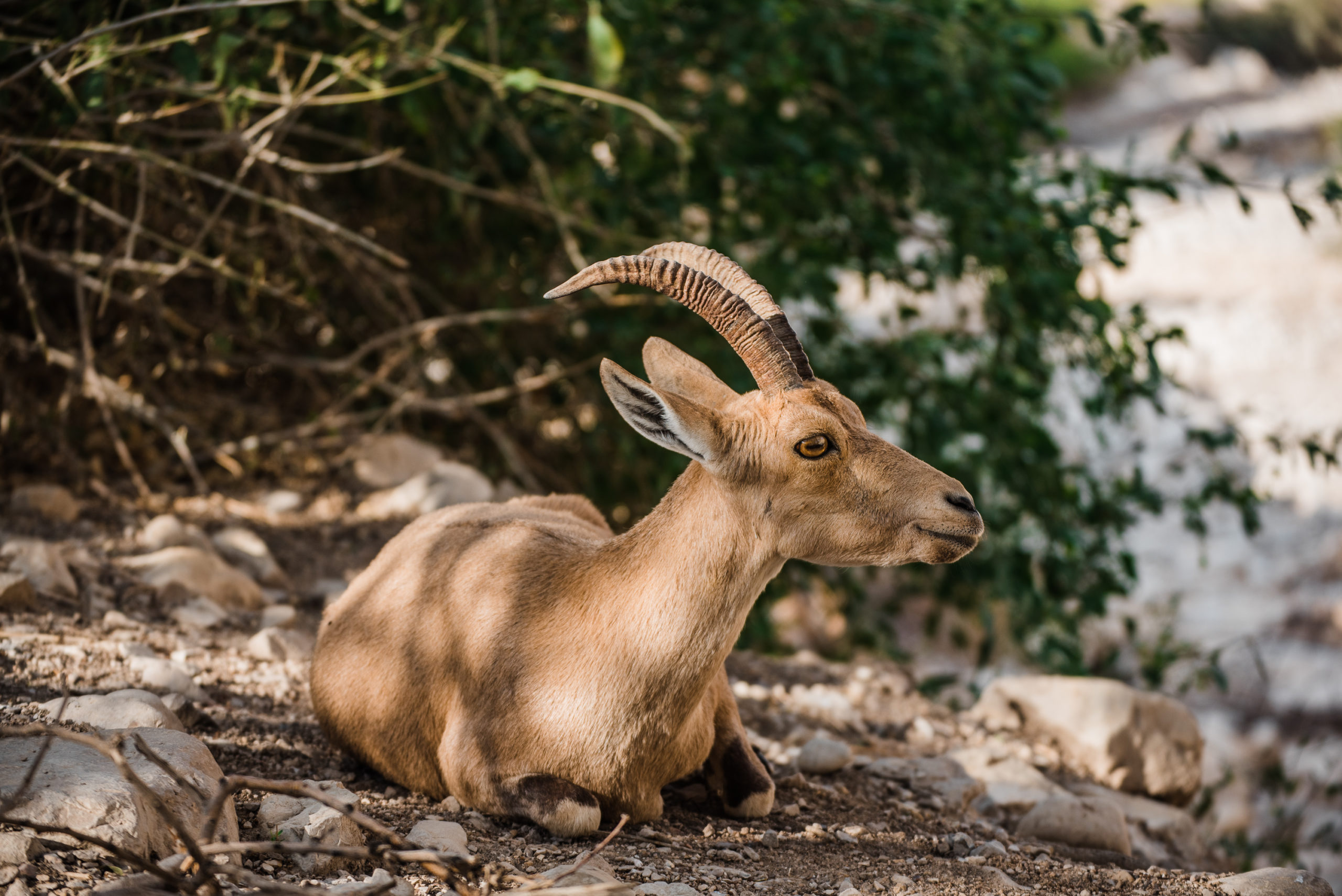
Ibex at En Gedi National Park
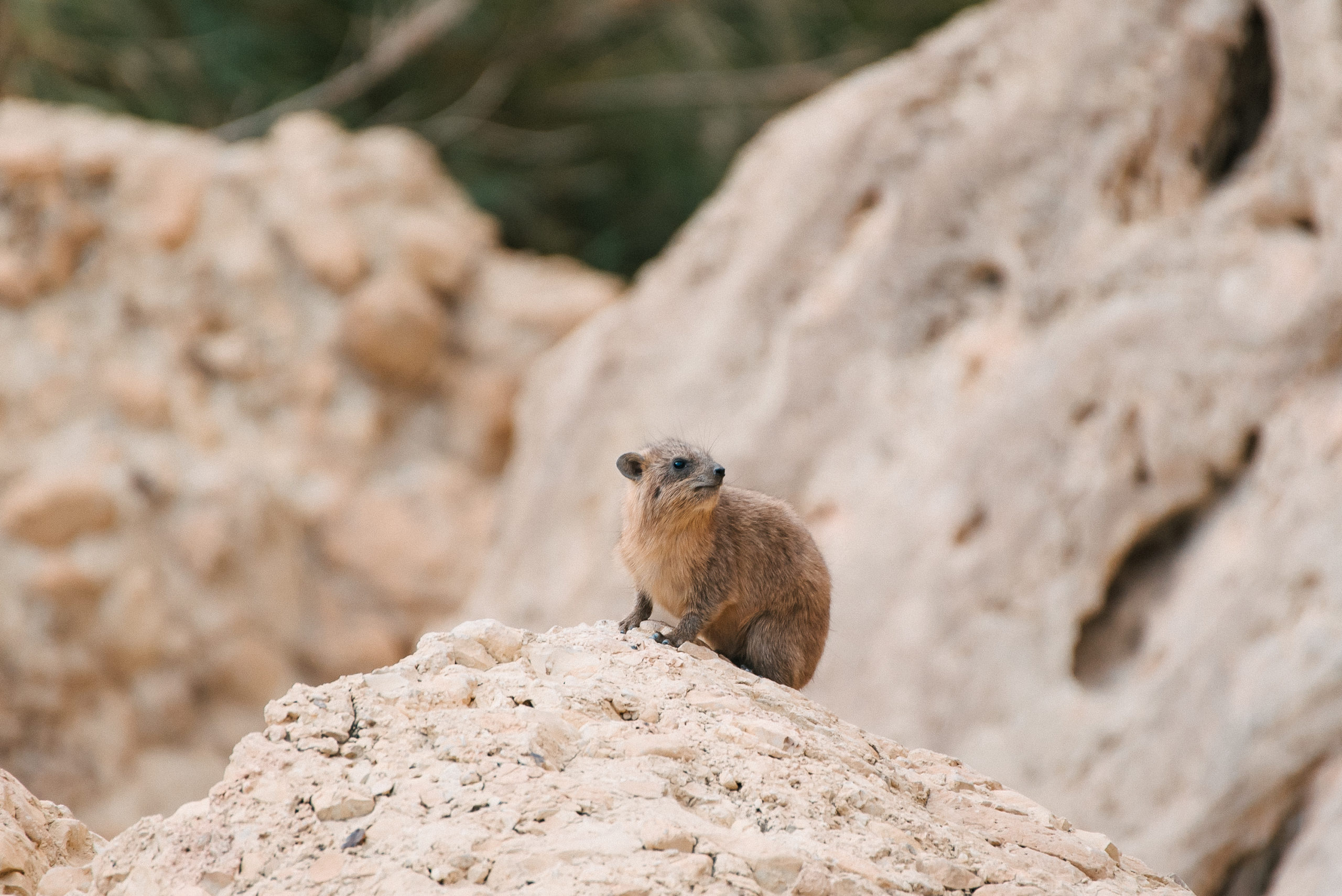
Rock hyrax at En Gedi National Park
If you have a little time after hiking in En Gedi, take a short walk to the ancient synagogue, which is about a 15-minute walk from the En Gedi parking lot. Your entrance ticket to En Gedi should also get you into the synagogue. The mosaic floor of the synagogue is impressive.
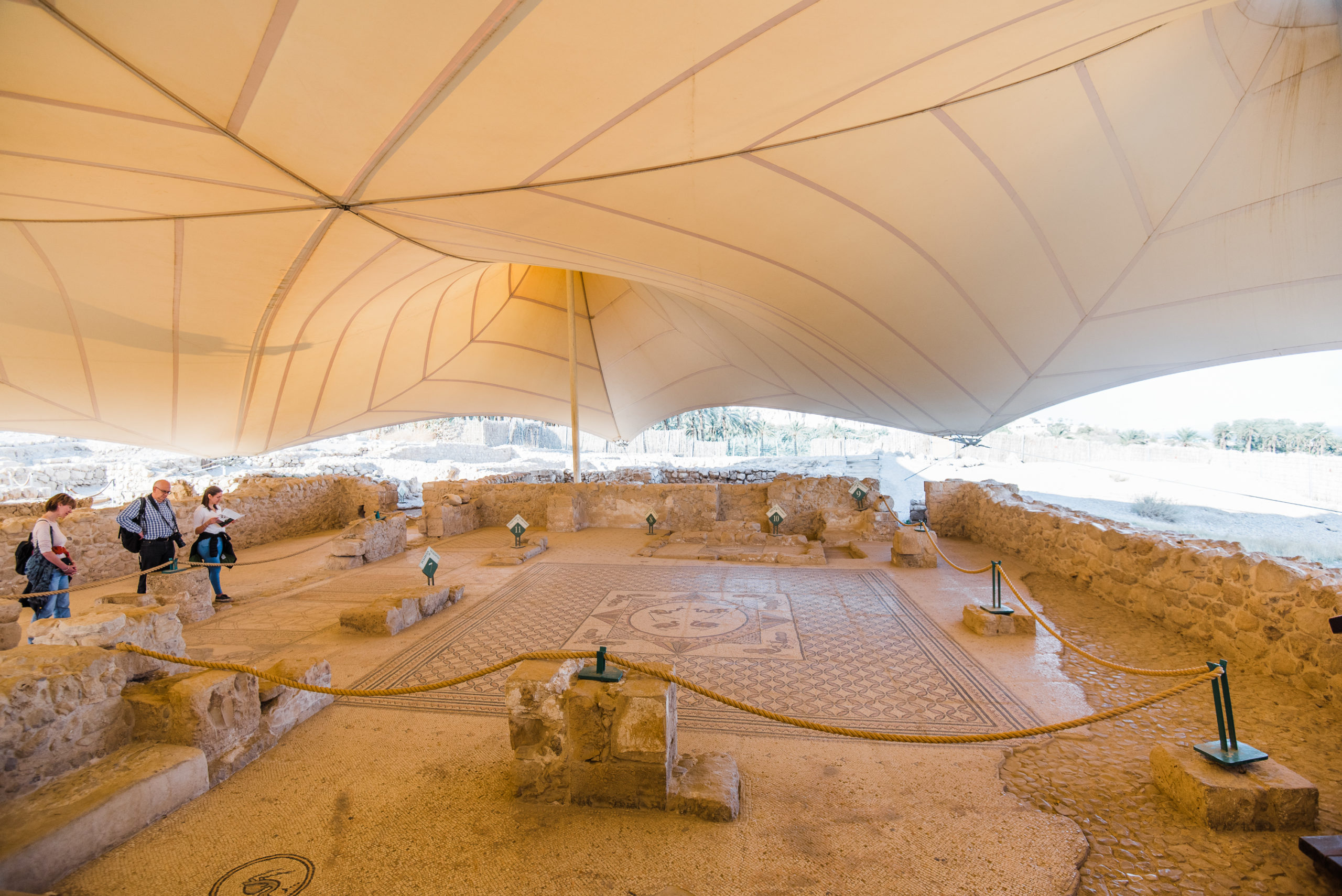
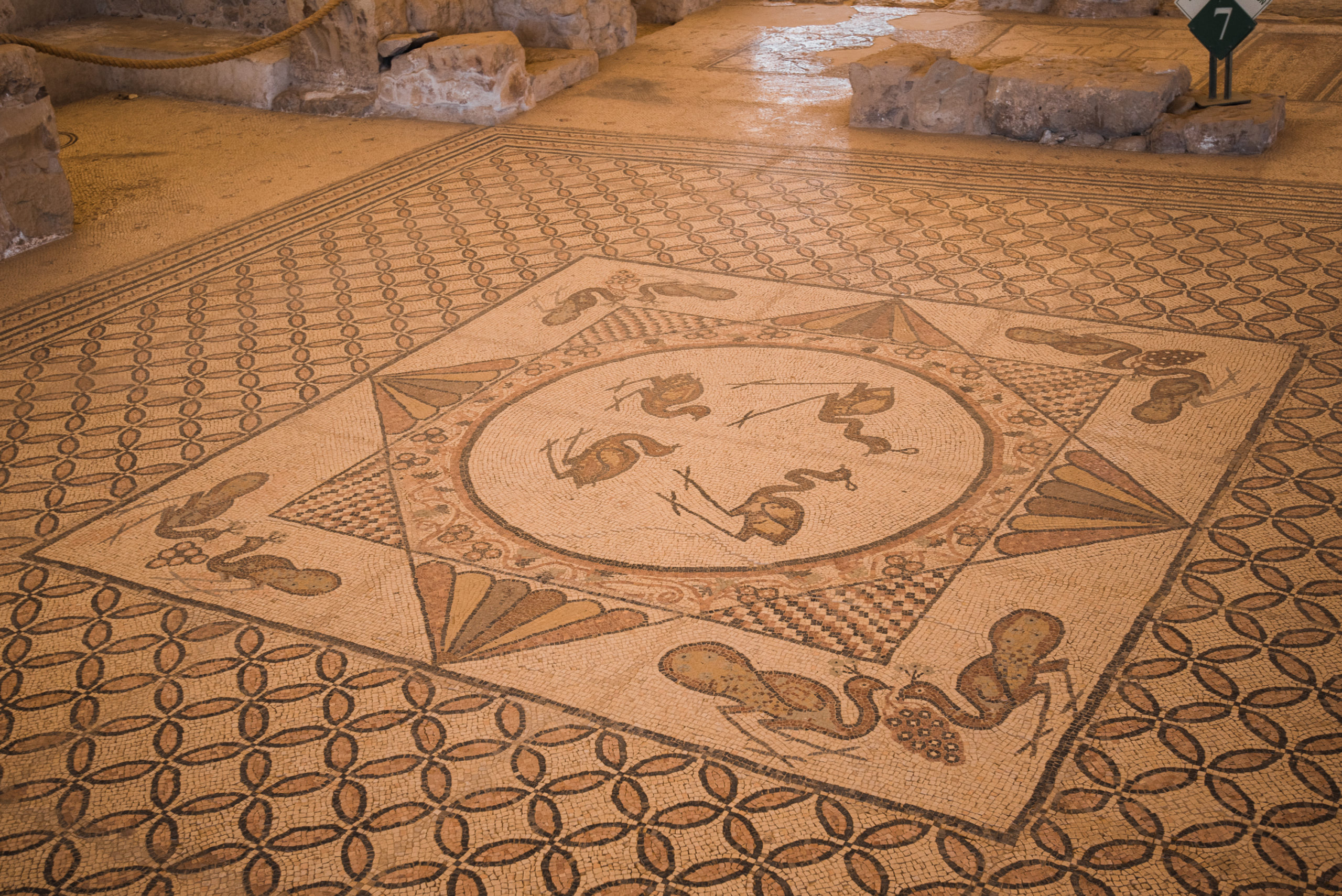
After En Gedi National Park, we drive north to the Galilee region of Israel, which is about a 2-hour drive. You can do the Galilee region as a day trip from Jerusalem, but we chose to spend 2 nights near Nazareth.
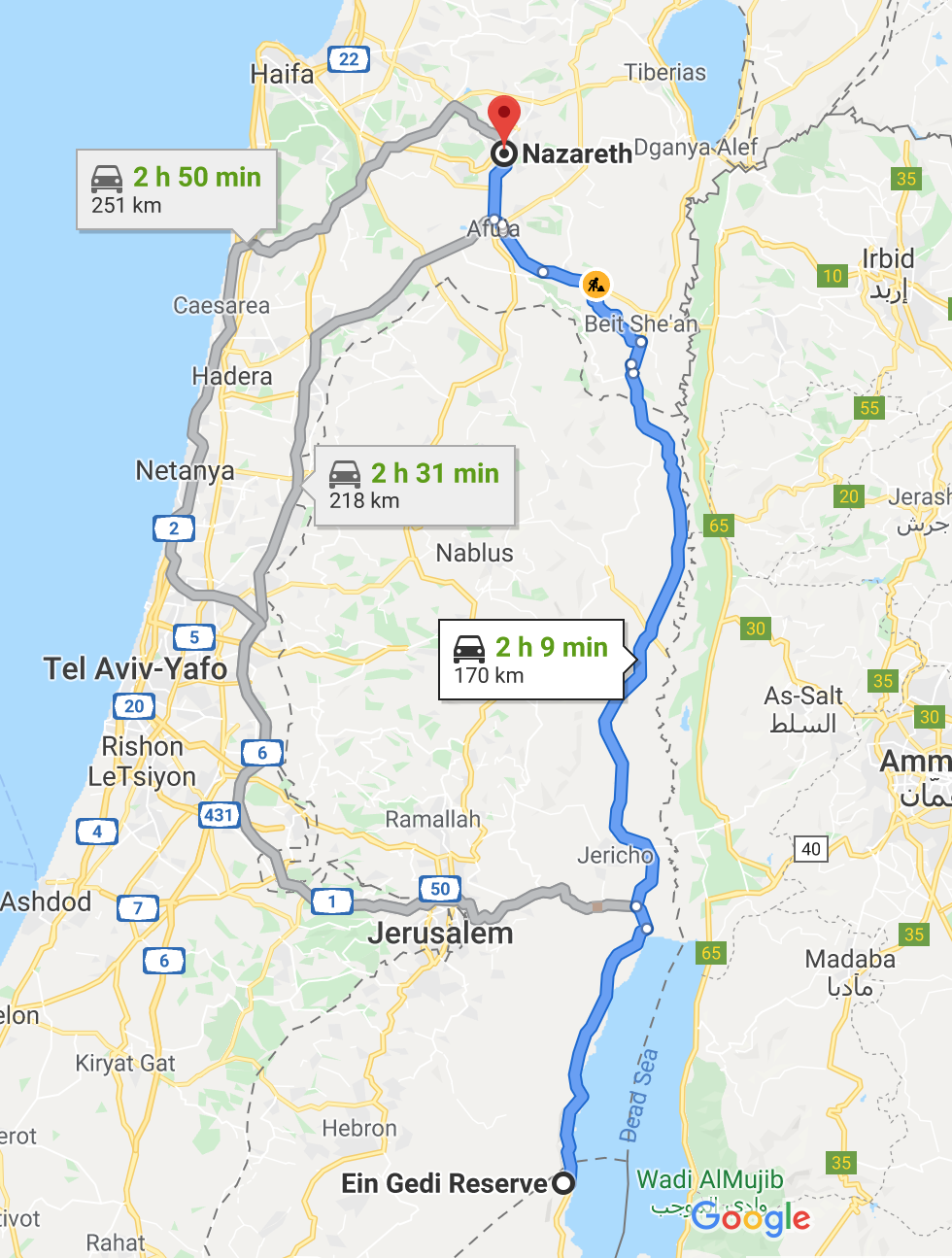
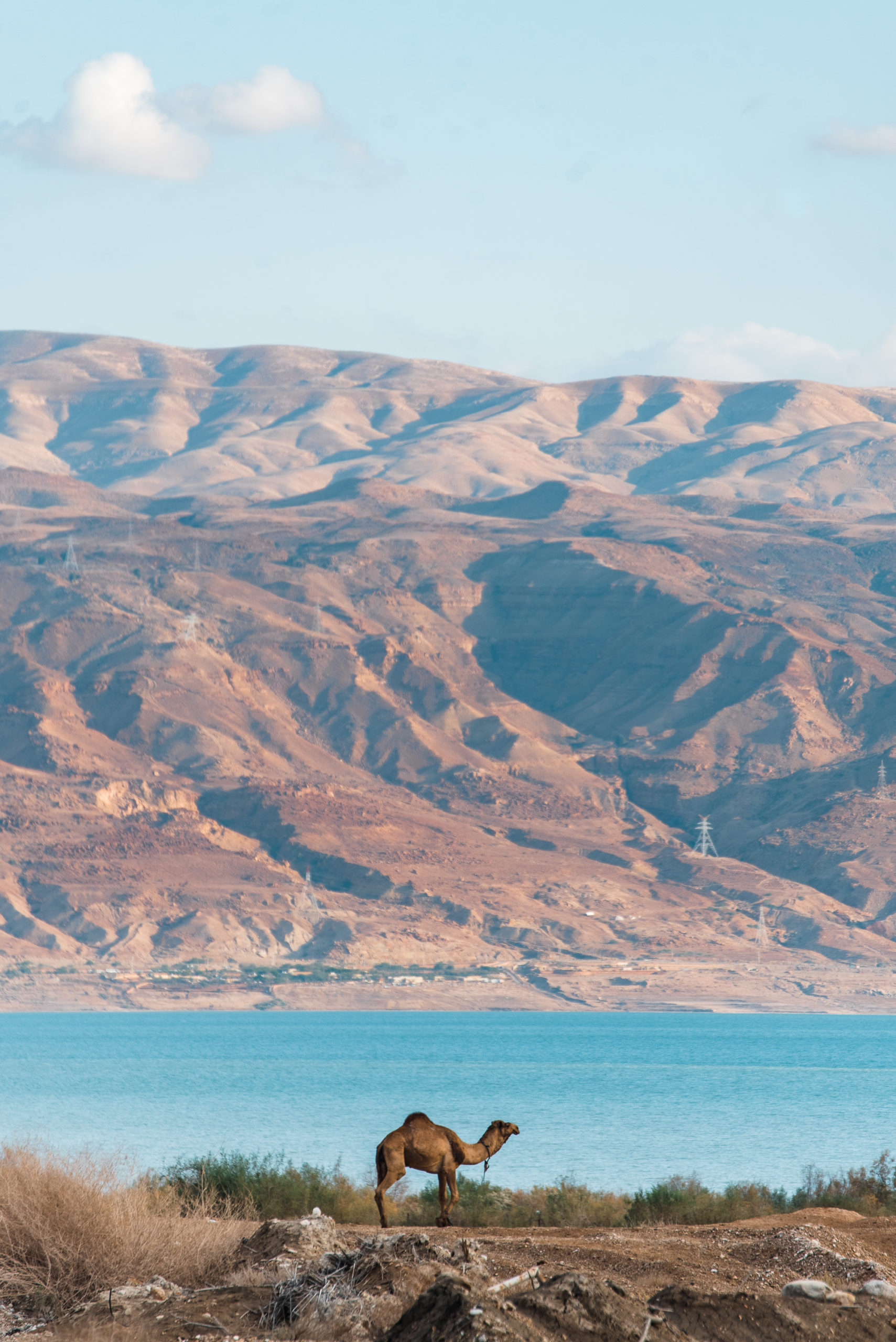
Views on the drive from En Gedi to Galilee
Day 7: Galilee Region: Capernaum, Church of the Multiplication, Mount Arbel
The Galilee Region is where Jesus grew up and spent a significant amount of time throughout his life. It’s a beautiful part of Israel with lots of important religious sites. We stayed in an Airbnb in Kiryat Tiv’on, which was a good location for seeing the area, though you could stay closer to Nazareth or Capernaum.
Note: Check opening times of all the religious sites in this area. Many churches or sites will close for an hour or two in the afternoon. We missed the Mount of the Beatitudes because we didn’t read the opening times right!
First, we stopped at Capernaum National Park, not to be confused with the Capernaum archaeological site. We were actually a little confused as to which Capernaum we were trying to find. Turns out this was the wrong Capernaum. However, it was still a nice park for a quick visit. Capernaum National Park (Kfar Nahum) is the site of a Franciscan monastery and a Greek Orthodox church, and you can also see beautiful views of the Sea of Galilee.
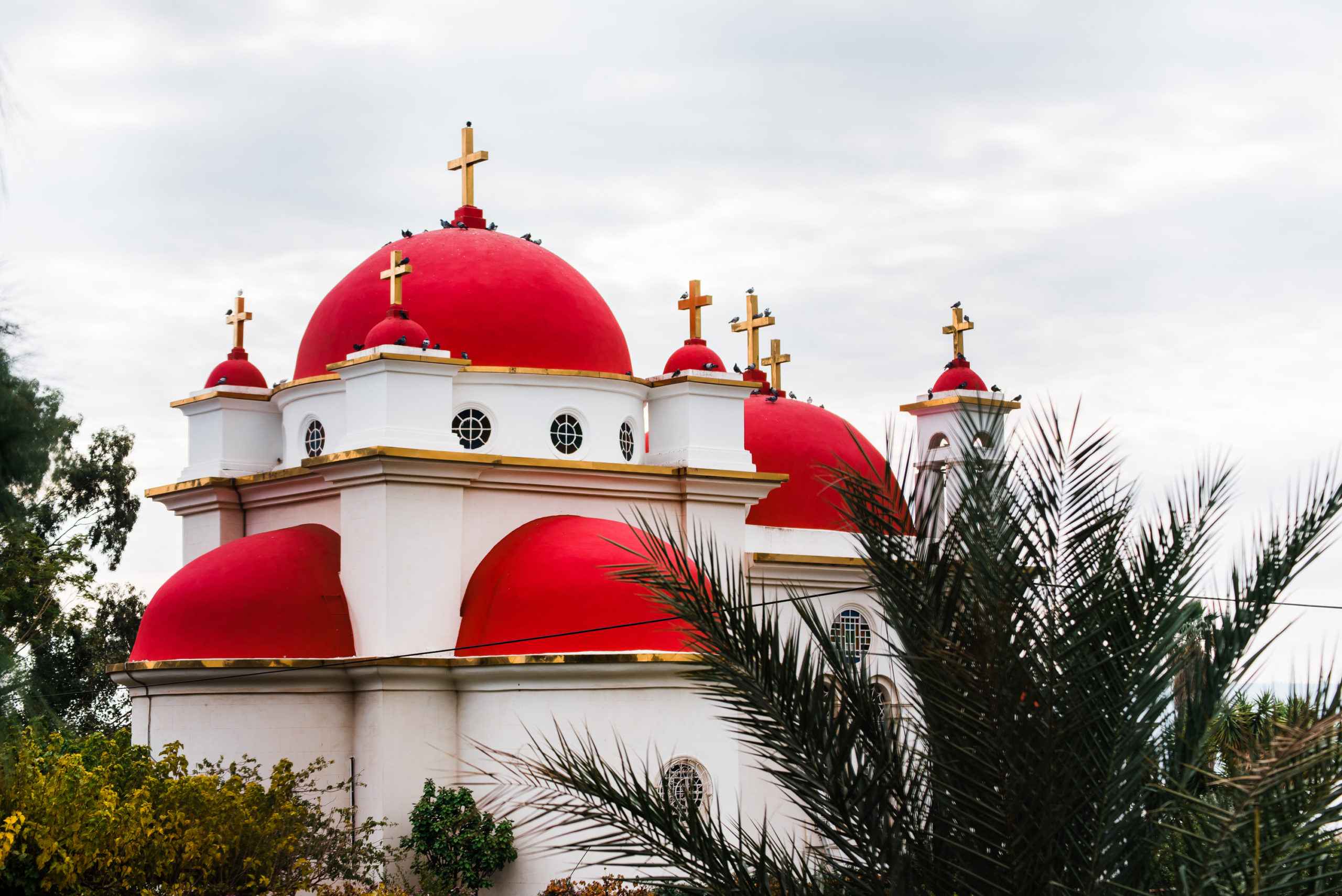
Greek Orthodox Church in Capernaum National Park
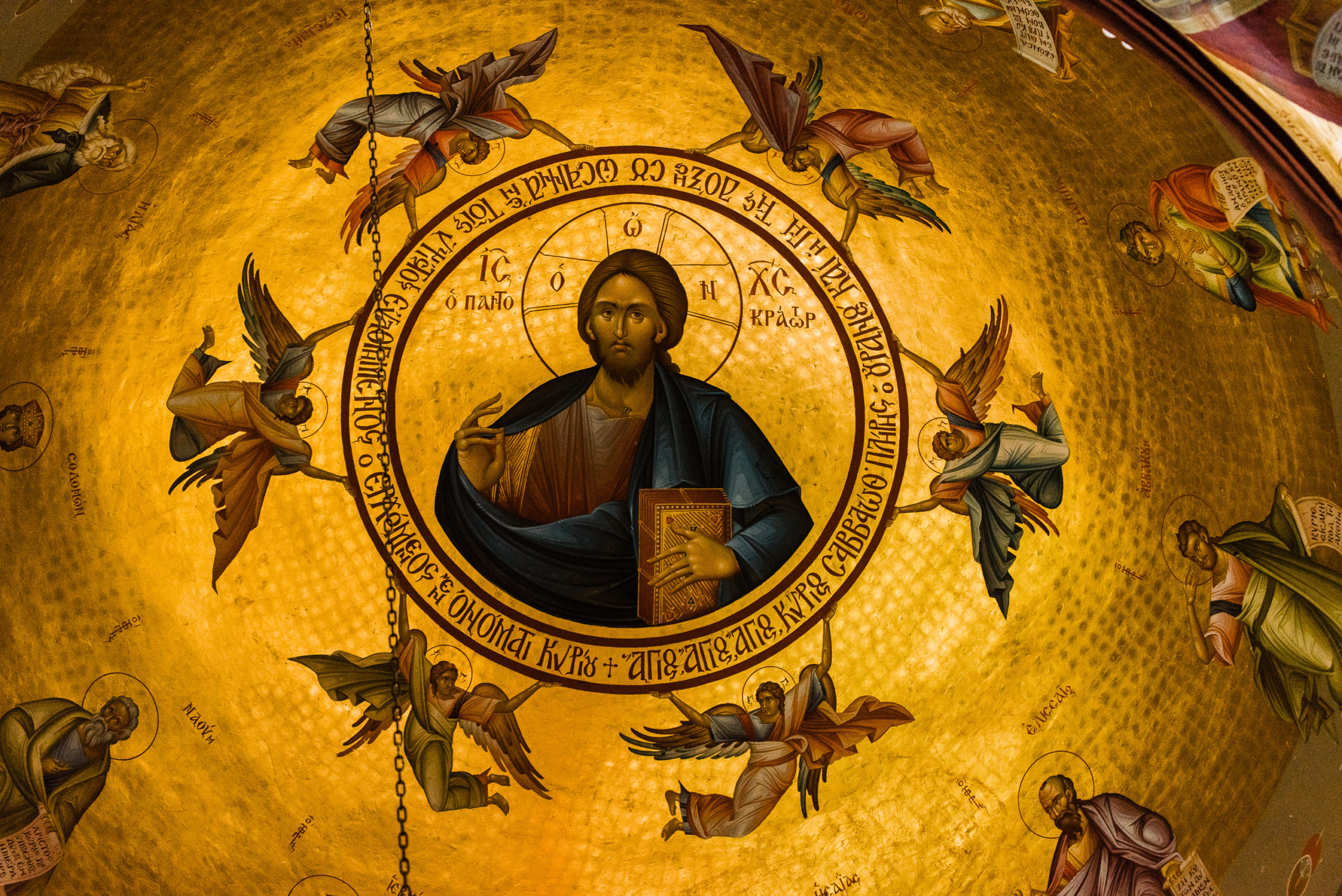
Inside the Greek Orthodox Church
Capernaum Archeological Site
Capernaum is the small fishing village where Jesus lived, and THIS is the Capernaum that most people see. The archaeological site features the ruins of the Biblical town and includes the House of Peter and the synagogue where Jesus gave the Sermon on the Bread of Life. The site isn’t large, but it’s definitely worth a visit.
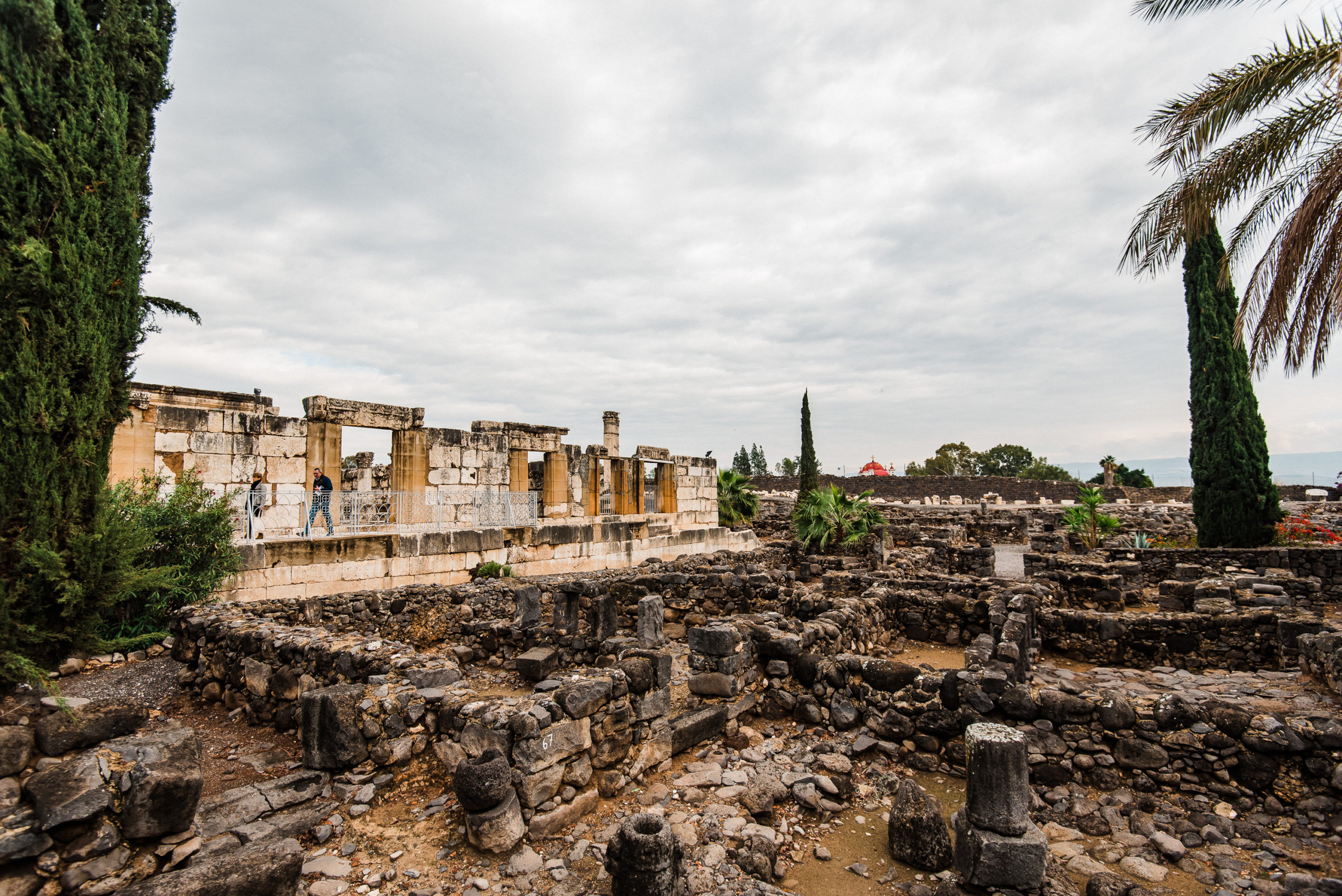
Capernaum was a small fishing village where Jesus lived.
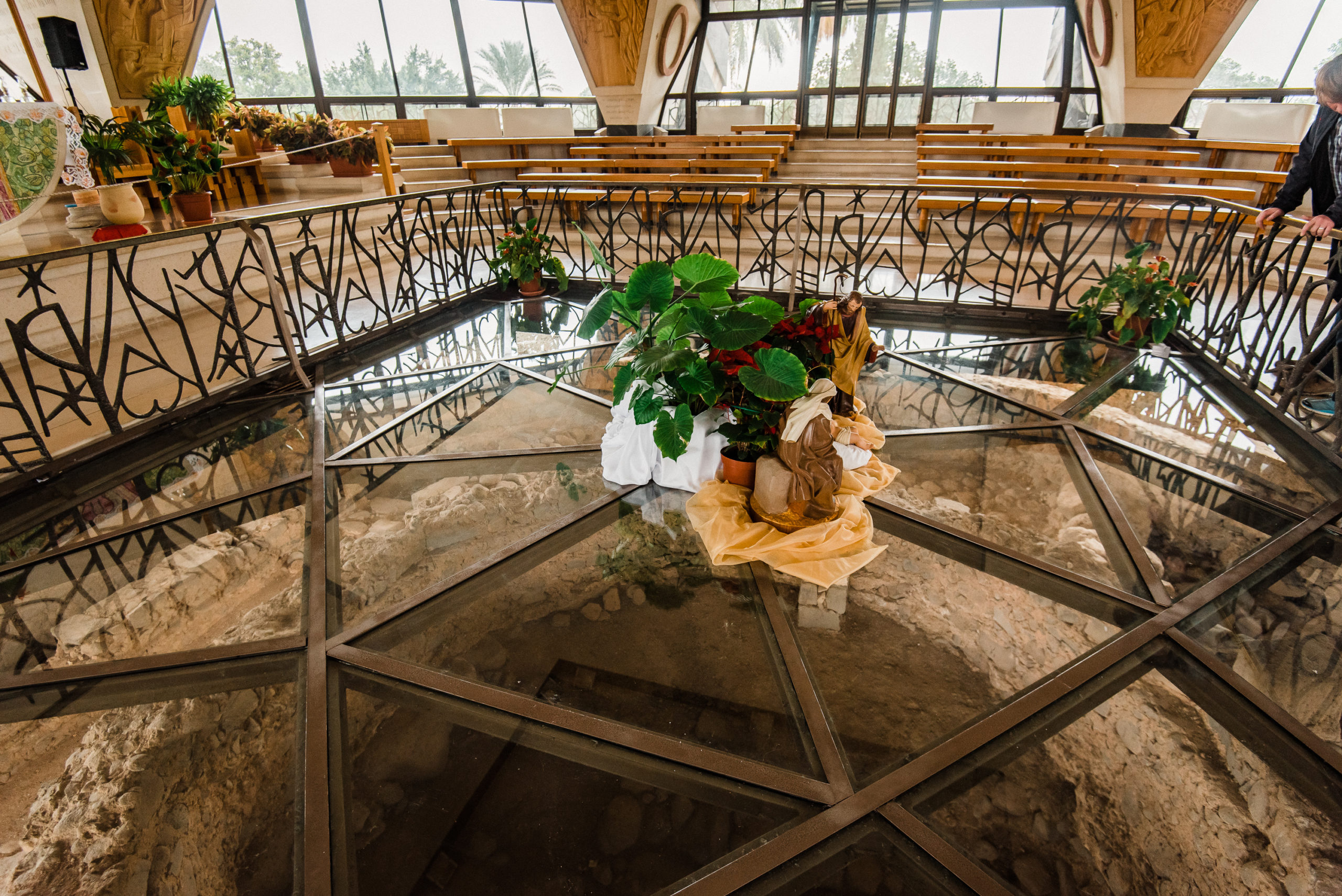
The House of Peter in Capernaum. A church was built over the ruins of the house.
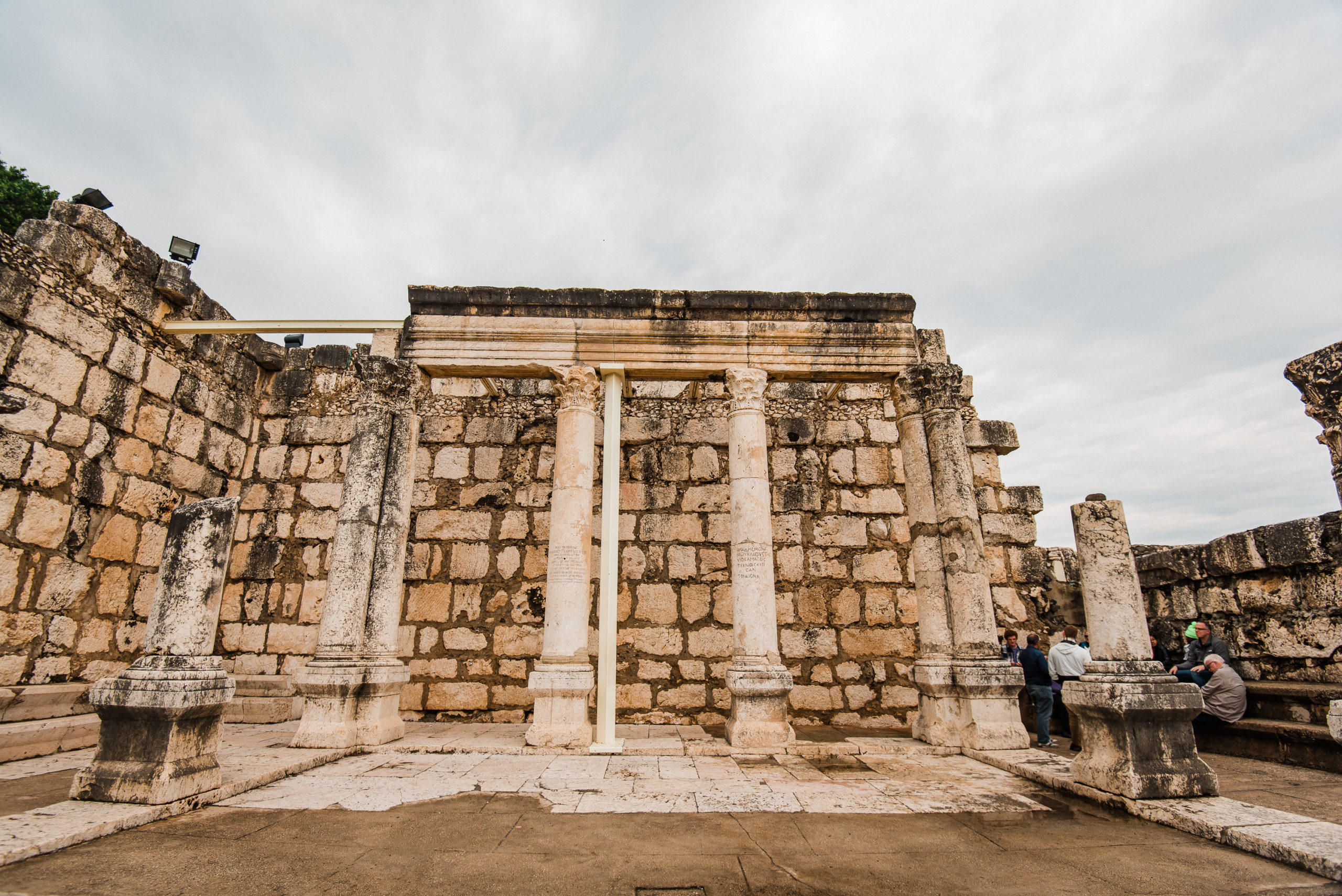
The synagogue where Jesus gave the Sermon on the Bread of Life
Church of the Multiplication (Tabgha)
Next, we went to the Church of the Multiplication, which is the location where Jesus performed the miracle of multiplying the fish and the loaves. The church was built to commemorate the miracle, and there is a famous mosaic inside depicting the fish and loaves.
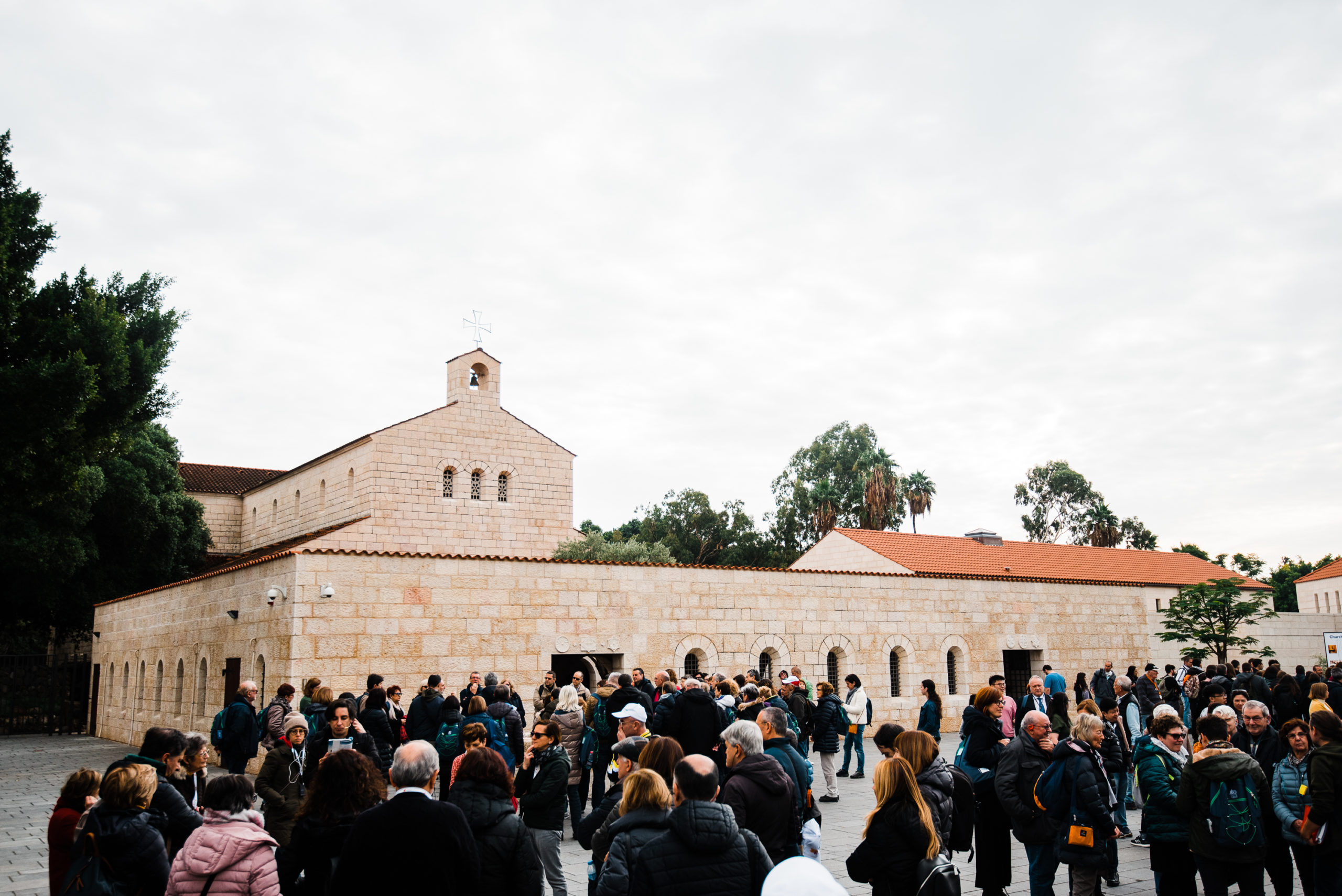
Church of the Multiplication, which is the location where Jesus performed the miracle of multiplying the fish and the loaves.
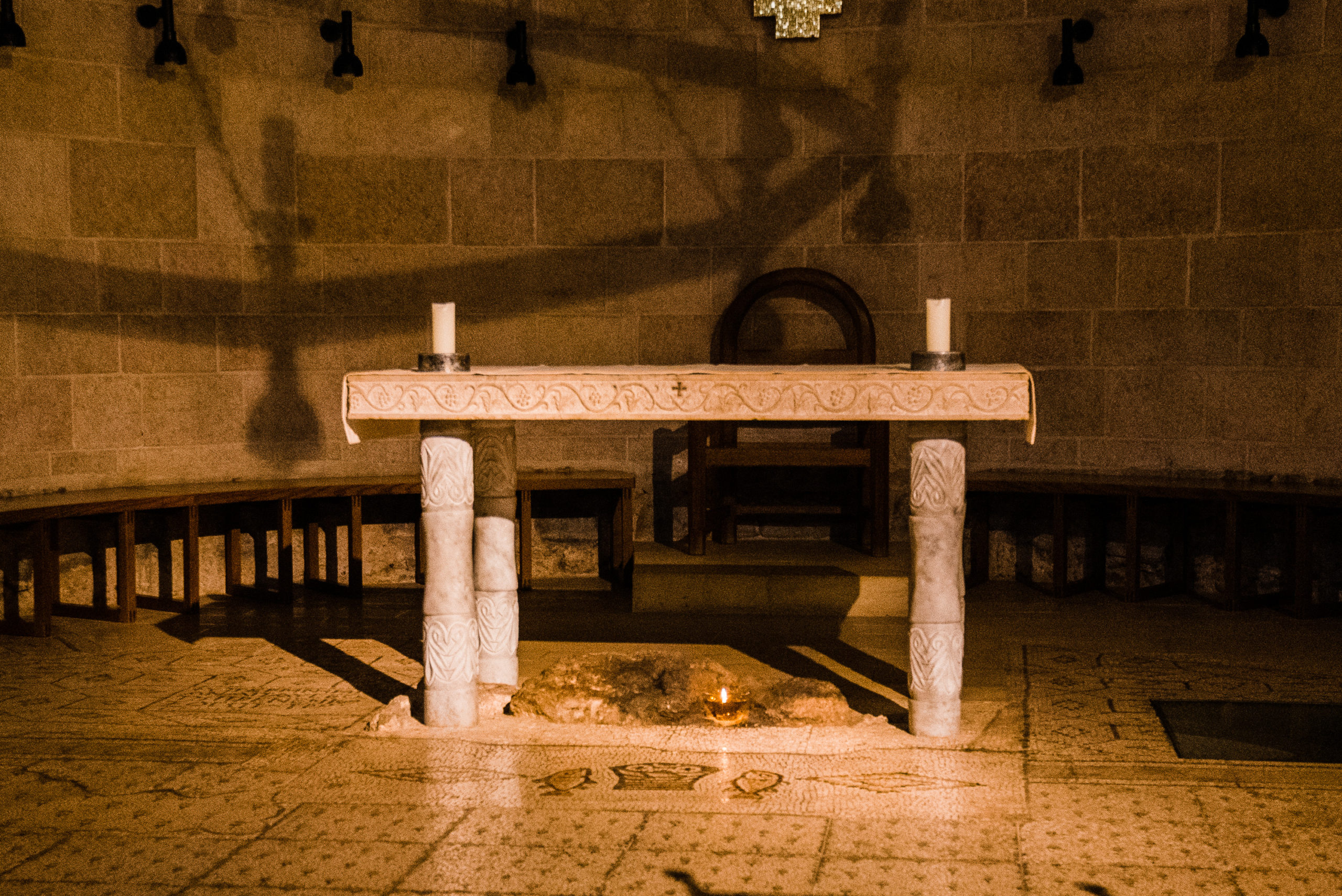
Mosaic inside the Church of Multiplication depicting the fish and loaves.
Church of the Primacy of St. Peter
This church is a short walk from the Church of Multiplication, and it’s worth a stop. The church marks the spot of Jesus’ reinstatement of Peter as chief among the Apostles (Wikipedia). It also has great views of the Sea of Galilee.
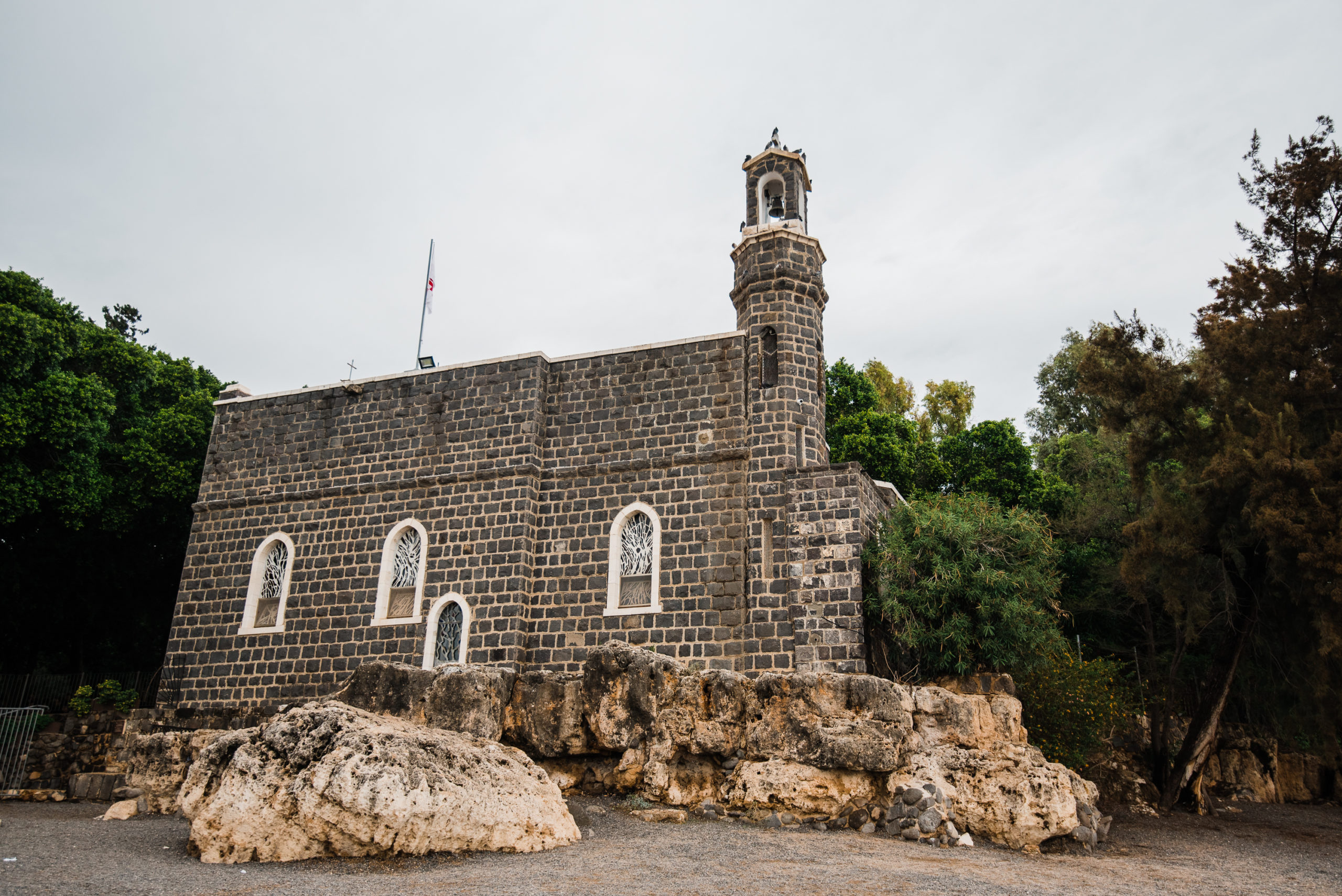
Church of the Primacy of St. Peter
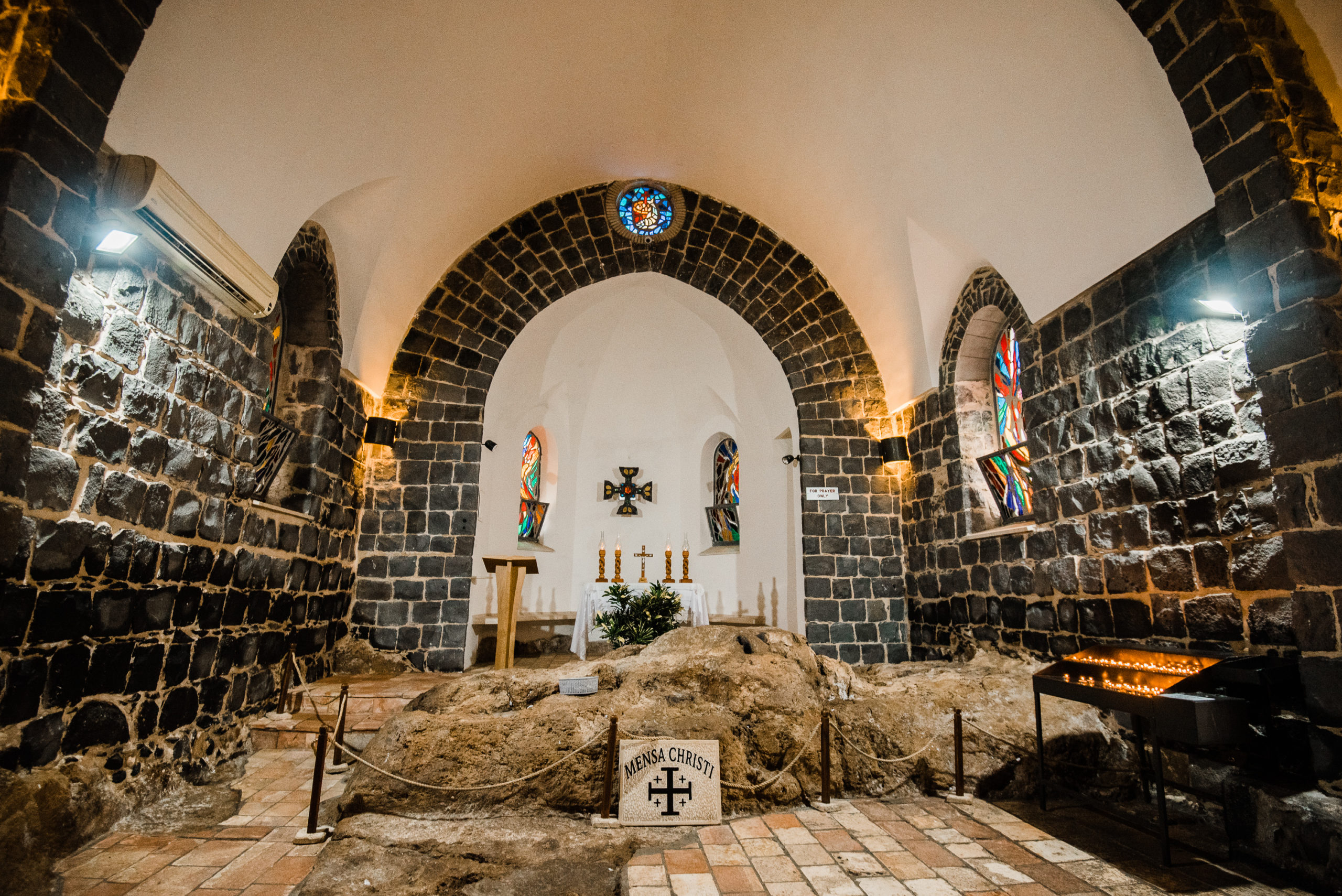
Inside the Church of the Primacy of St. Peter. The rock marks the spot where Jesus reinstated Peter.
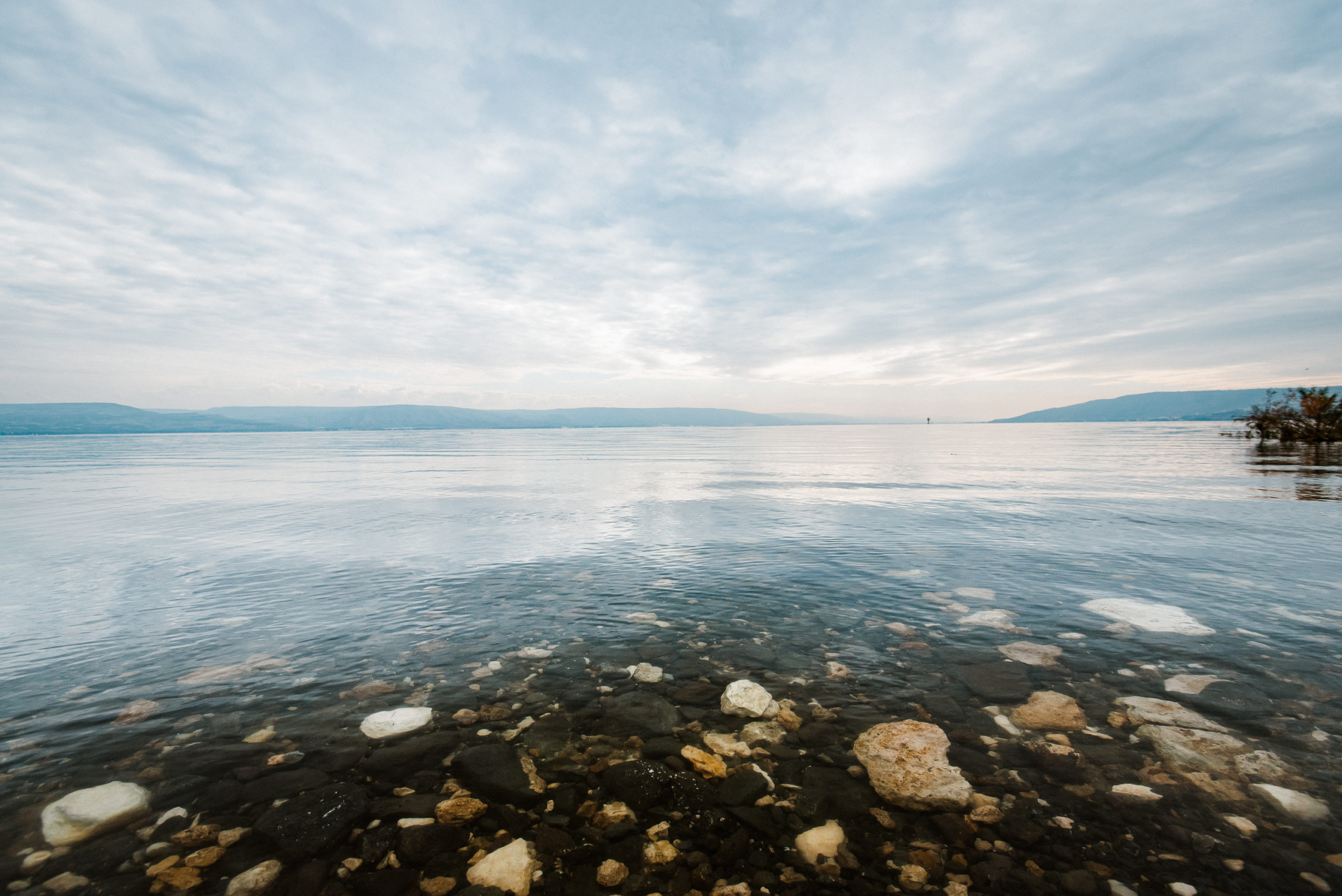
Sea of Galilee outside the Church of the Primacy of St. Peter
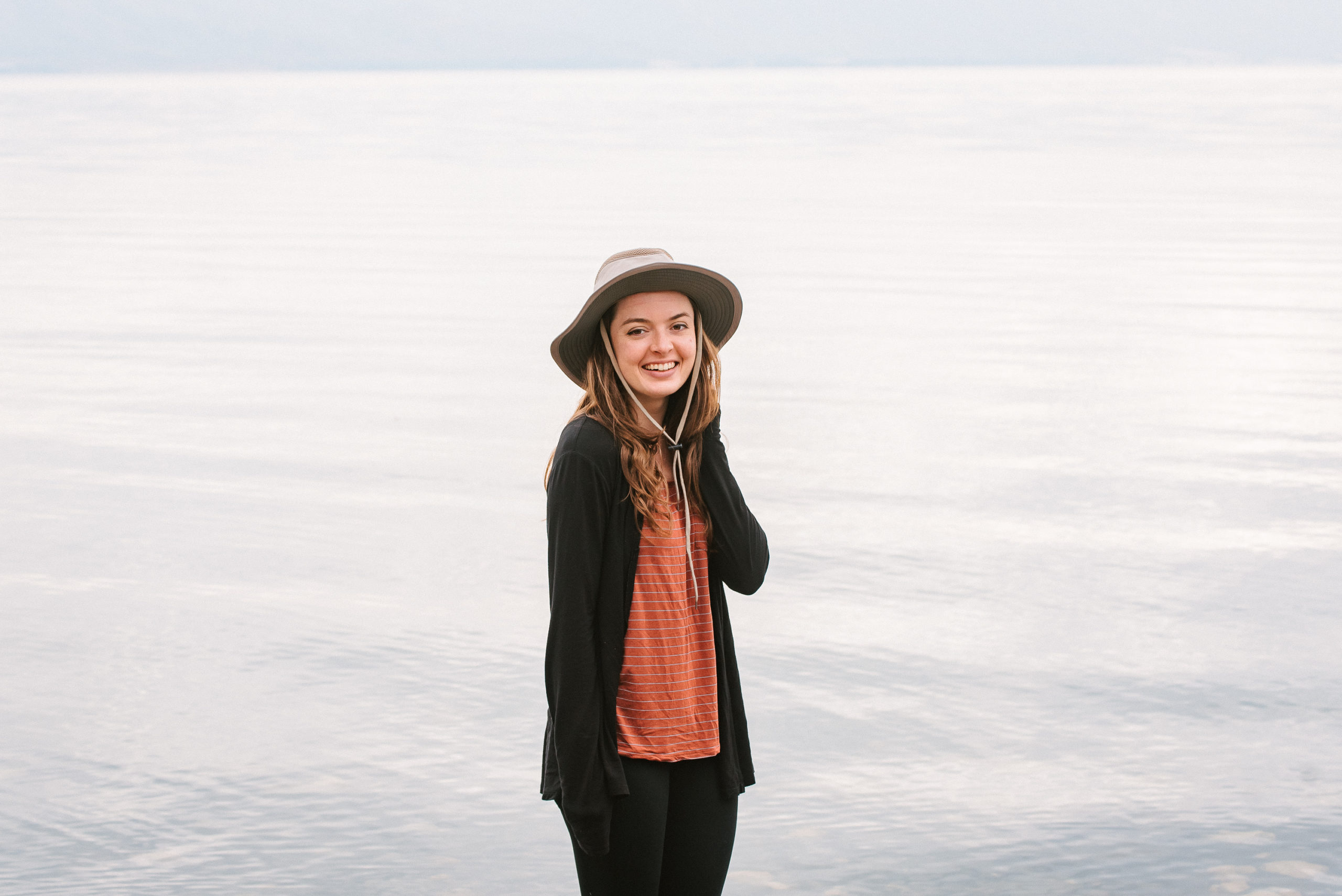
Sea of Galilee outside the Church of the Primacy of St. Peter
If you are looking for some hiking, this park is perfect. You can easily drive to this park, and then there are lots of trails starting from the top of the mountain. We did the Carob Tree Lookout trail, which is a pretty easy trail that only takes about 30 minutes. However, the lookout offers incredible views of the Jordan Valley and the Sea of Galilee.
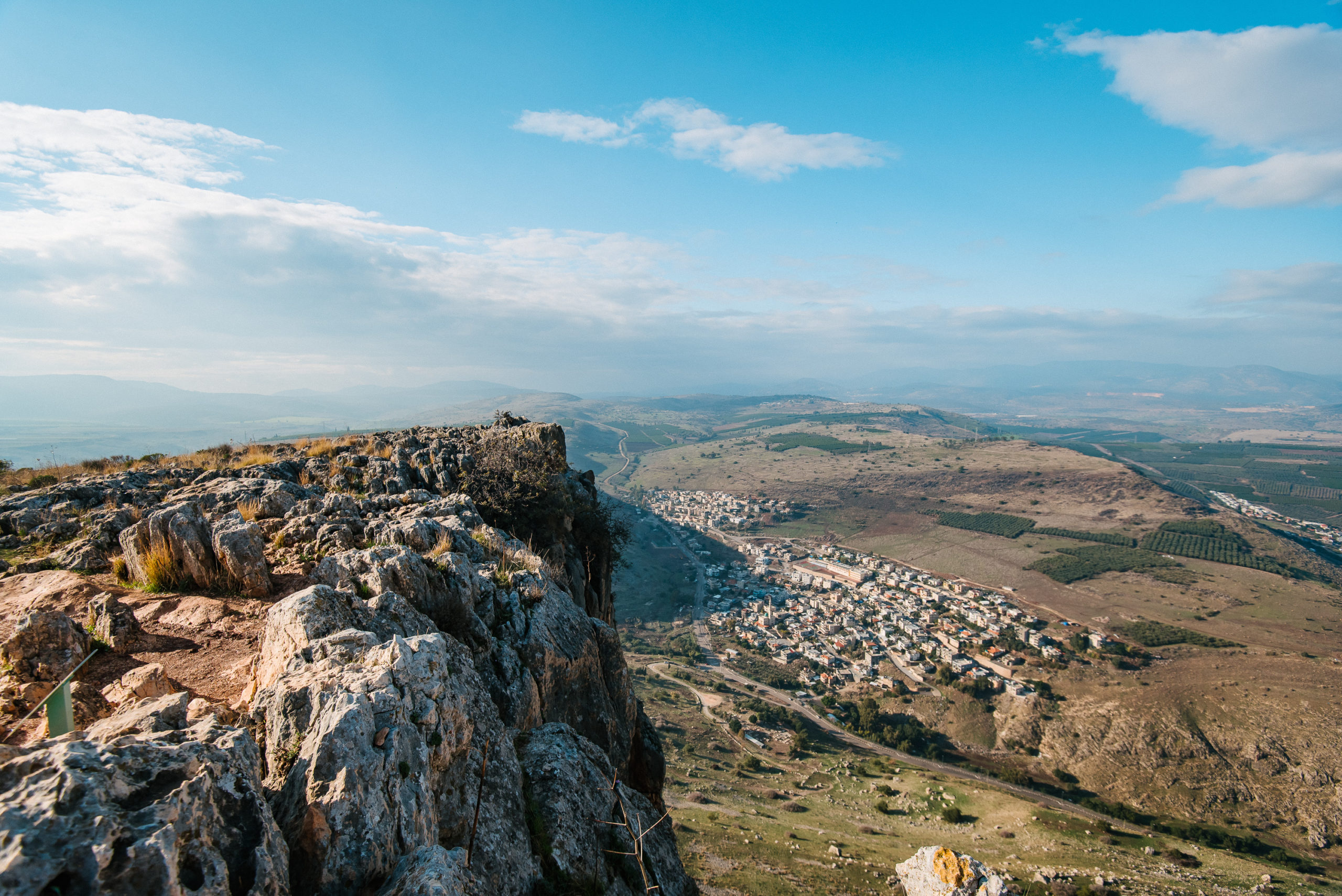
Hiking to the Carob Tree Lookout at Mount Arbel National Park
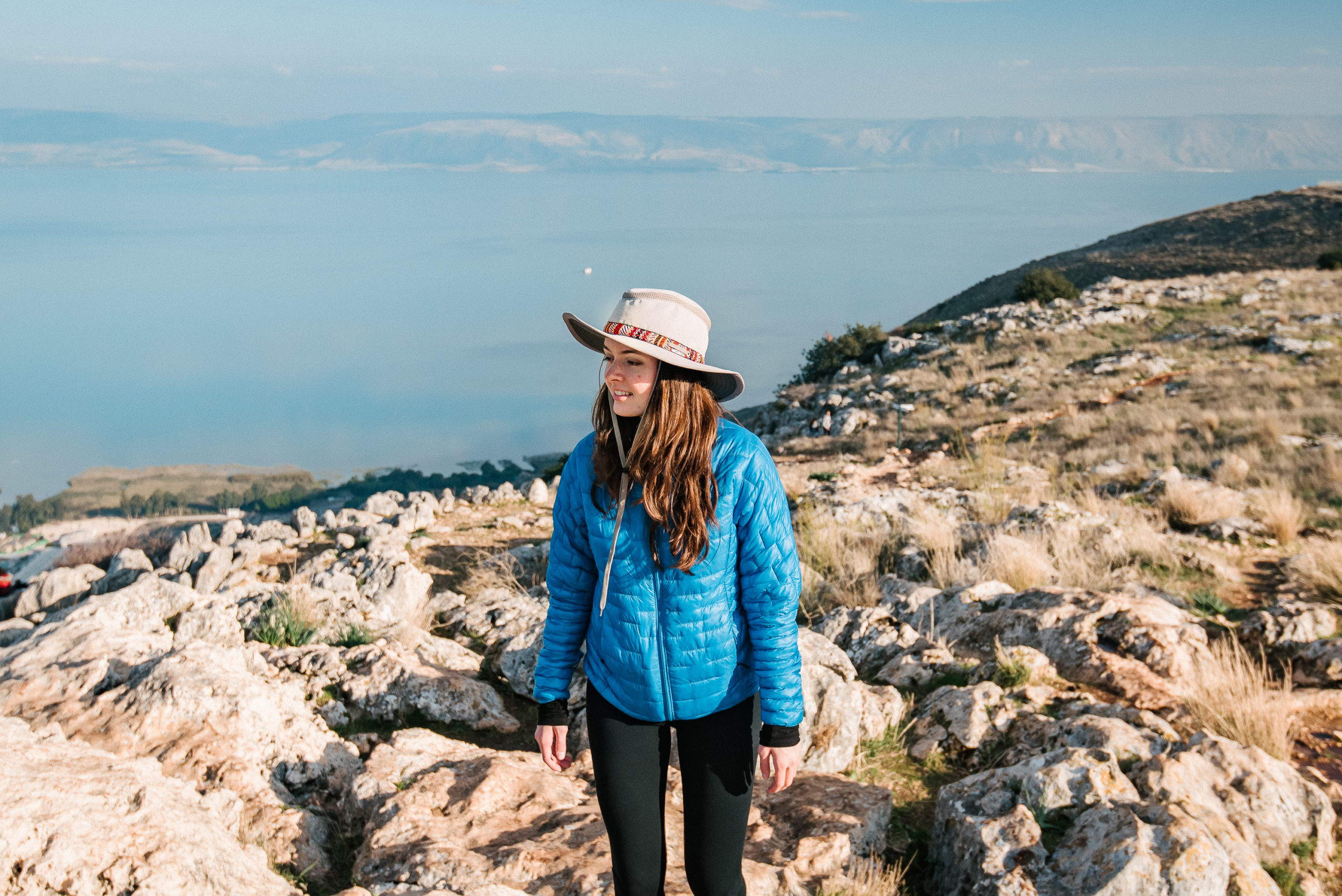
Hiking to the Carob Tree Lookout at Mount Arbel National Park
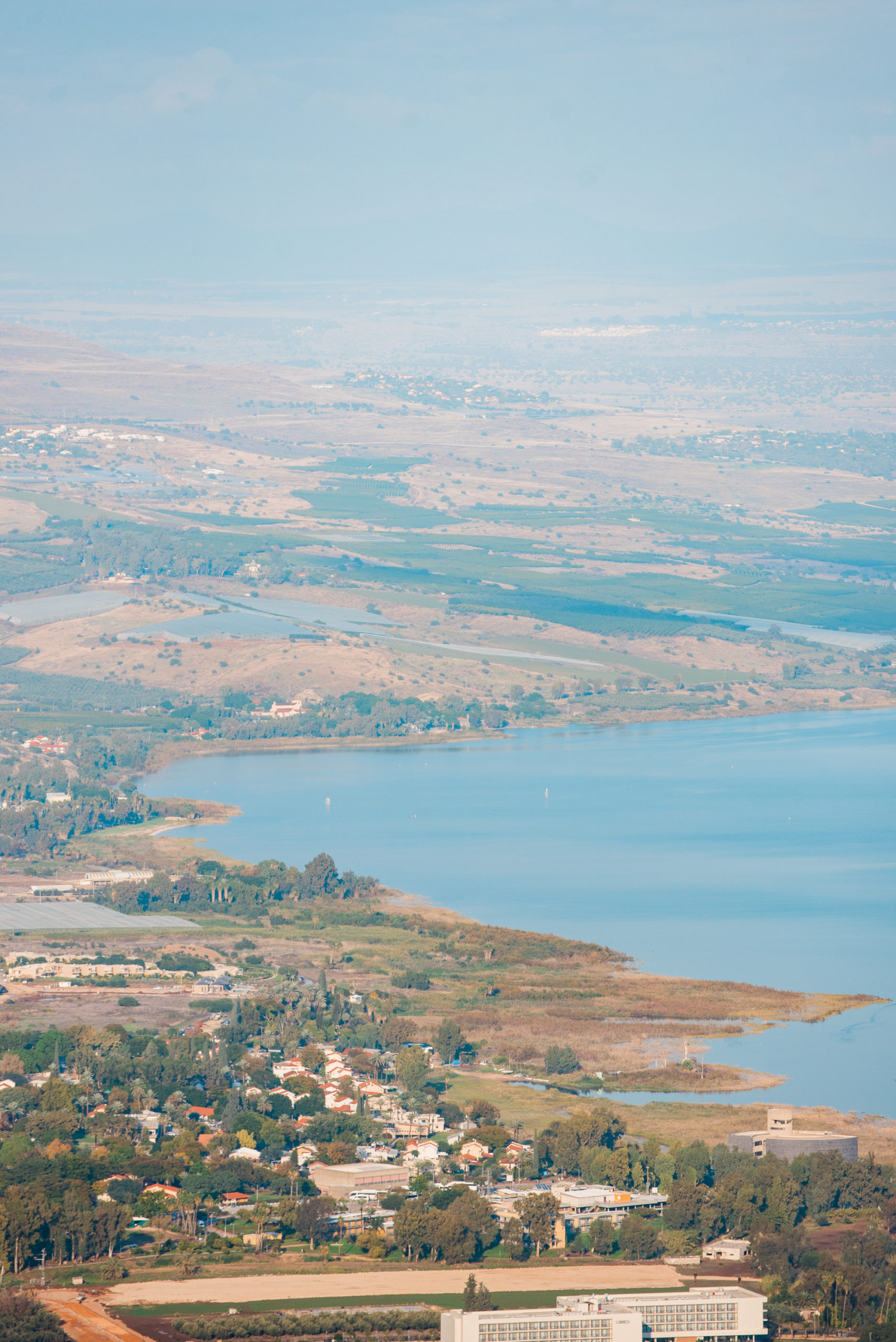
Views from the Carob Tree Lookout at Mount Arbel National Park
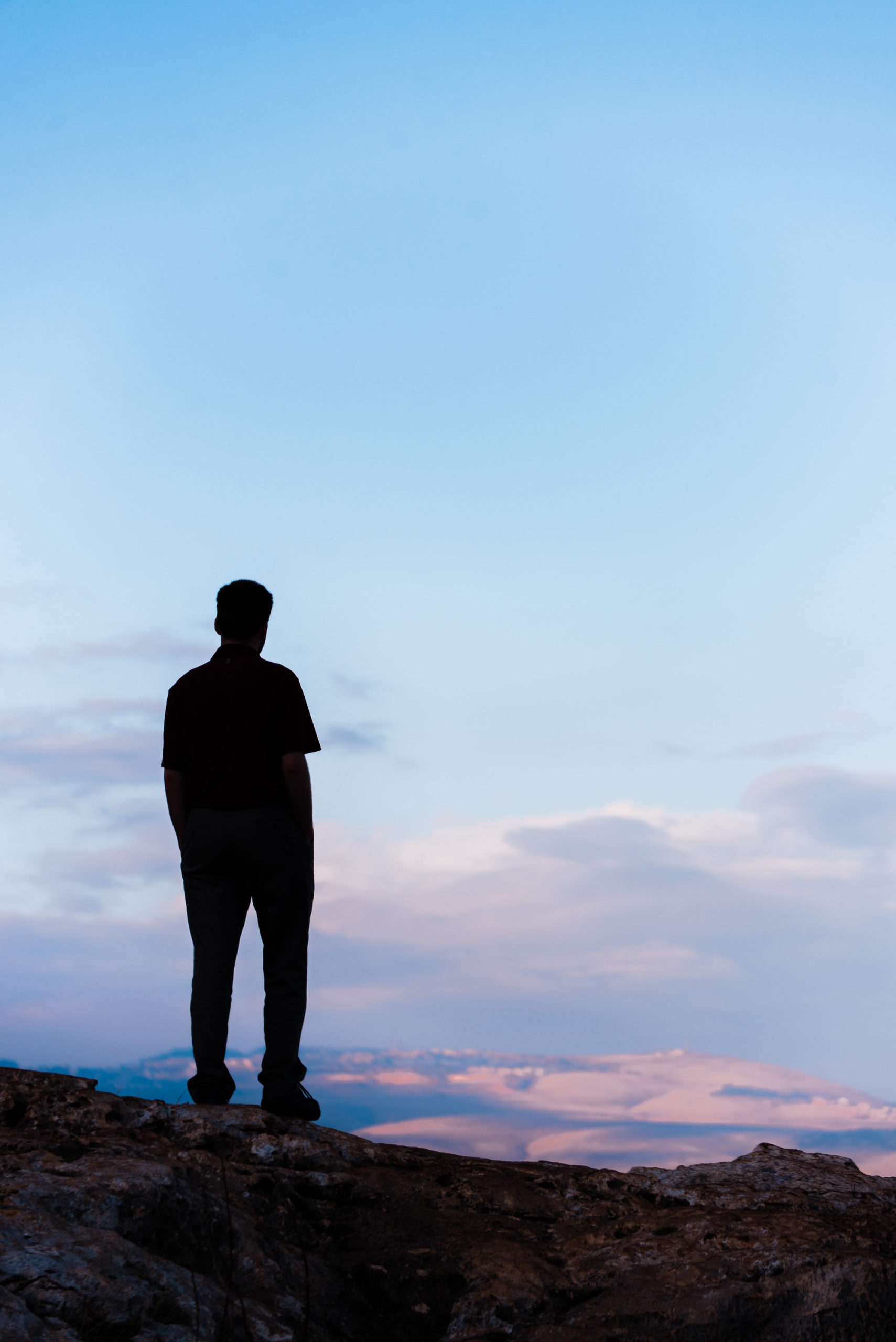
Hiking to the Carob Tree Lookout at Mount Arbel National Park
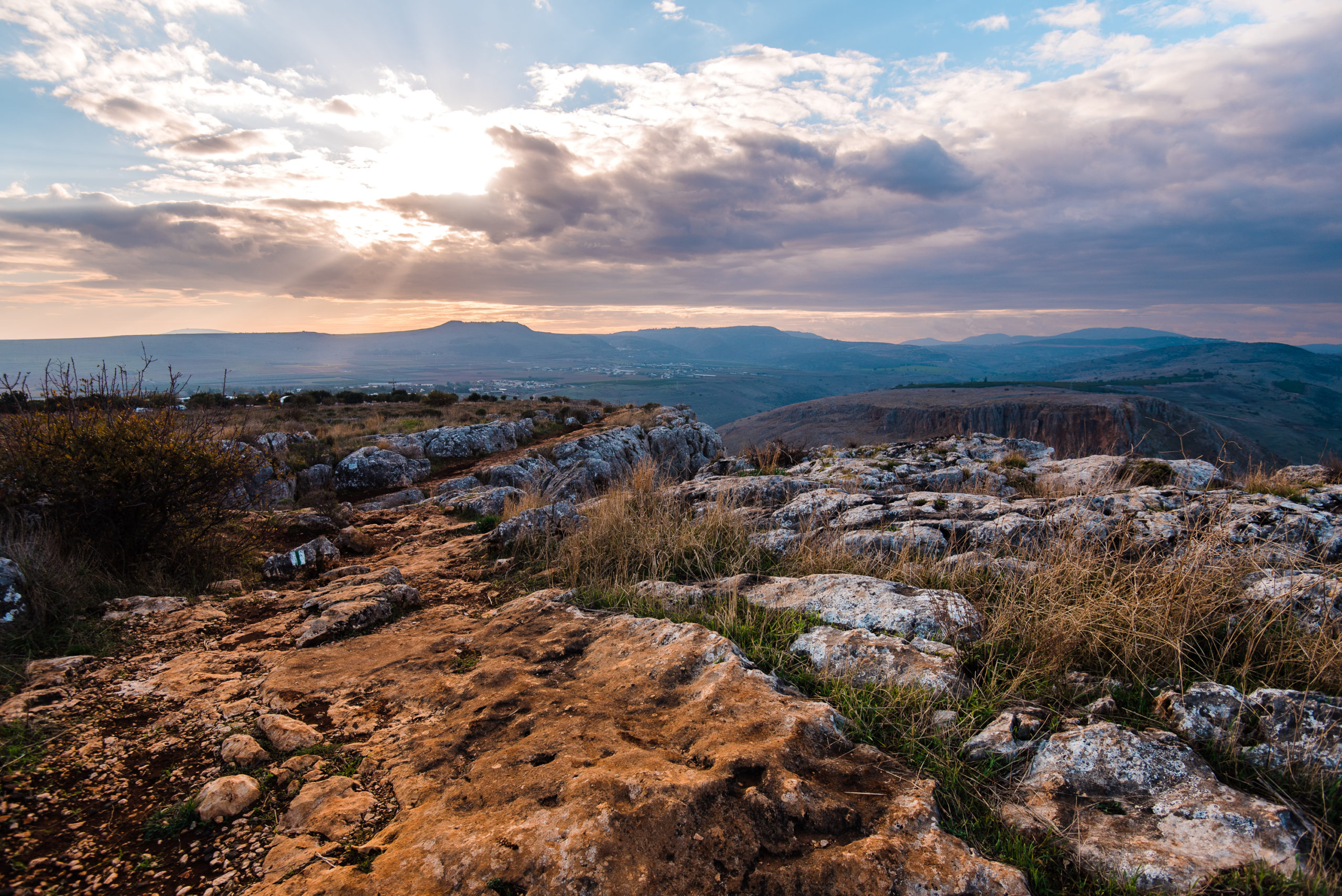
Hiking to the Carob Tree Lookout at Mount Arbel National Park
Day 8: Bet She’arim National Park and Tel Aviv
We started the day at Bet She’arim National Park, which is a total hidden gem. This park was amazing and one of the highlights of our time in the Galilee region. Bet She’arim was home to a great rabbi named Rabbi Yehuda HaNasi who was the religious, spiritual and political leader of the Jewish people at that time (Israel Nature and Park Authority). The park is famous for its huge necropolis of rock-cut tombs. There are 20 catacombs and over 400 stone burial places. How insane is that. You can also enter these catacombs and walk around the ancient tombs. It’s unlike anything I’ve ever seen.
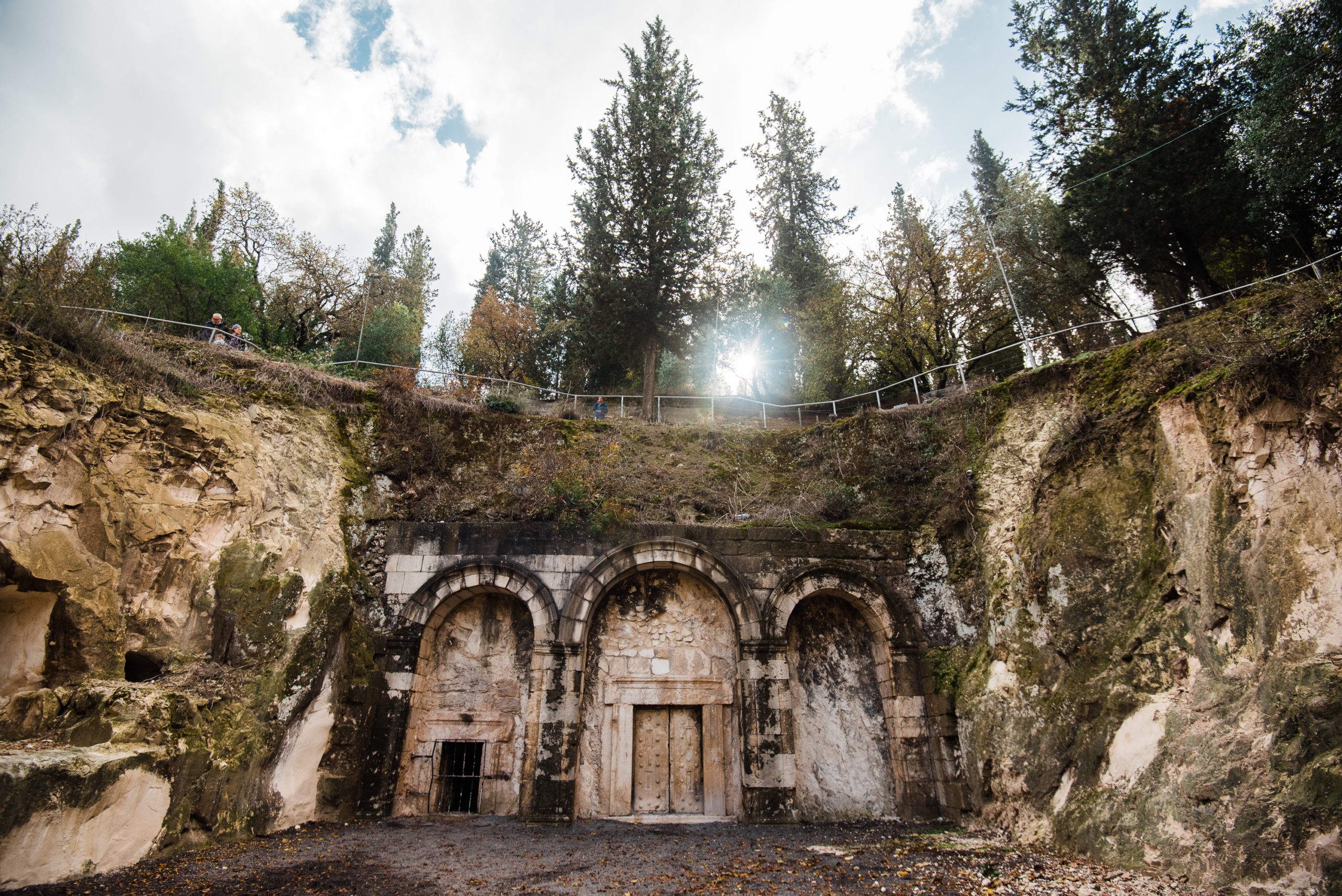
Entrance to one of the catacombs at Bet She’arim National Park
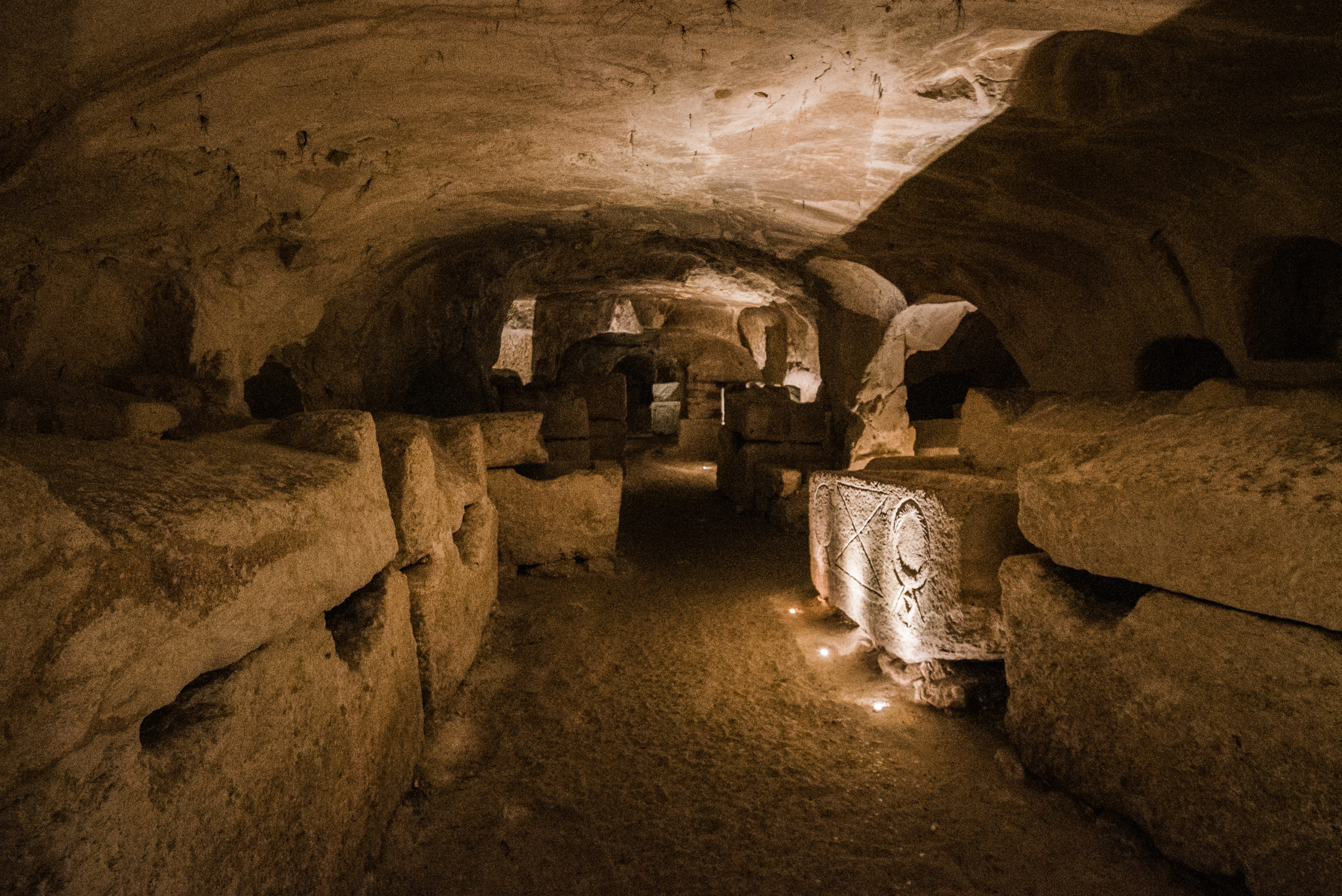
Inside the Cave of Coffins at Bet She’arim National Park
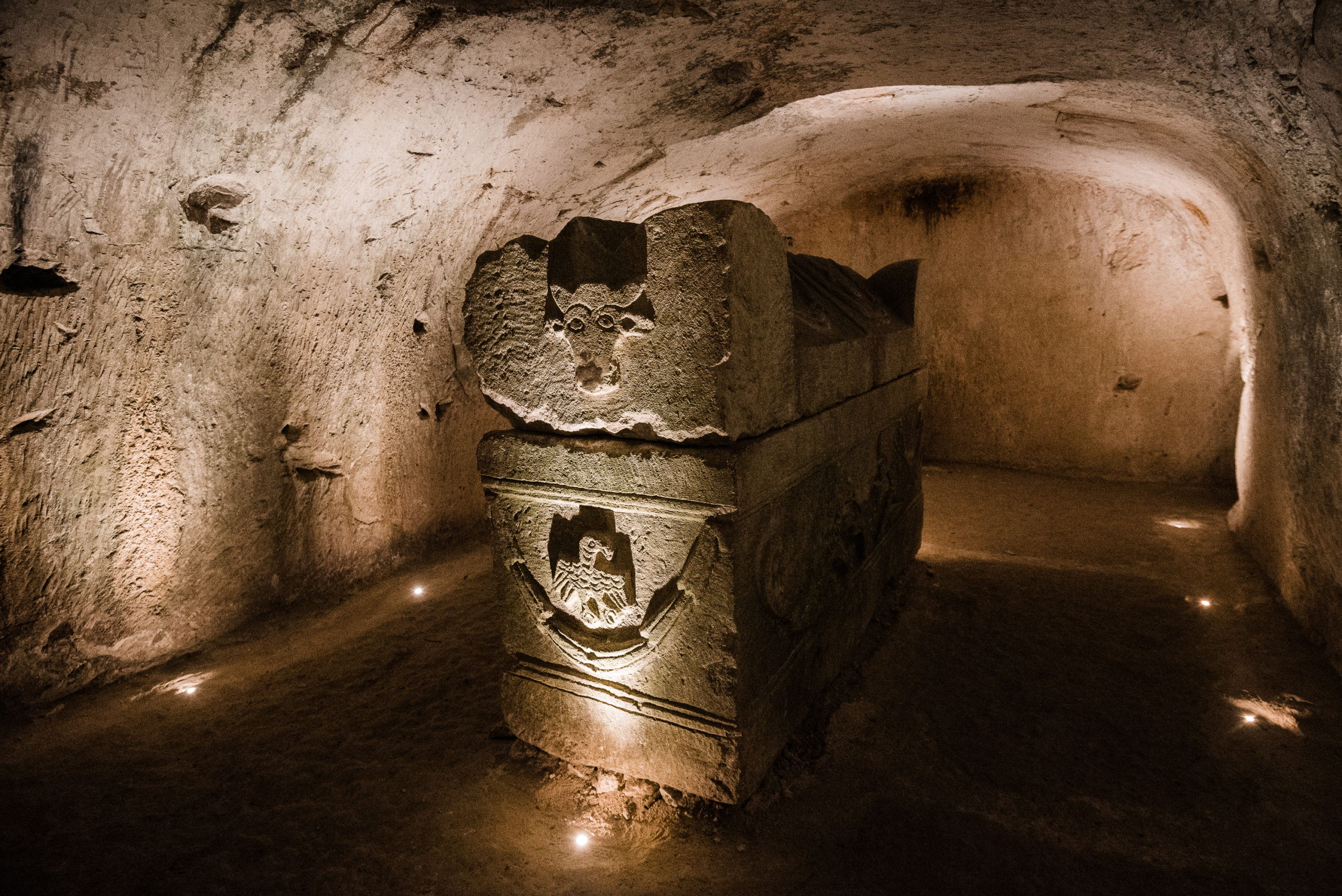
Decorated sarcophagus inside the Cave of Coffins at Bet She’arim National Park
Nazareth-Basilica of the Annunciation
After the park, we stopped at the Basilica of the Annunciation in Nazareth on our way to Tel Aviv. Parking near the church is limited, but we managed to find a small lot that let us park there for 30 minutes before they were going to close. The Basilica is a modern Catholic church built over the site believed to be the house of the Virgin Mary, and where angel Gabriel appeared to her and announced that she would conceive and bear the Son of God, Jesus (the Annunciation).
The church is beautiful and has large panels of artwork depicting the Virgin that were done by different countries from all over the world.
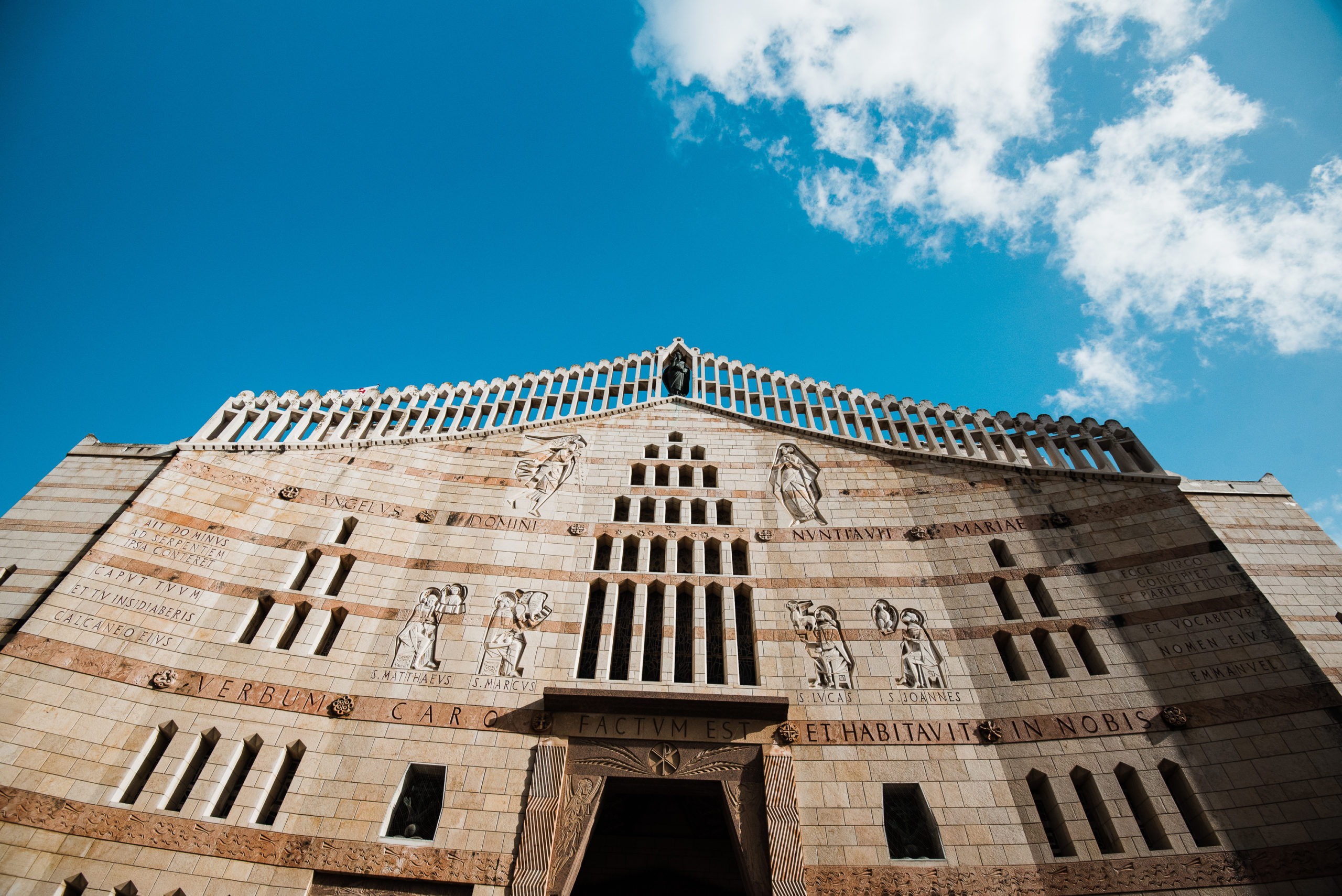
Basilica of the Annunciation
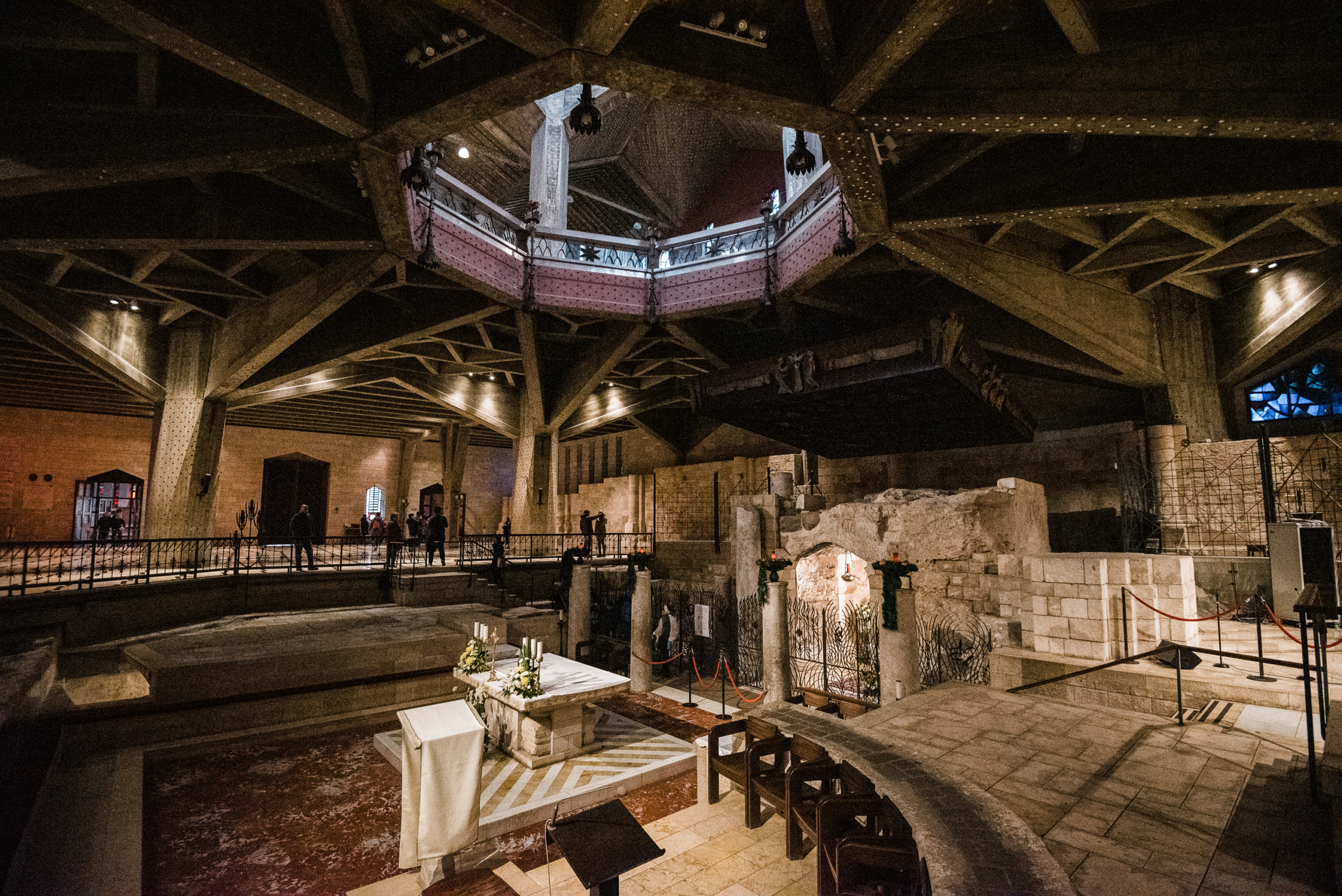
Inside the Basilica of the Annunciation-the ruins of the Virgin Mary’s house
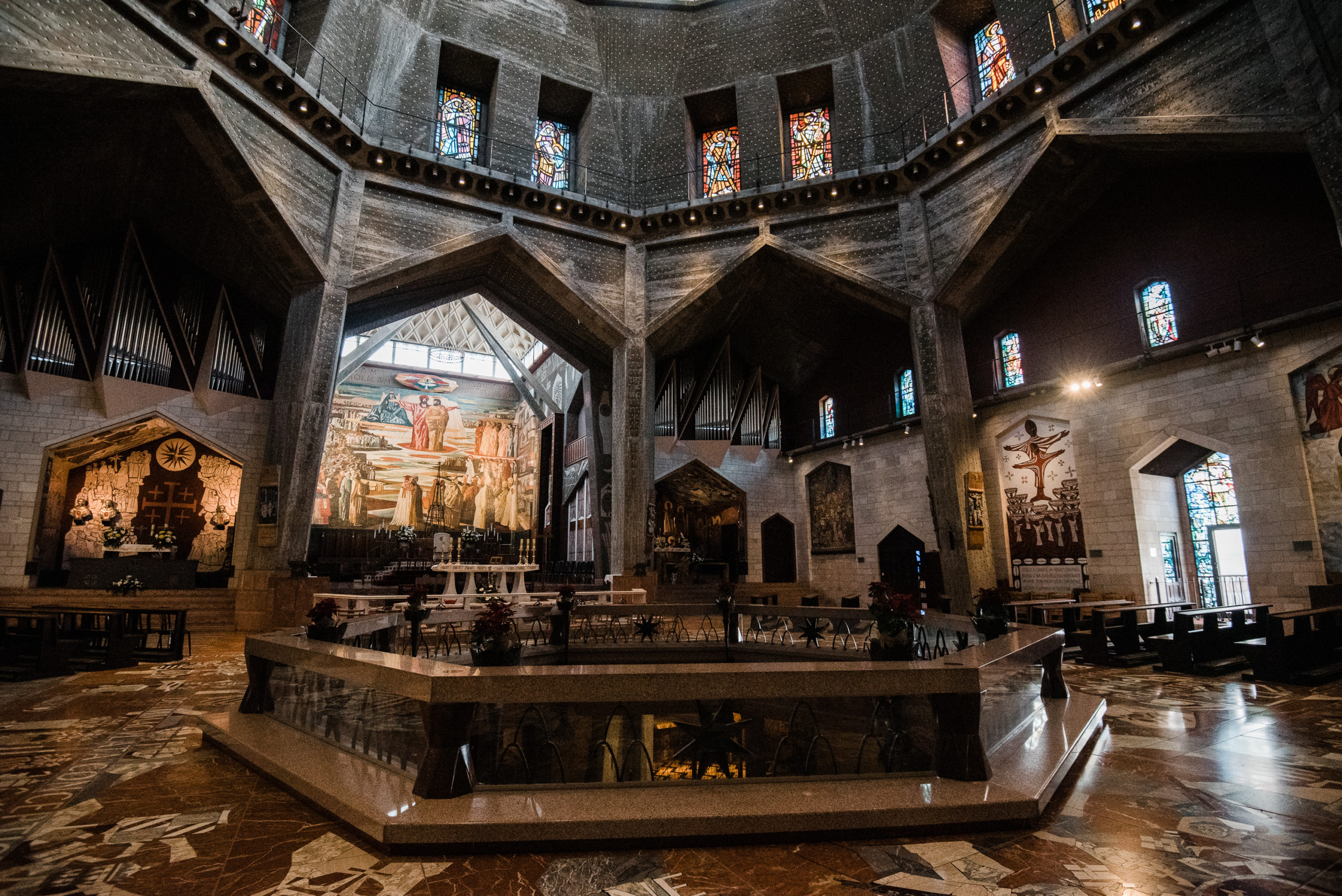
The upper floor of the Basilica of the Annunciation
Tel Aviv
Next, we drove to Tel Aviv, which about an hour by car. We went to Tel Aviv to catch a tour to Jordan. We only had one night in Tel Aviv, but it is a really cool city. We walked from downtown to the sea where we could see the Jaffa Clock Tower. Walk down Rothschild Street and through the old part of the city to reach the coast. It’s especially beautiful at sunset.
I HIGHLY recommend staying at the Abraham Hostel in Tel Aviv. It’s truly an amazing place for travelers to come together from all over the world. The cool, hip, friendly, FUN vibe is unparalleled. I did a yoga class one night, and we had a great time hanging out in the common areas of the hostel. There are dorm-style rooms as well as family-style rooms that are more like hotel rooms. Plus, the hostel offers a delicious free breakfast for guests.
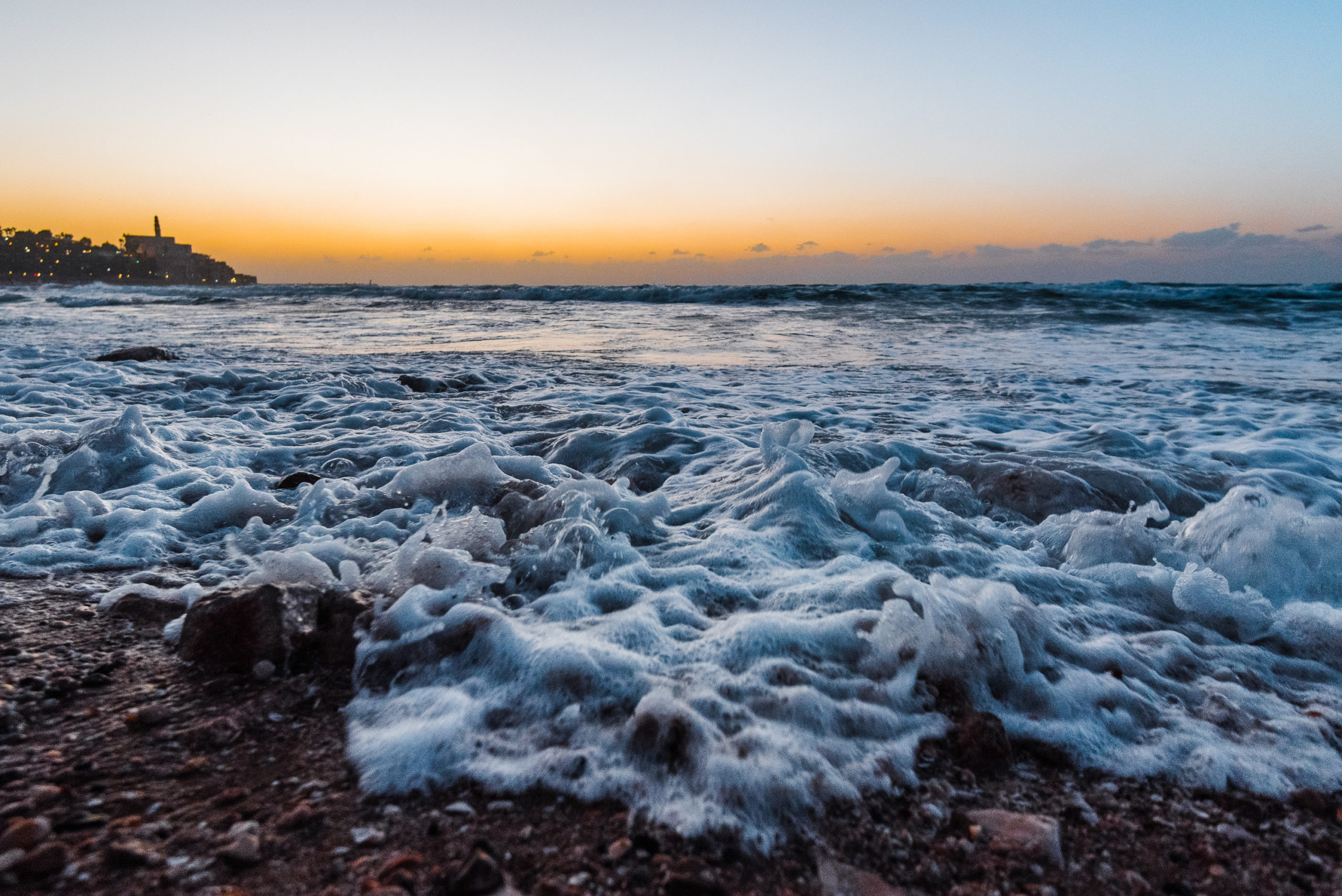
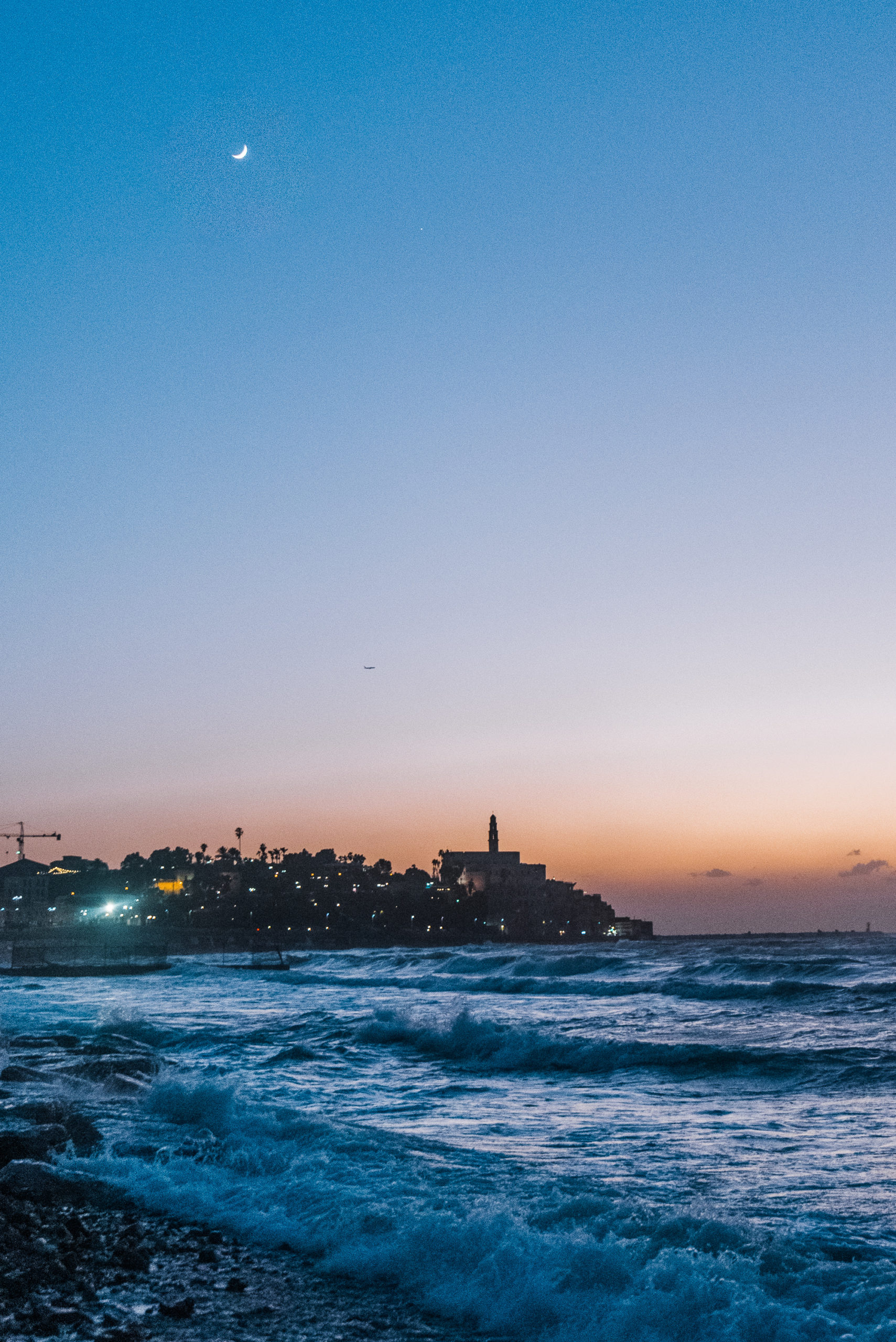
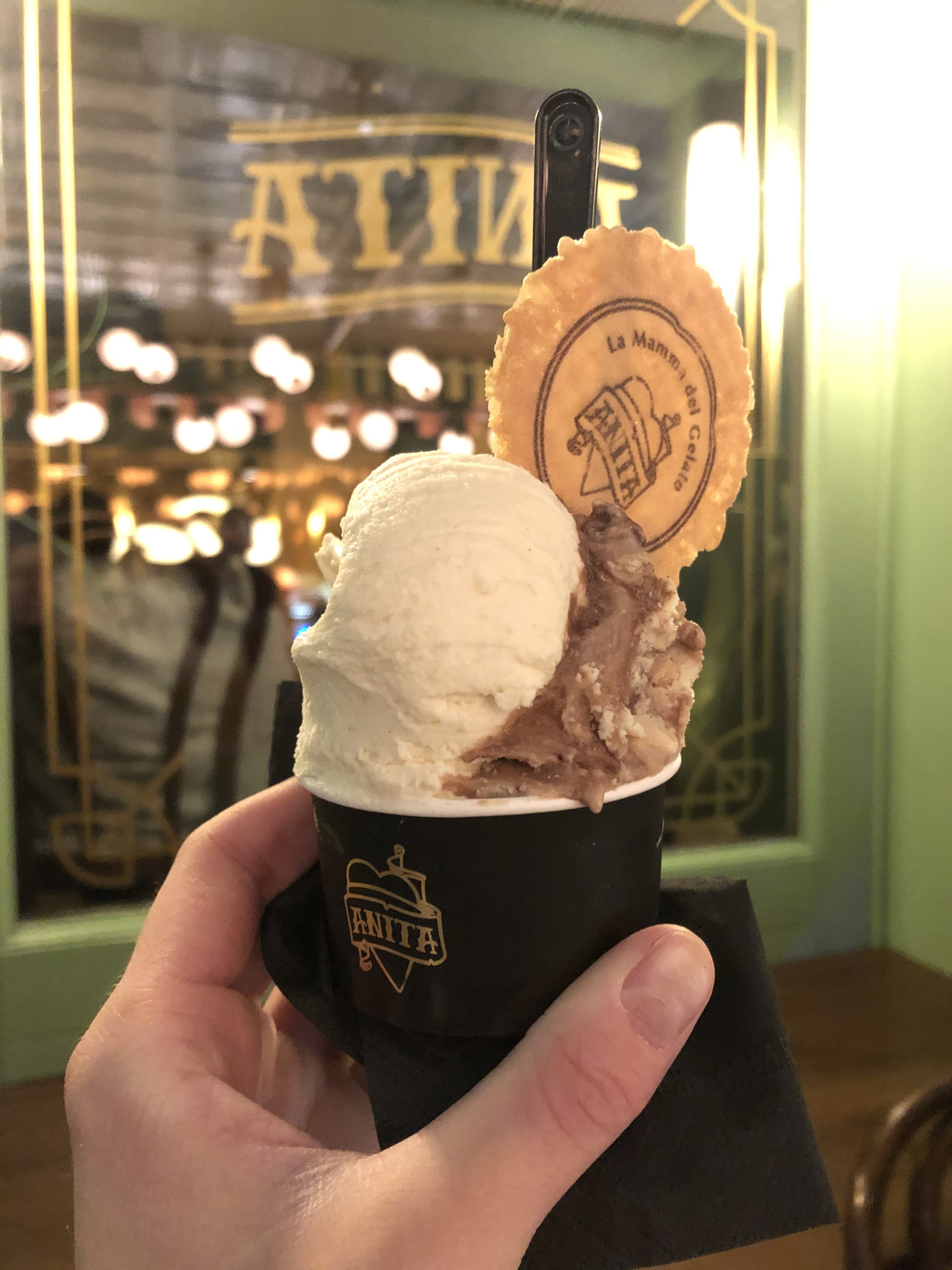
HIGHLY recommend Anita ice cream shop in Tel Aviv
And that’s our trip to Israel! Next, we took a 3-day tour to Jordan. But that’s for a different blog post.
More photos from Israel:
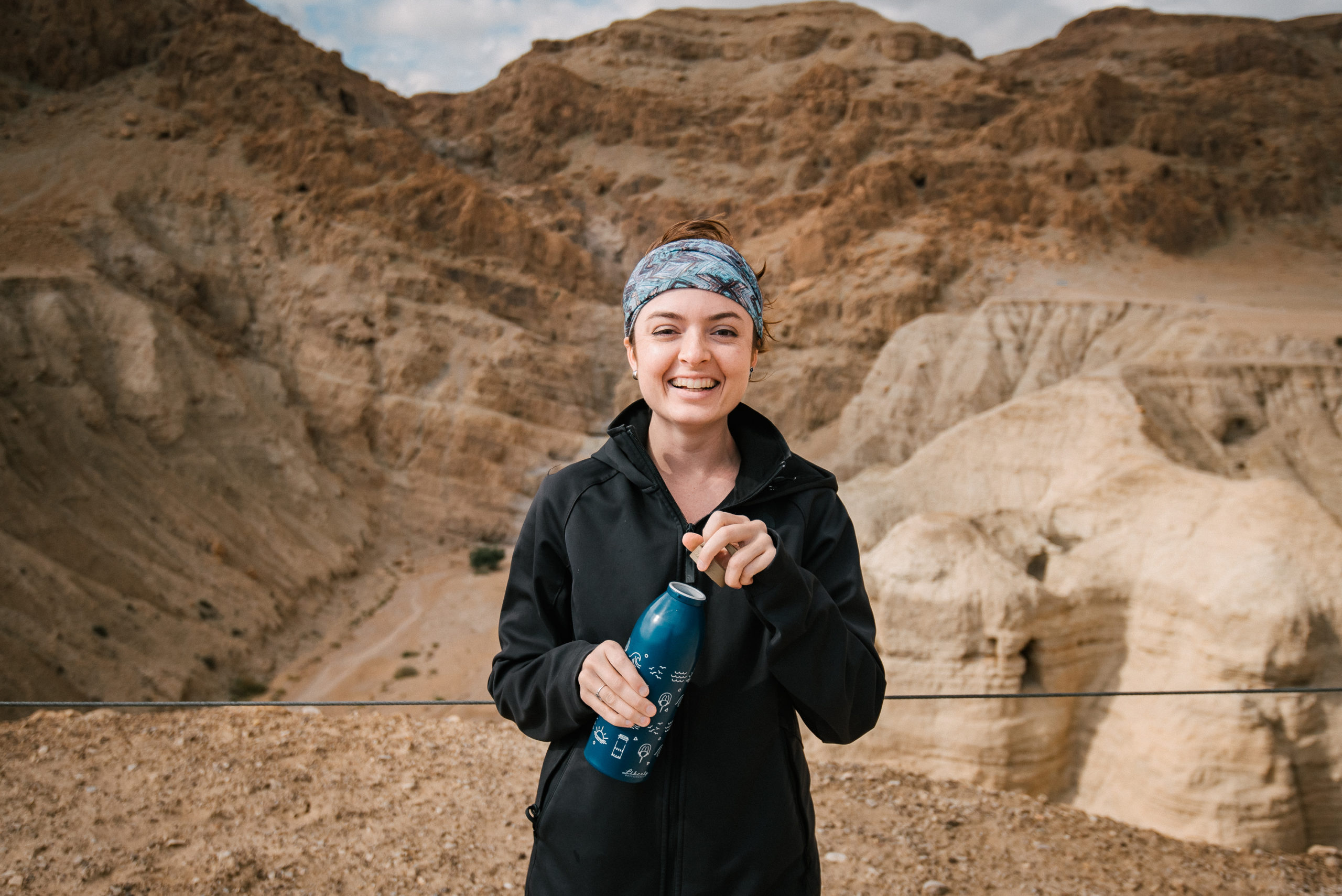
Me at Qumran National Park
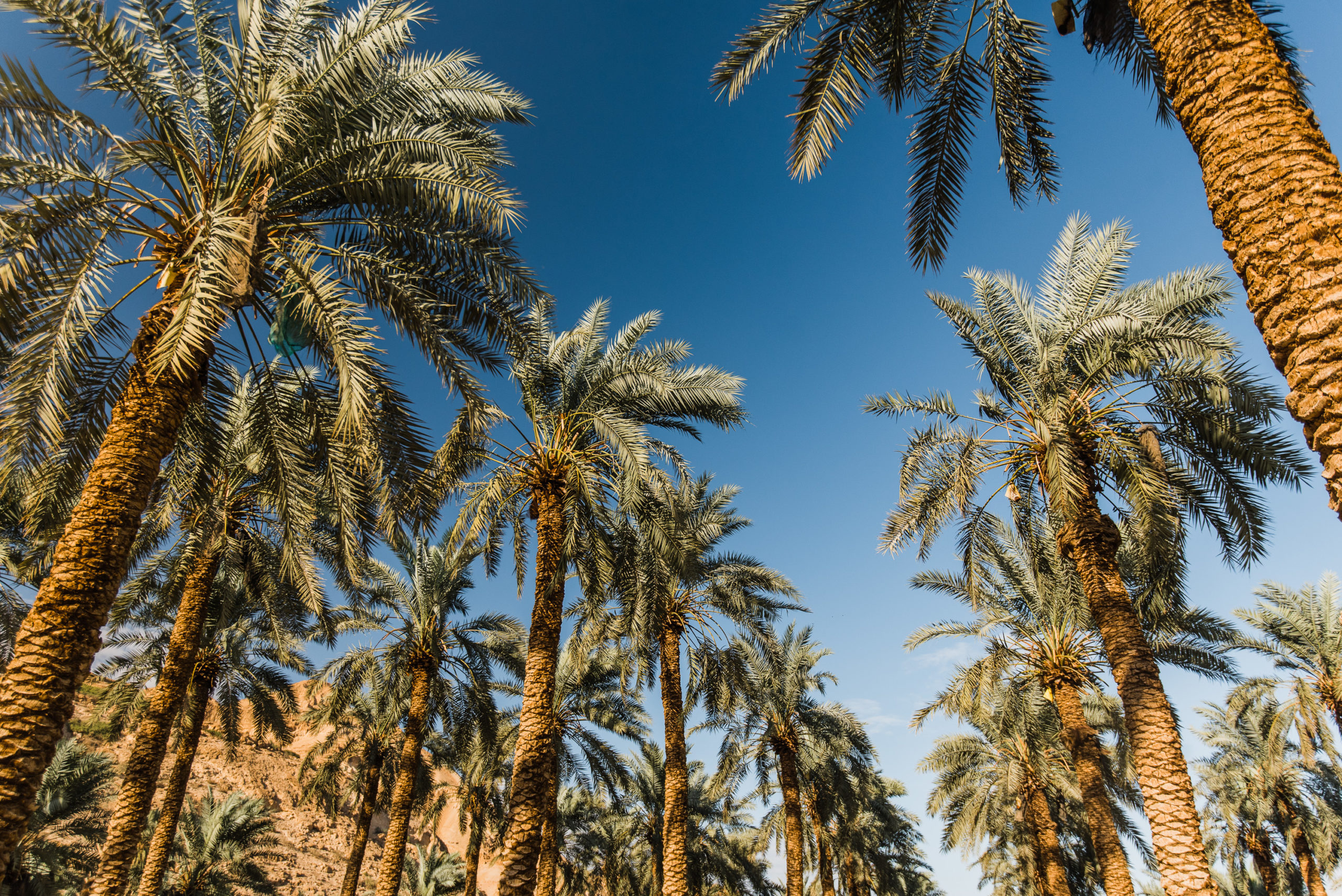
Palm trees at En Gedi National Park
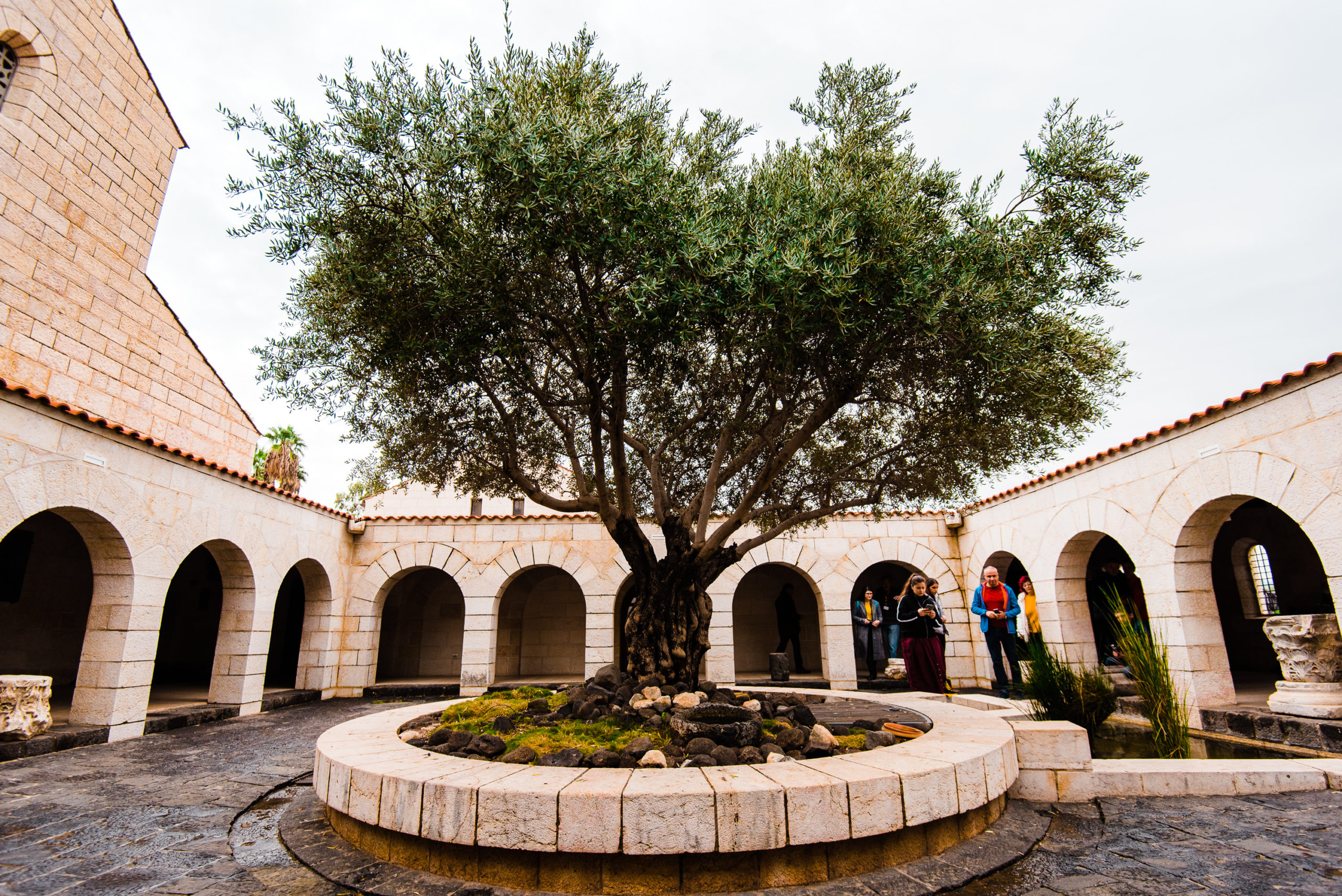
Inside the Church of Multiplication
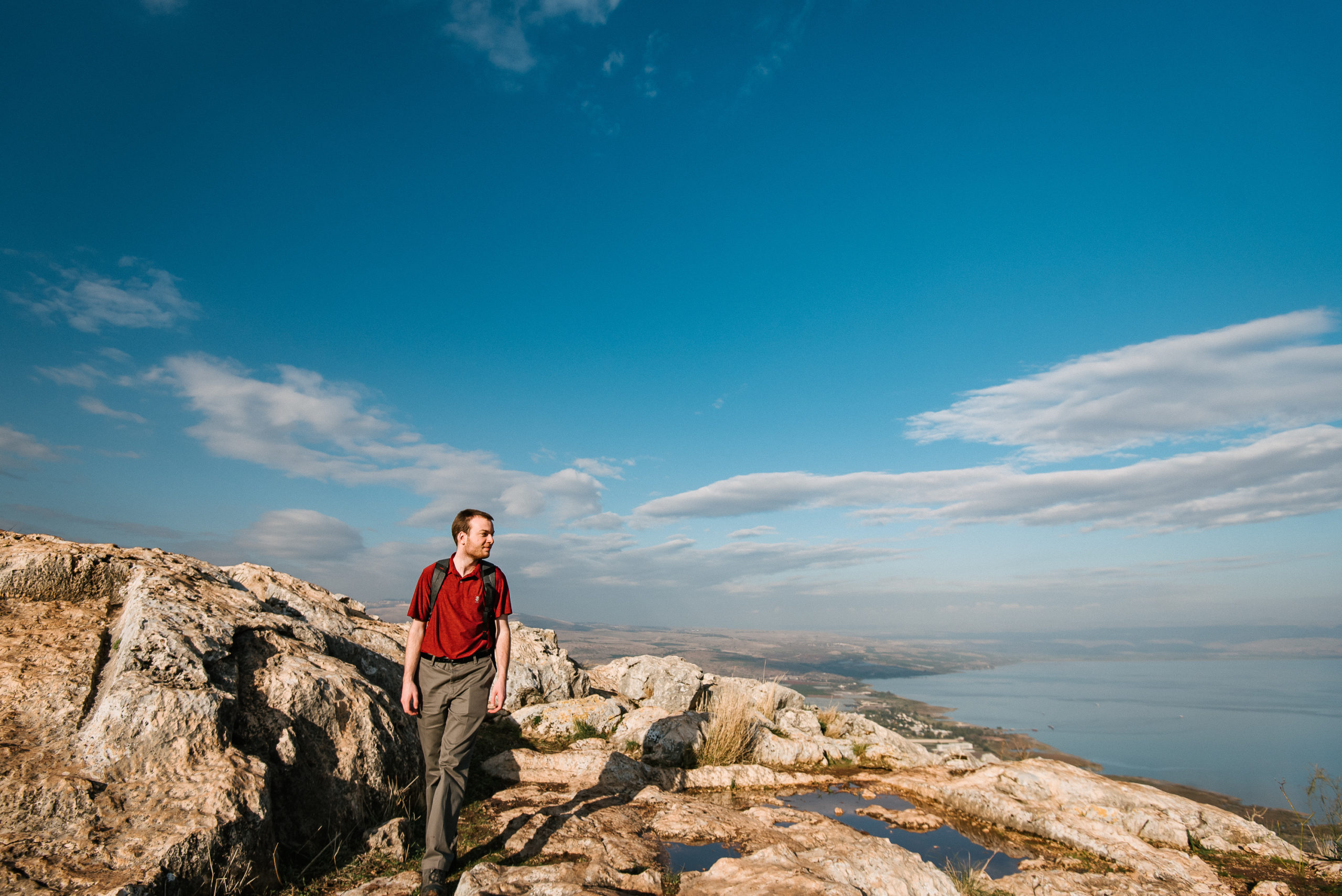
Hiking at Mount Arbel National Park
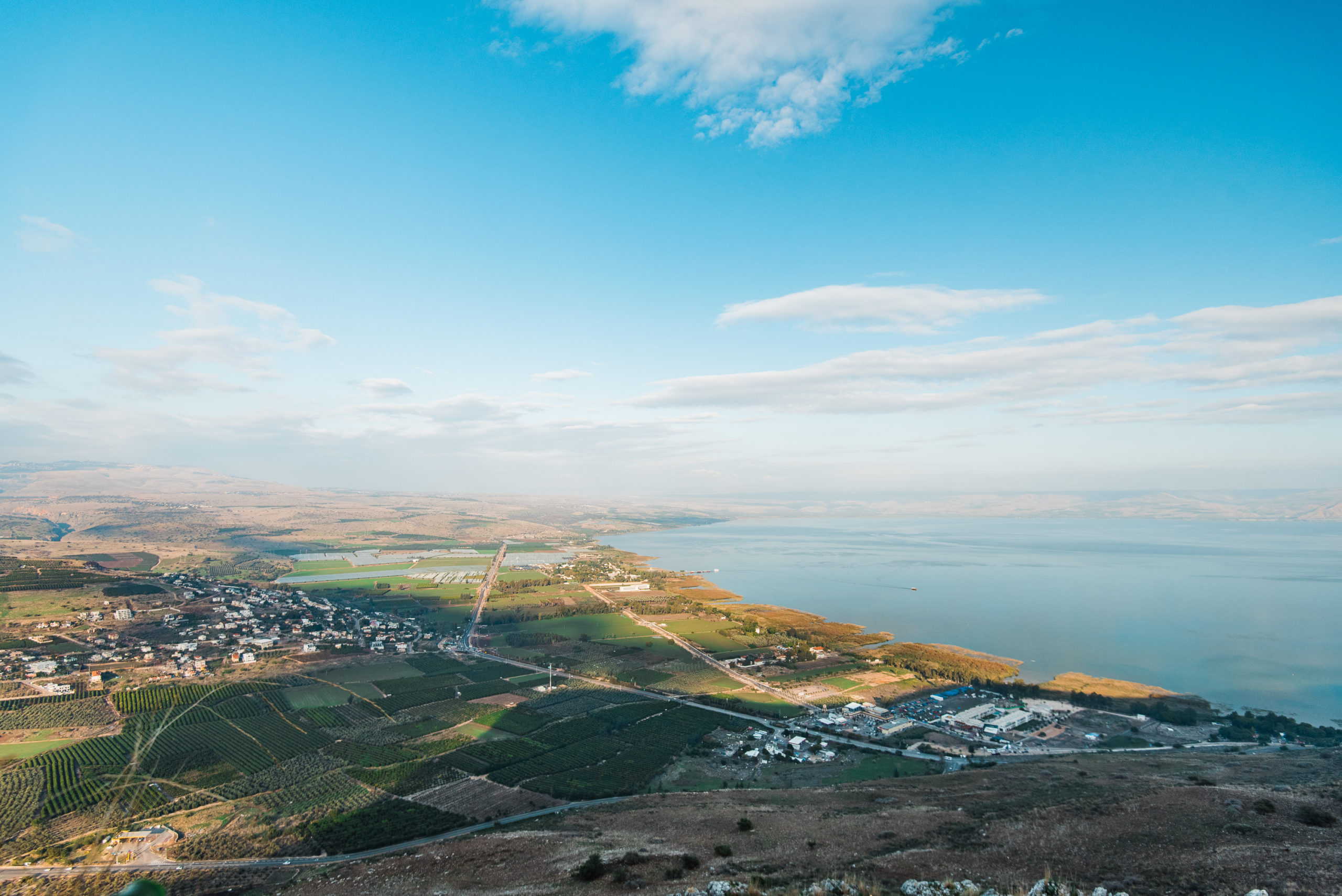
Hiking at Mount Arbel National Park
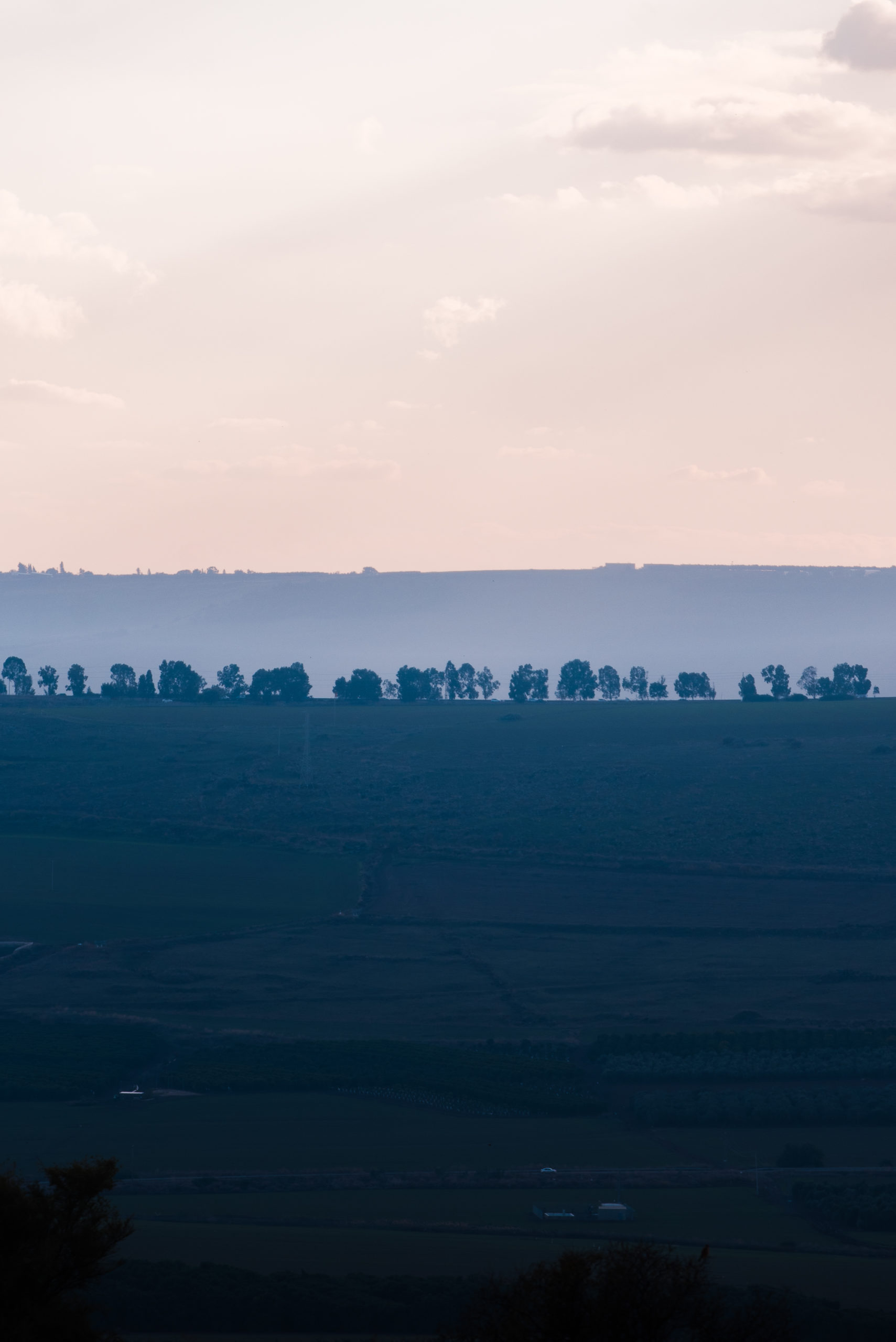
Hiking at Mount Arbel National Park
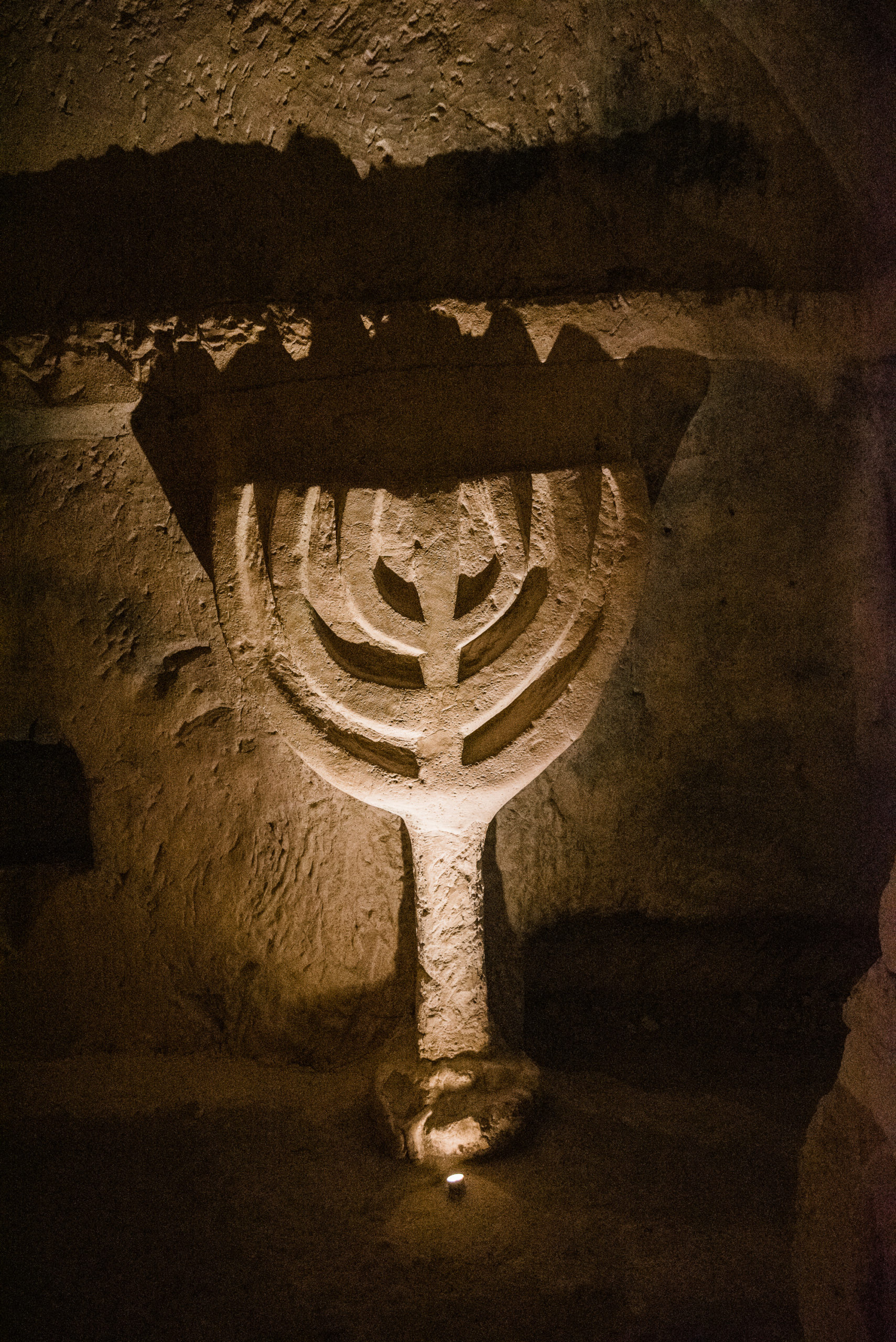
Menora inside the Cave of CCoffina at Bet She’arim National Park
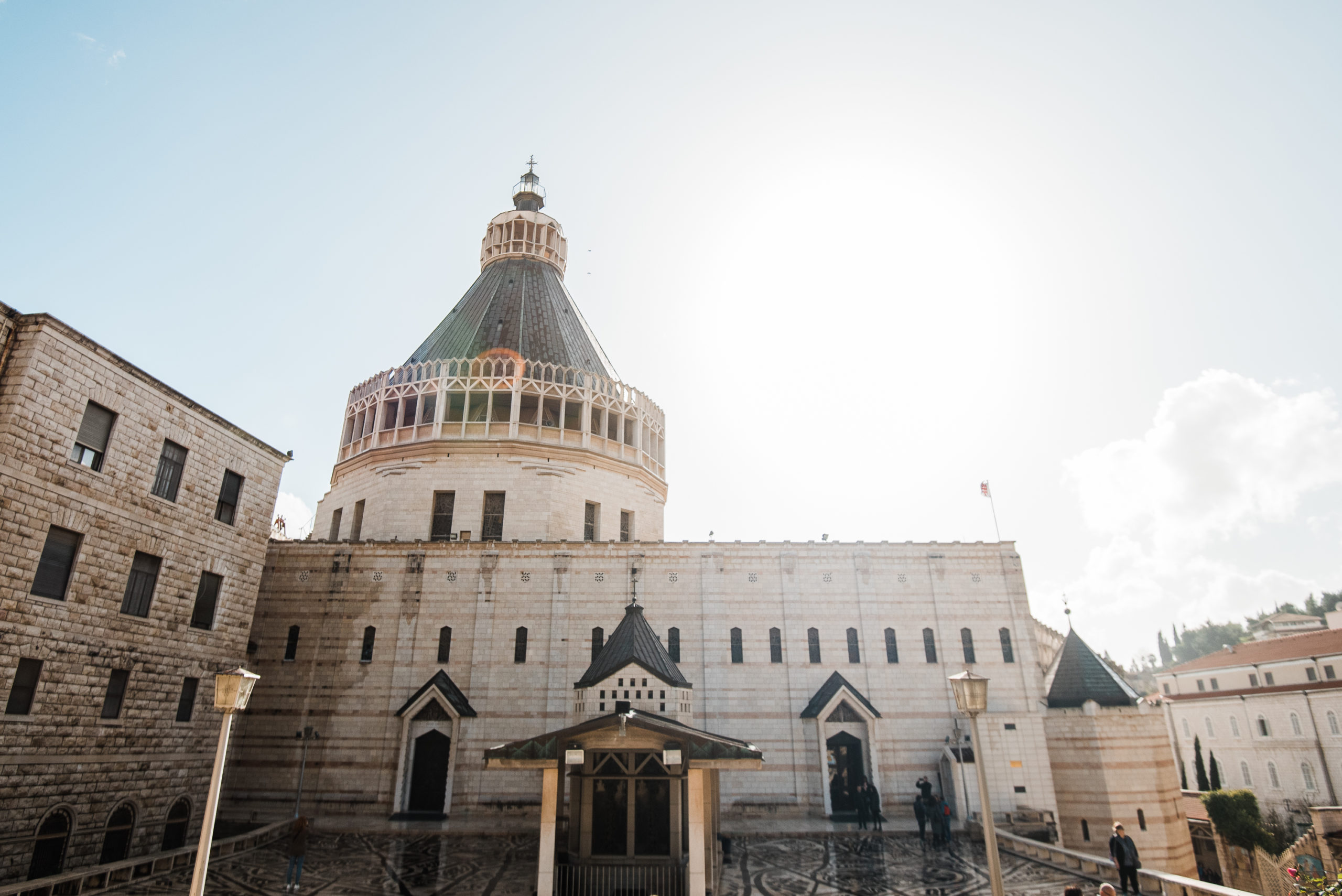
Basilica of the Annunciation
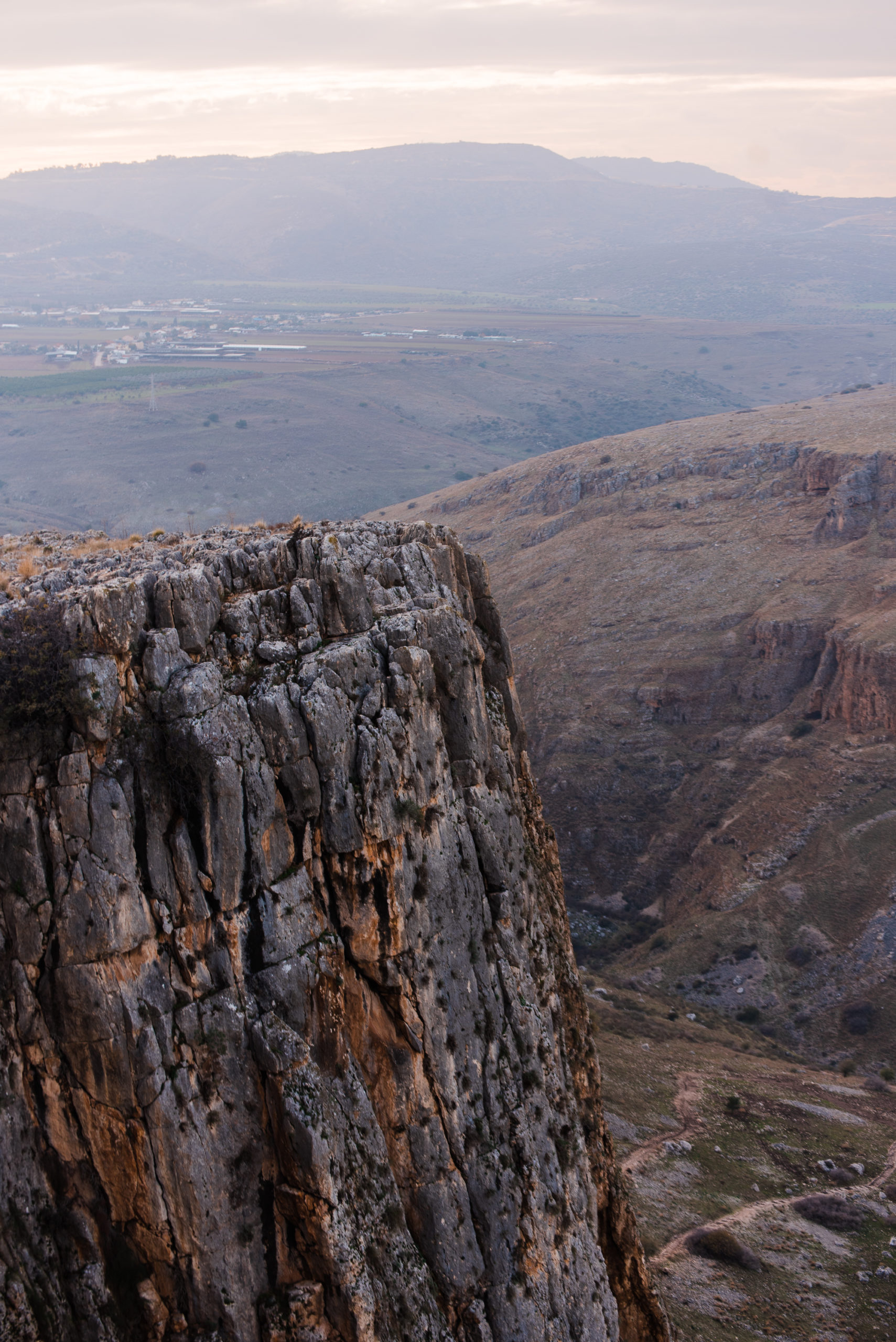
Hiking at Mount Arbel National Park
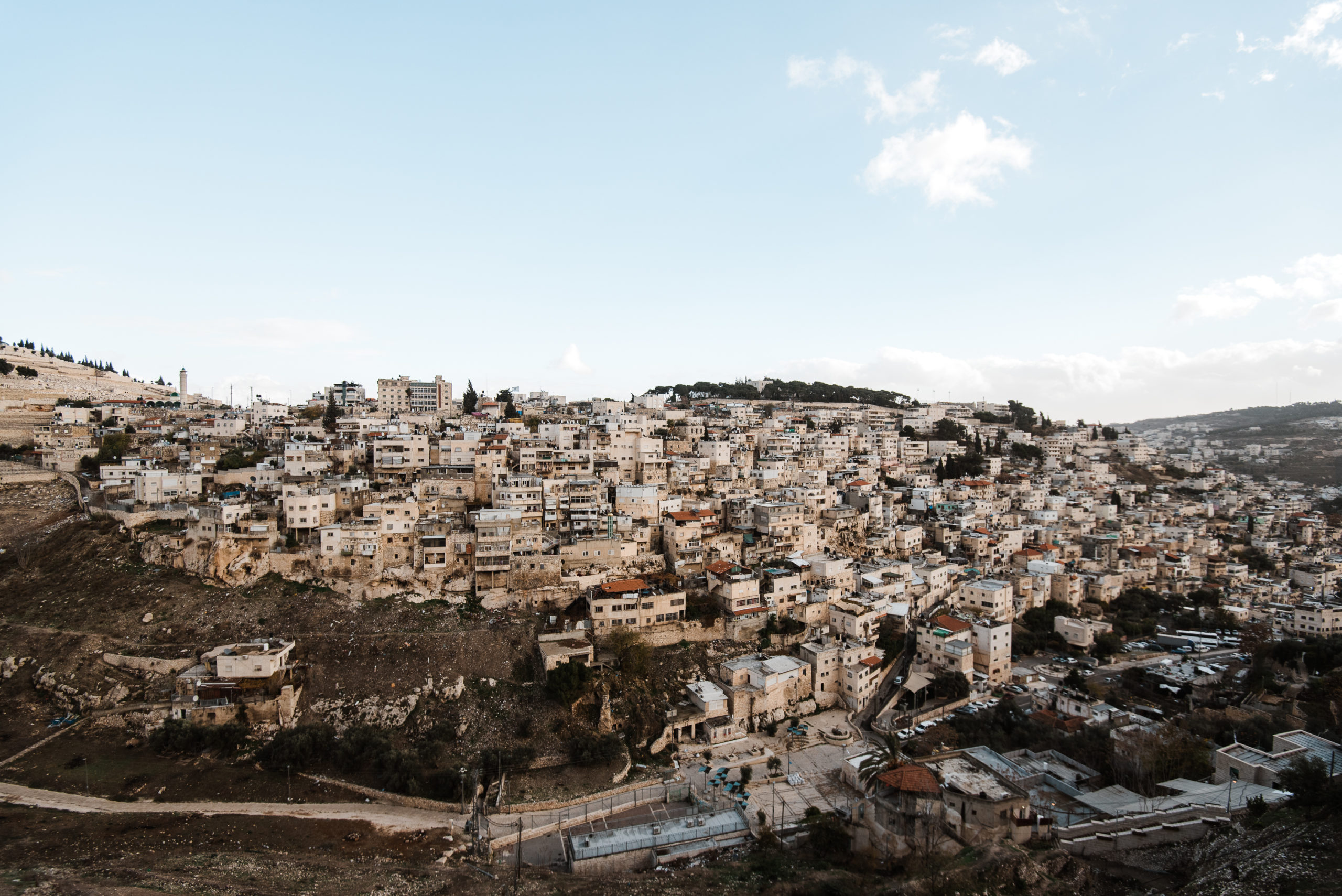
View of Jerusalem from the City of David National Park
Featured Posts
Leave a Reply
Copyright Abby Venture
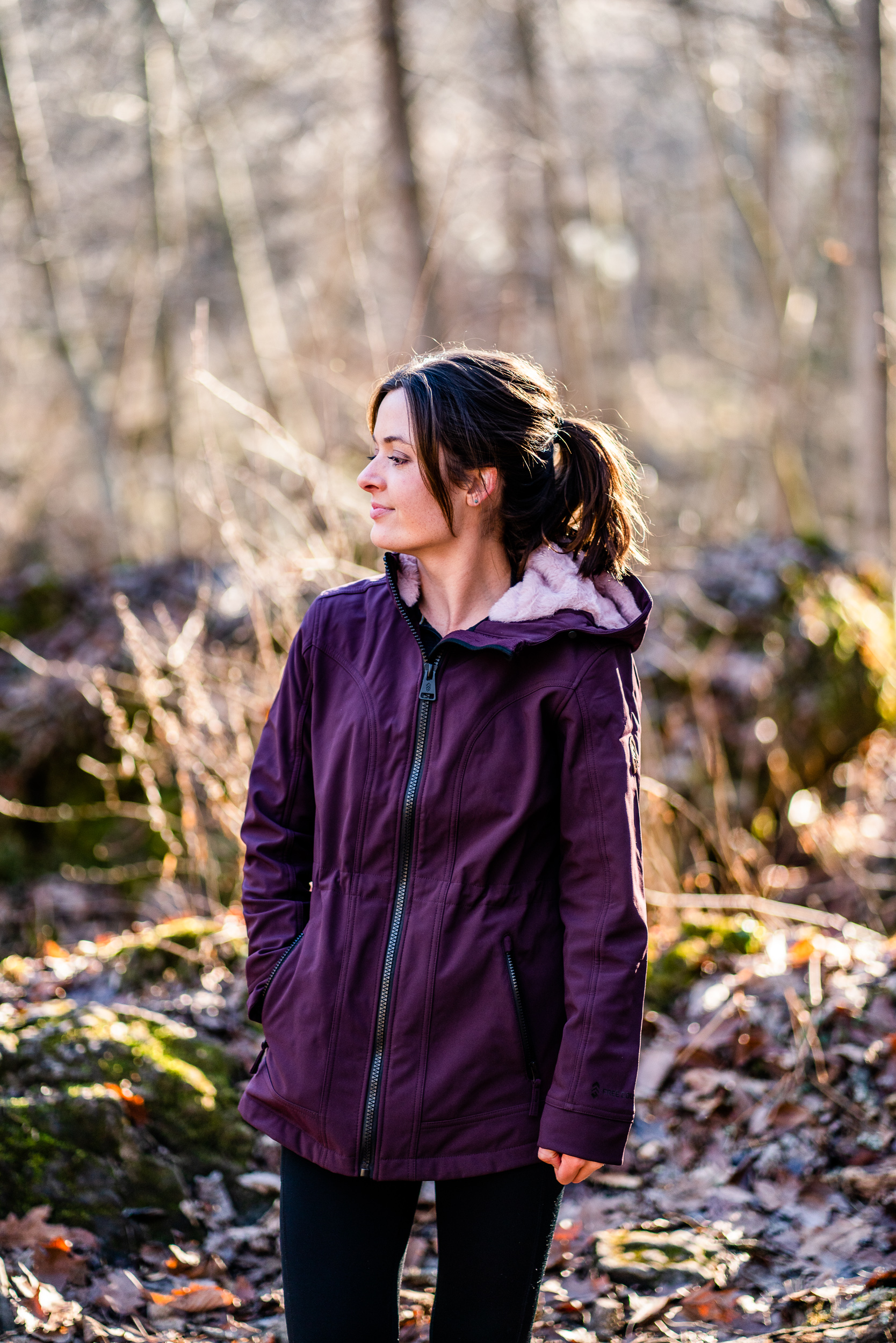
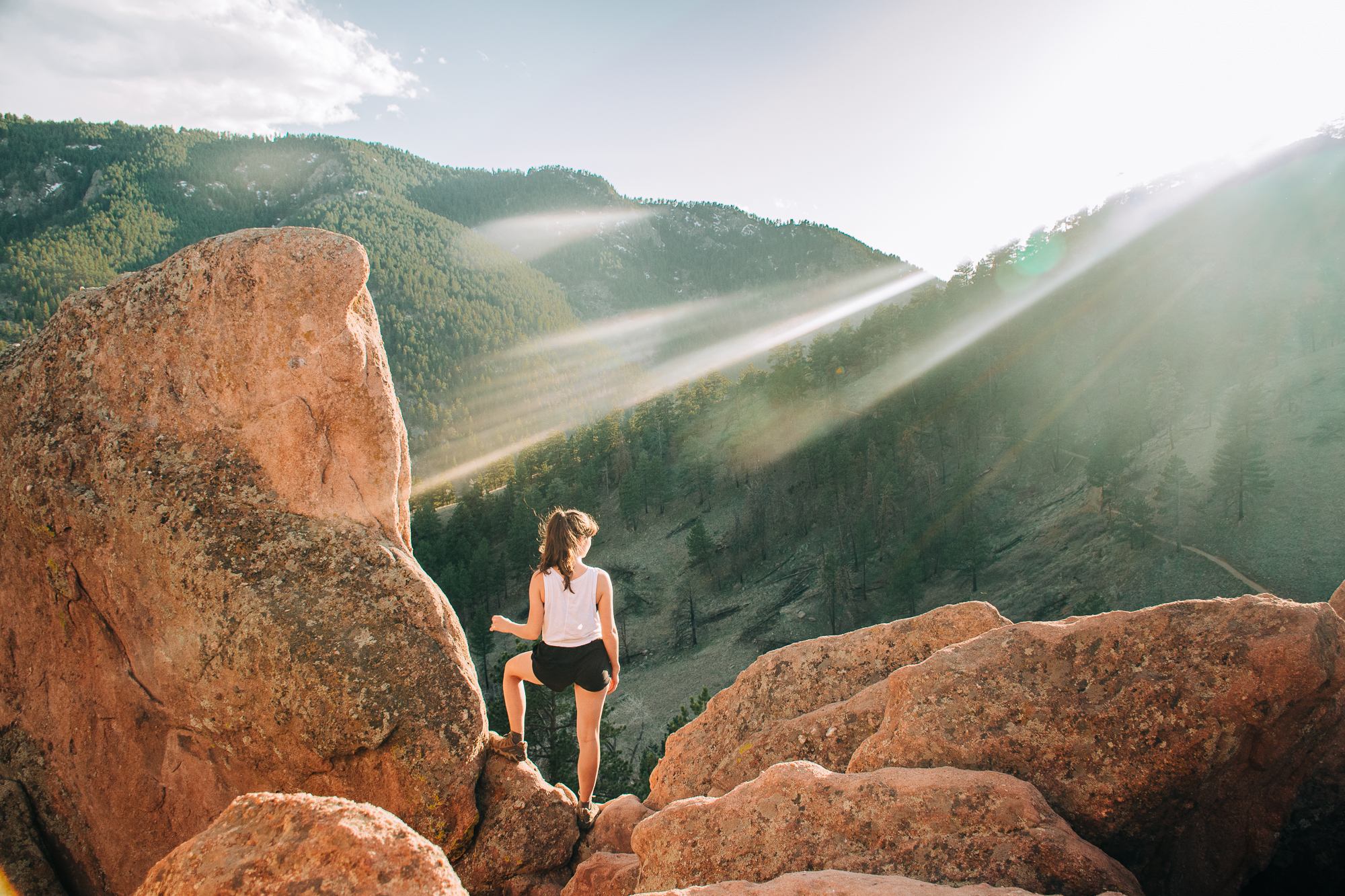
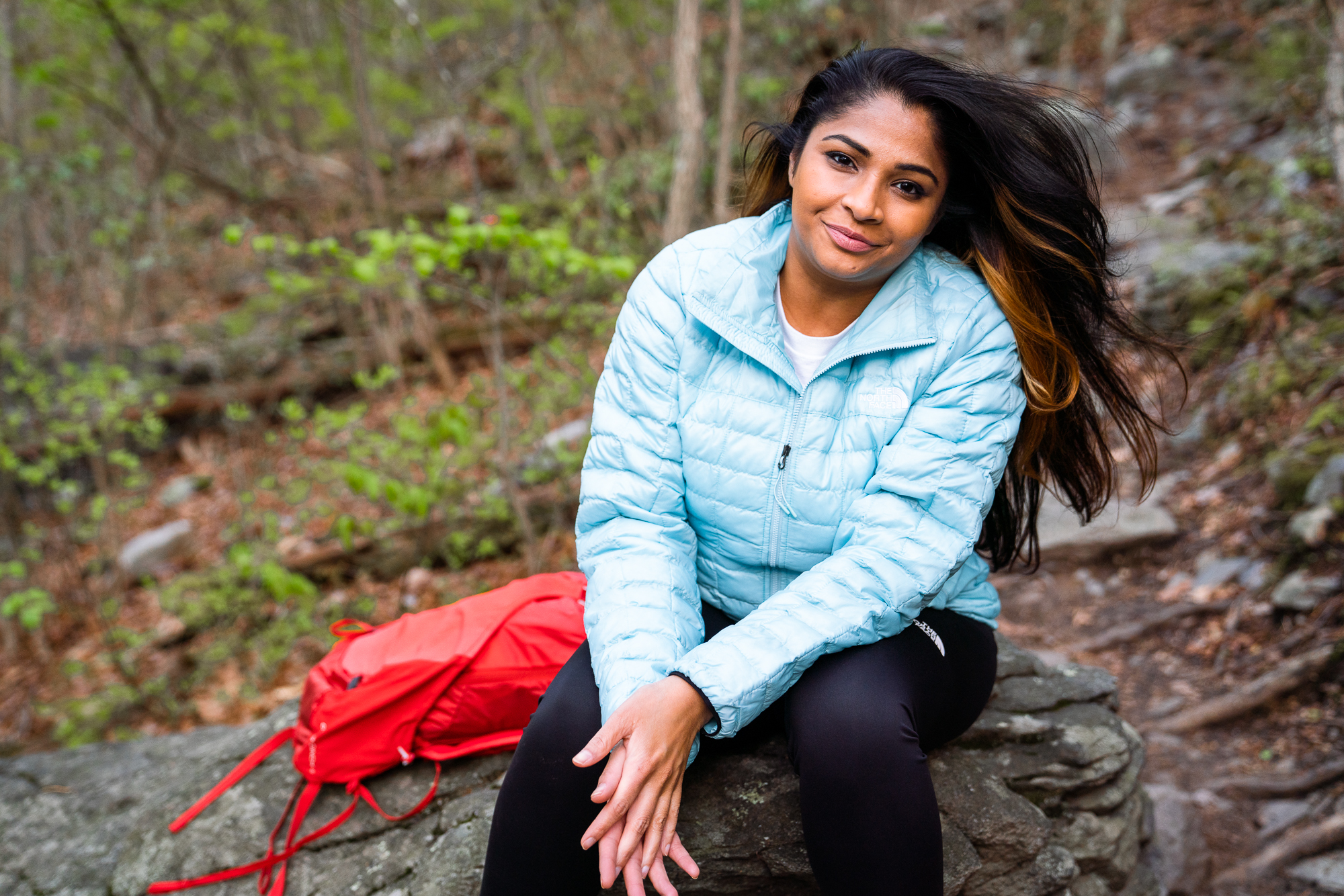
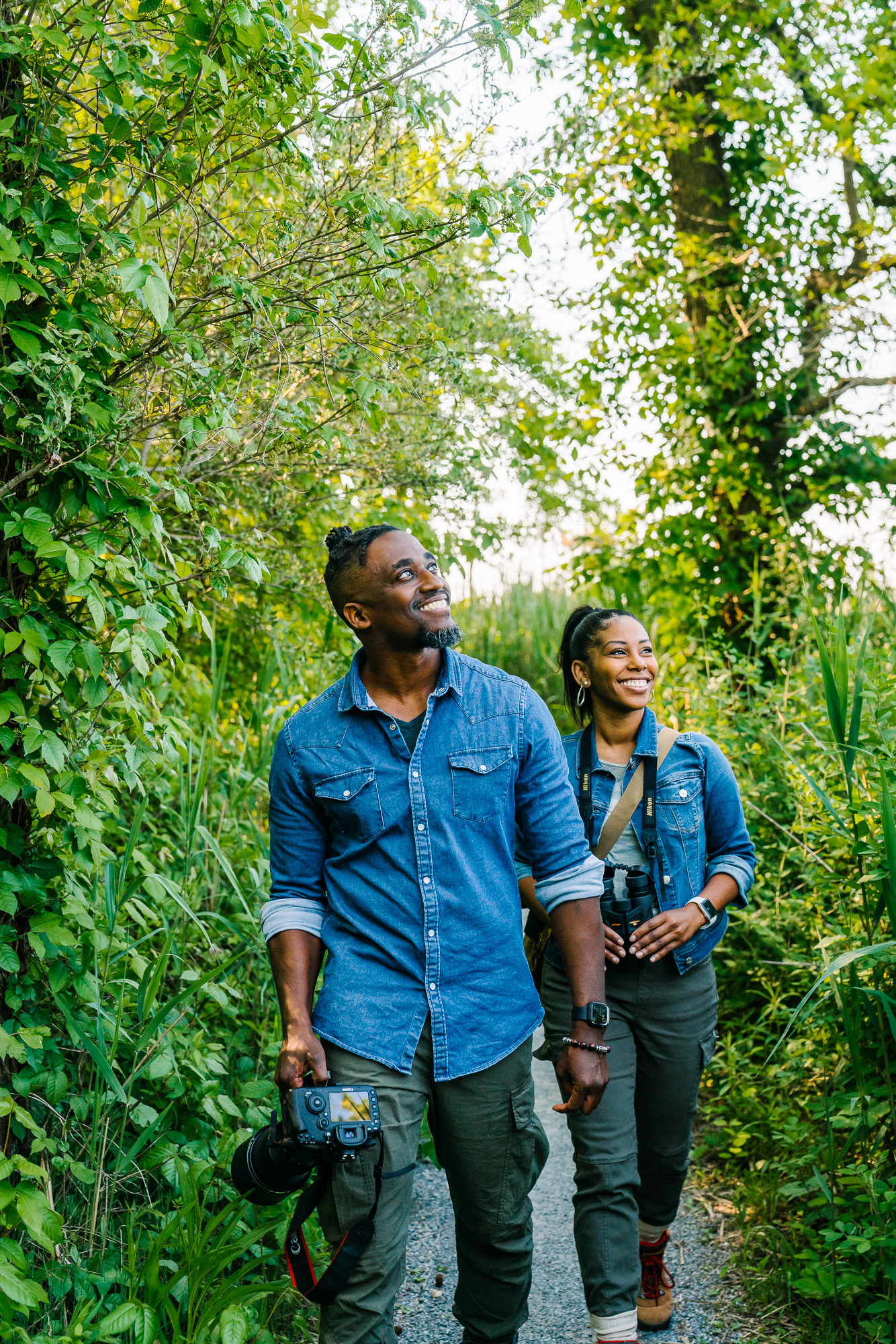
[…] but we made the most of our 2 days! This mini trip was part of a larger 2-week trip to Rome, Israel, and Jordan. Here’s what we did in […]
[…] guided tour to Jordan for 3 days. This blog just covers the Jordan part of that trip. Check out my travel guide for 8 days in Israel, or how my post about how to spend 2 days in […]
A superb description of a short but rich trip to Israel.
As an Israeli I couldn’t have said it better.
I missed you visit to Tel Aviv- Jaffa
Please come back and enjoy more of our beautiful country
Rena